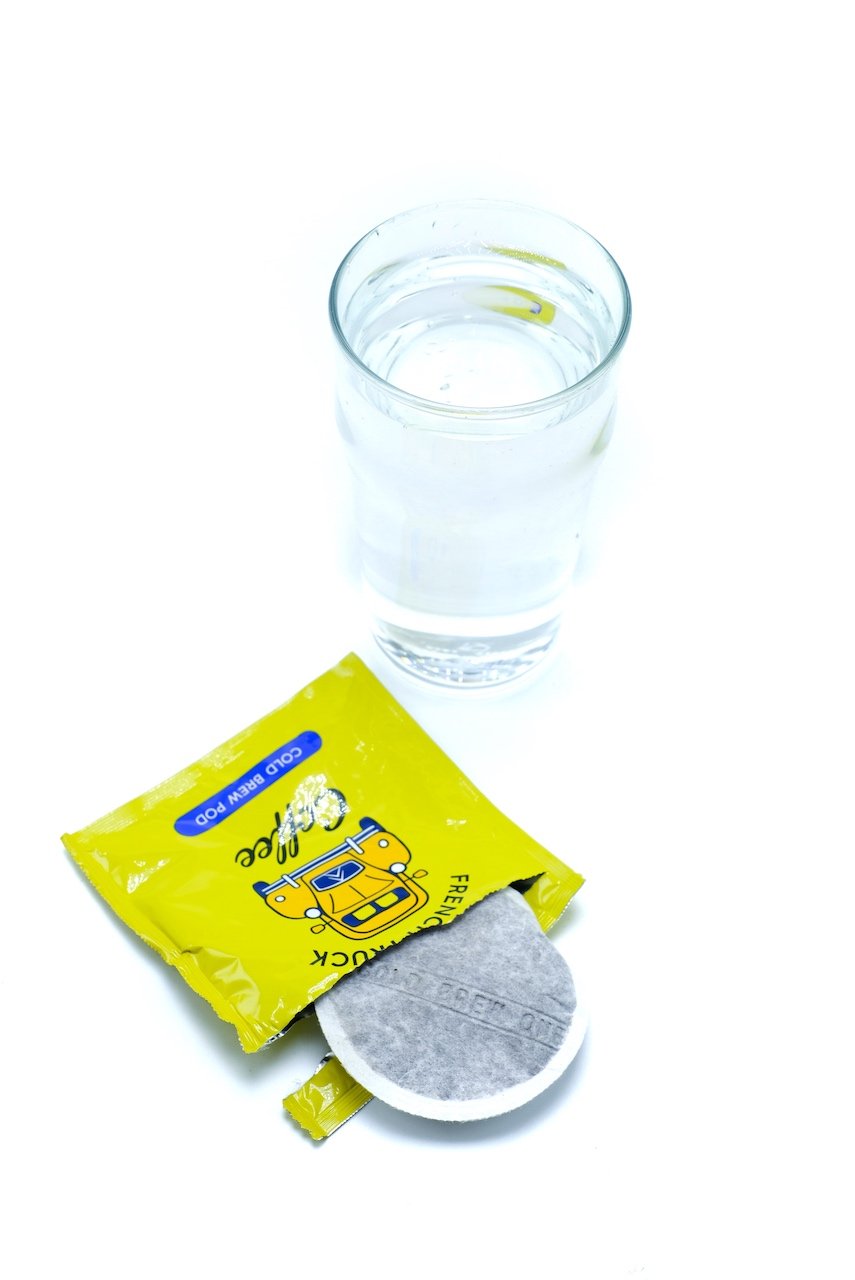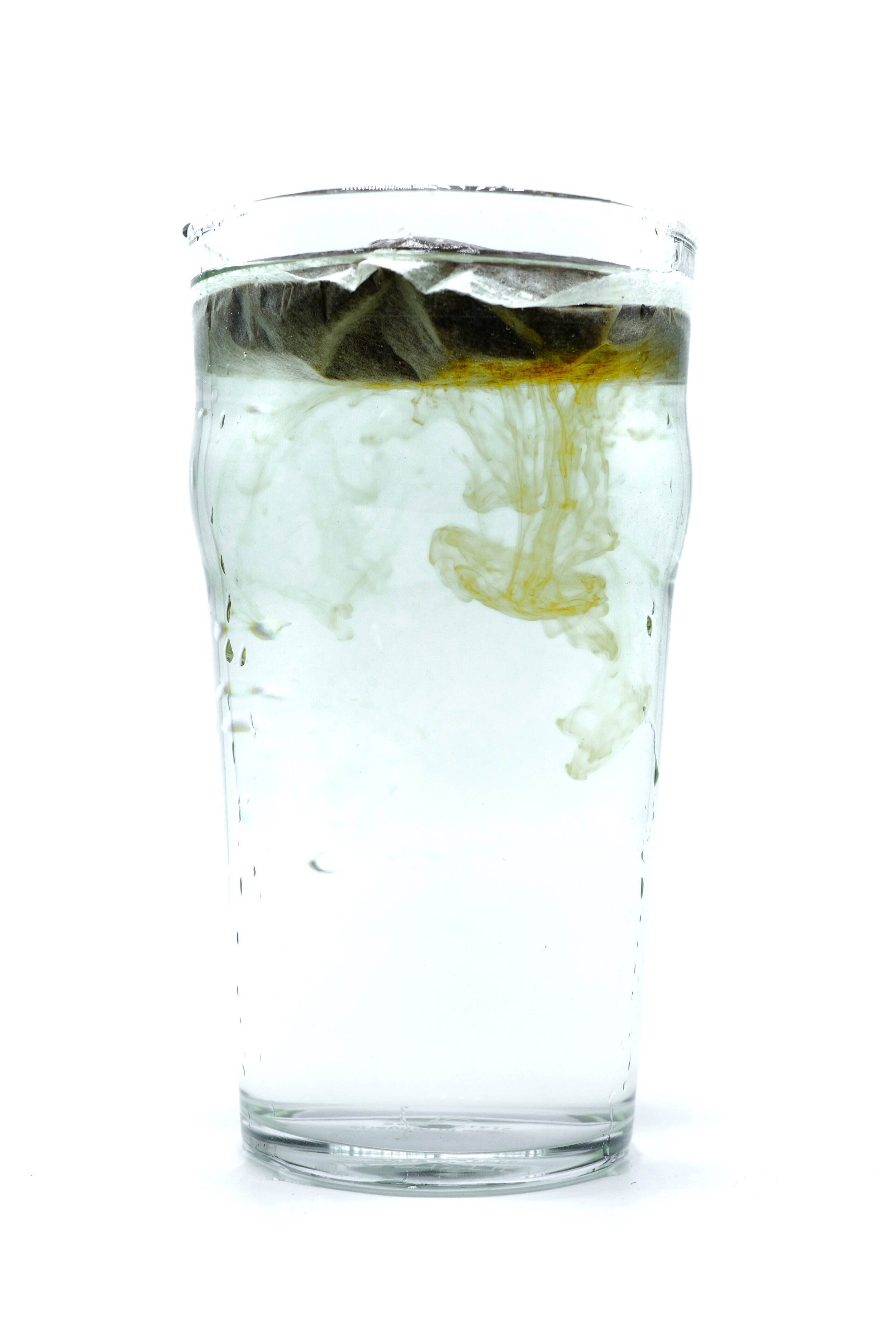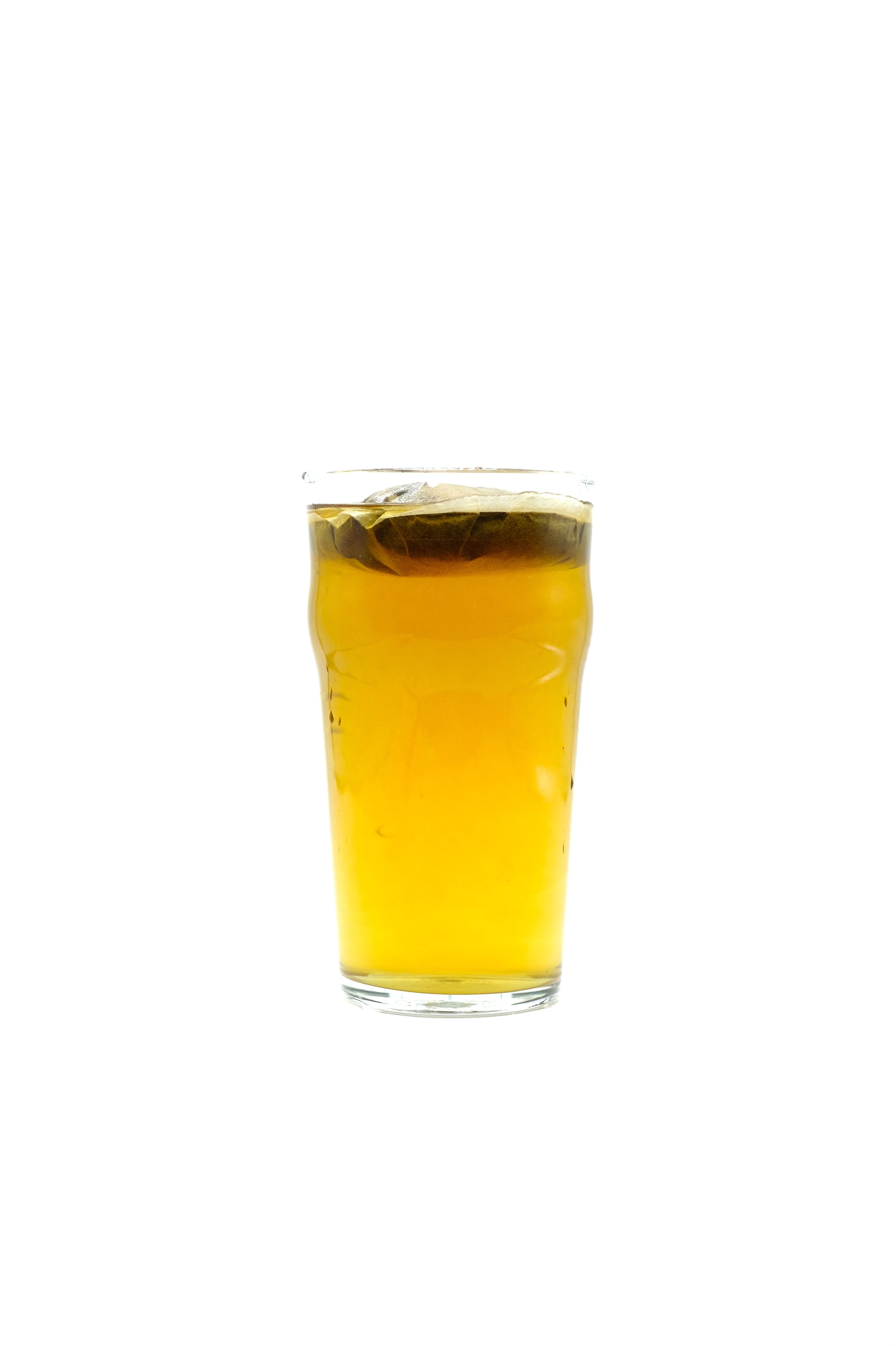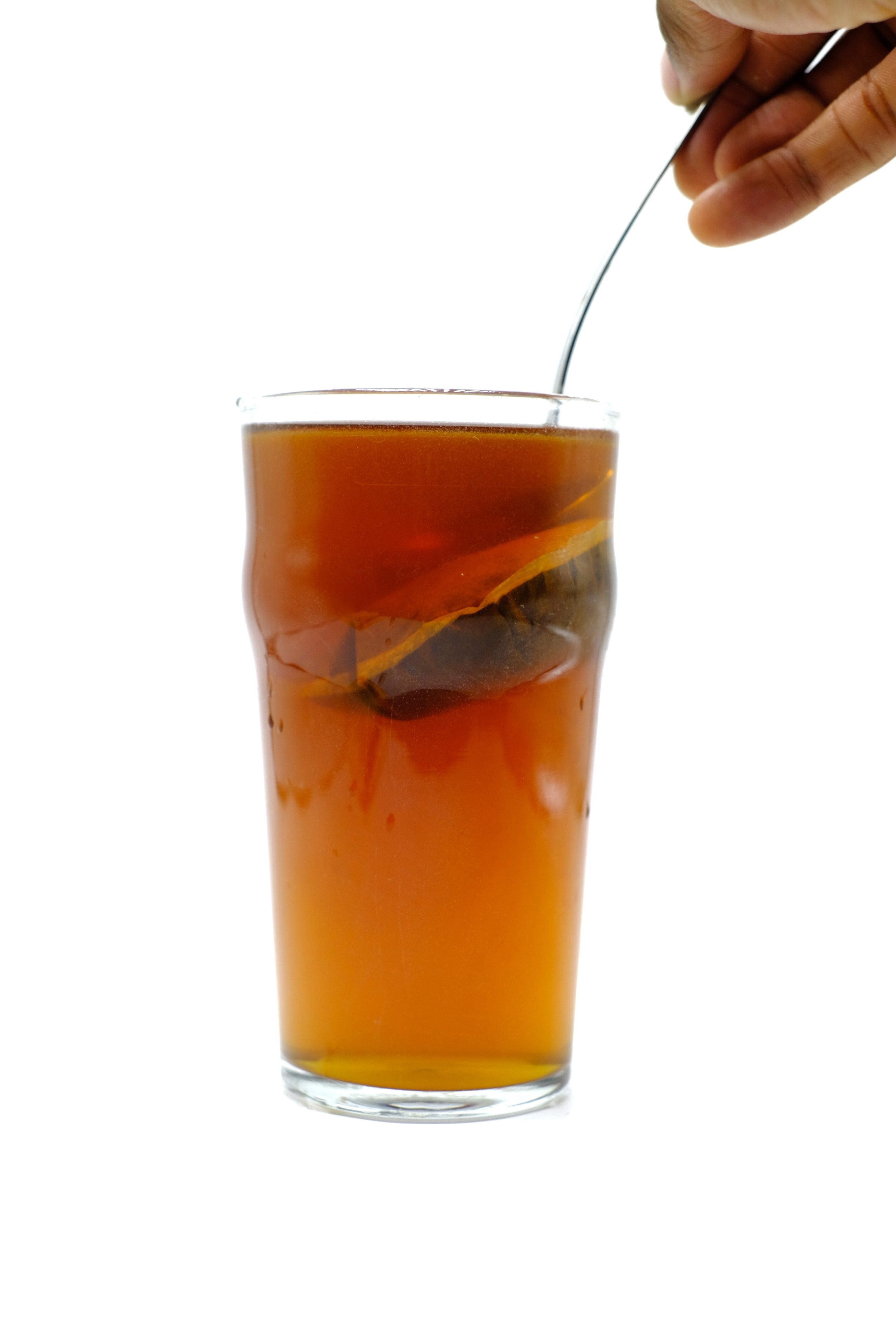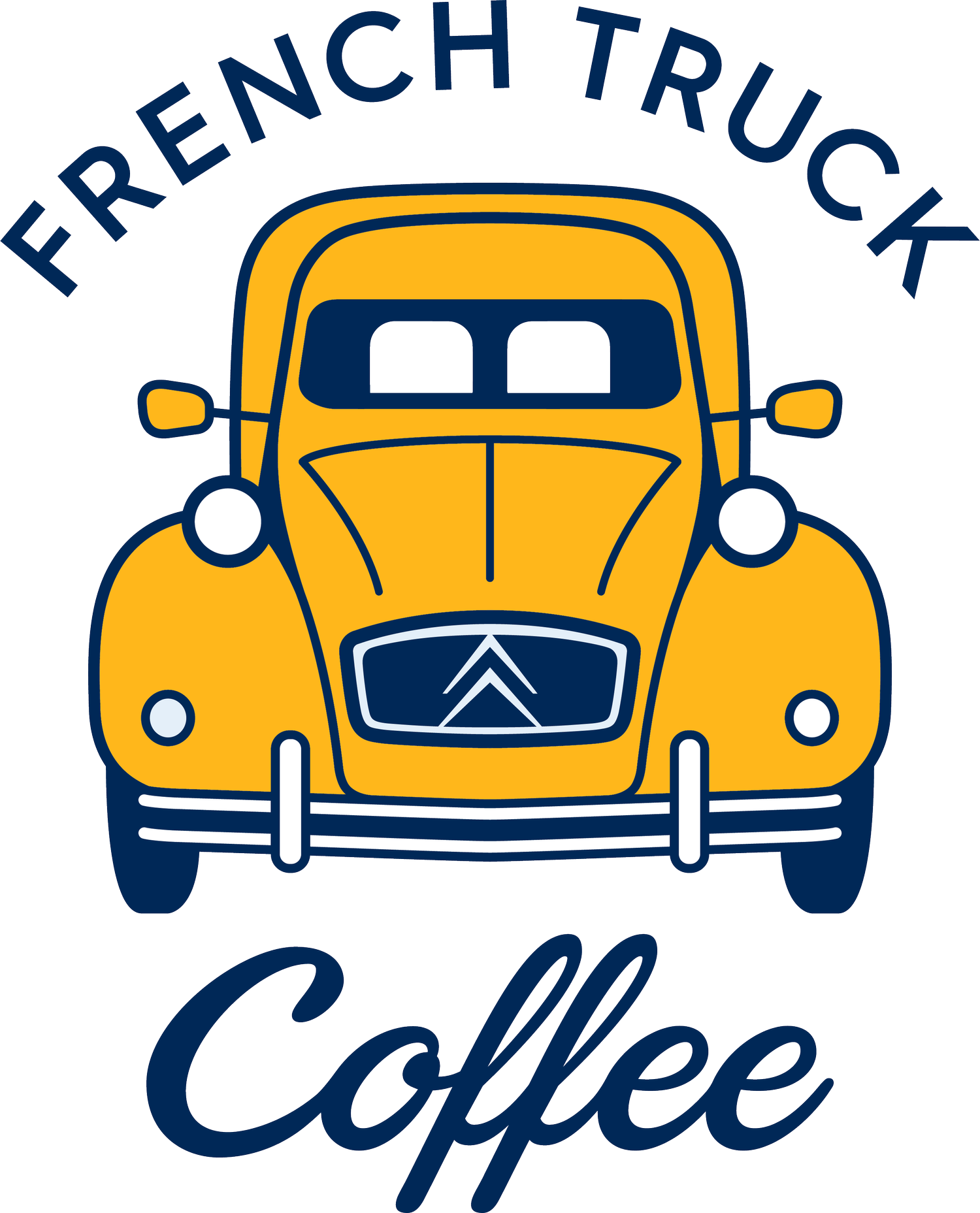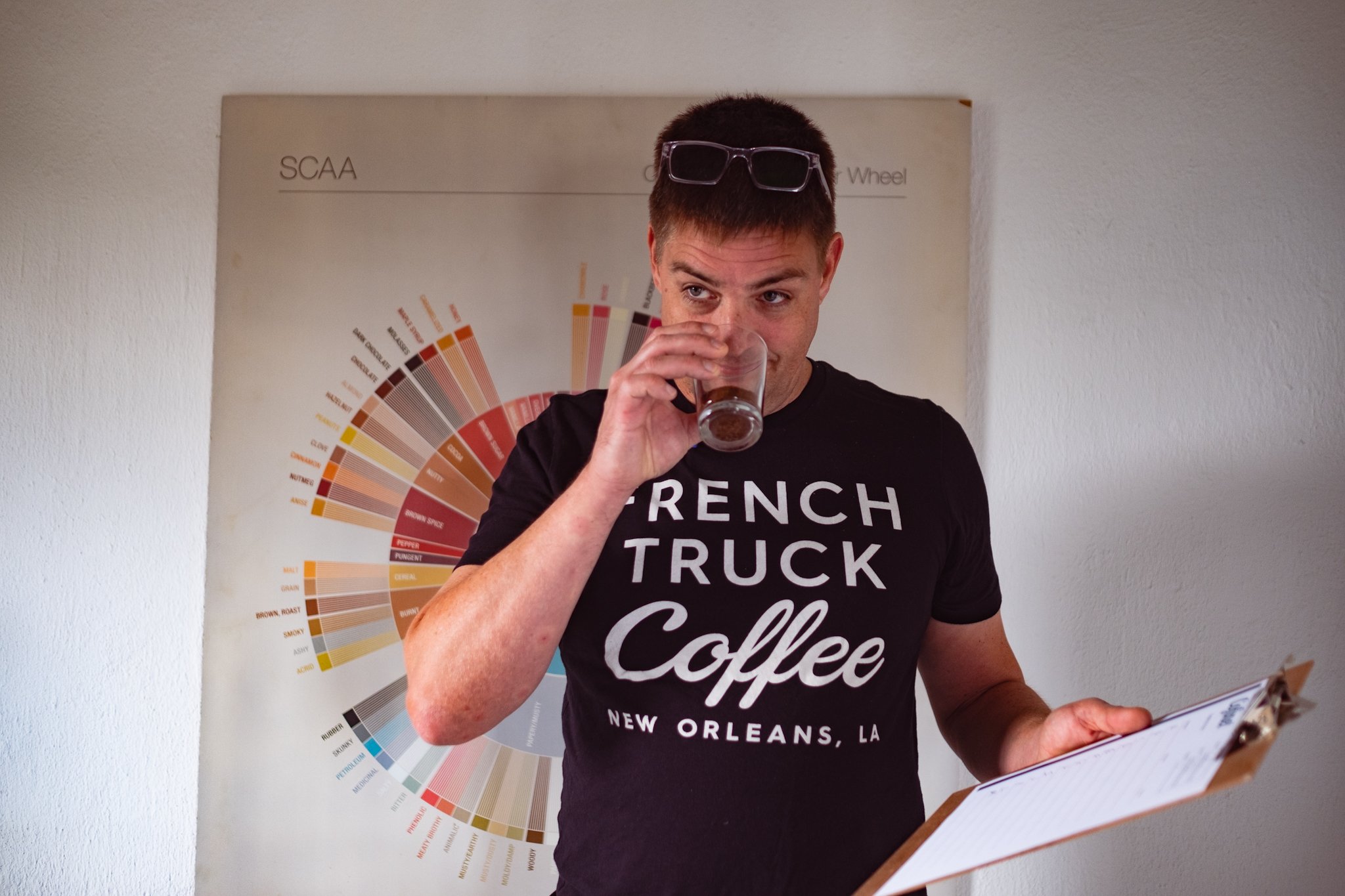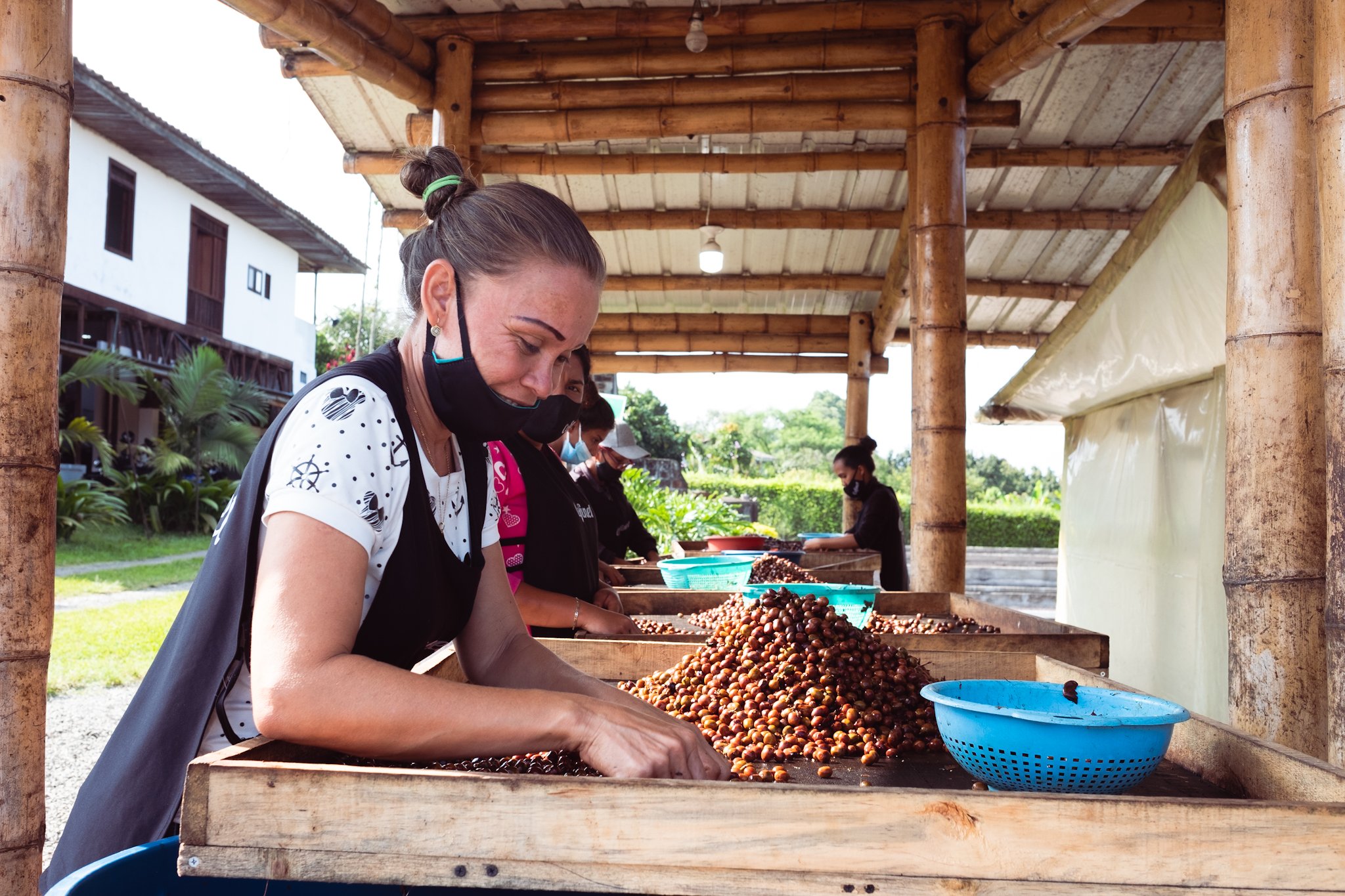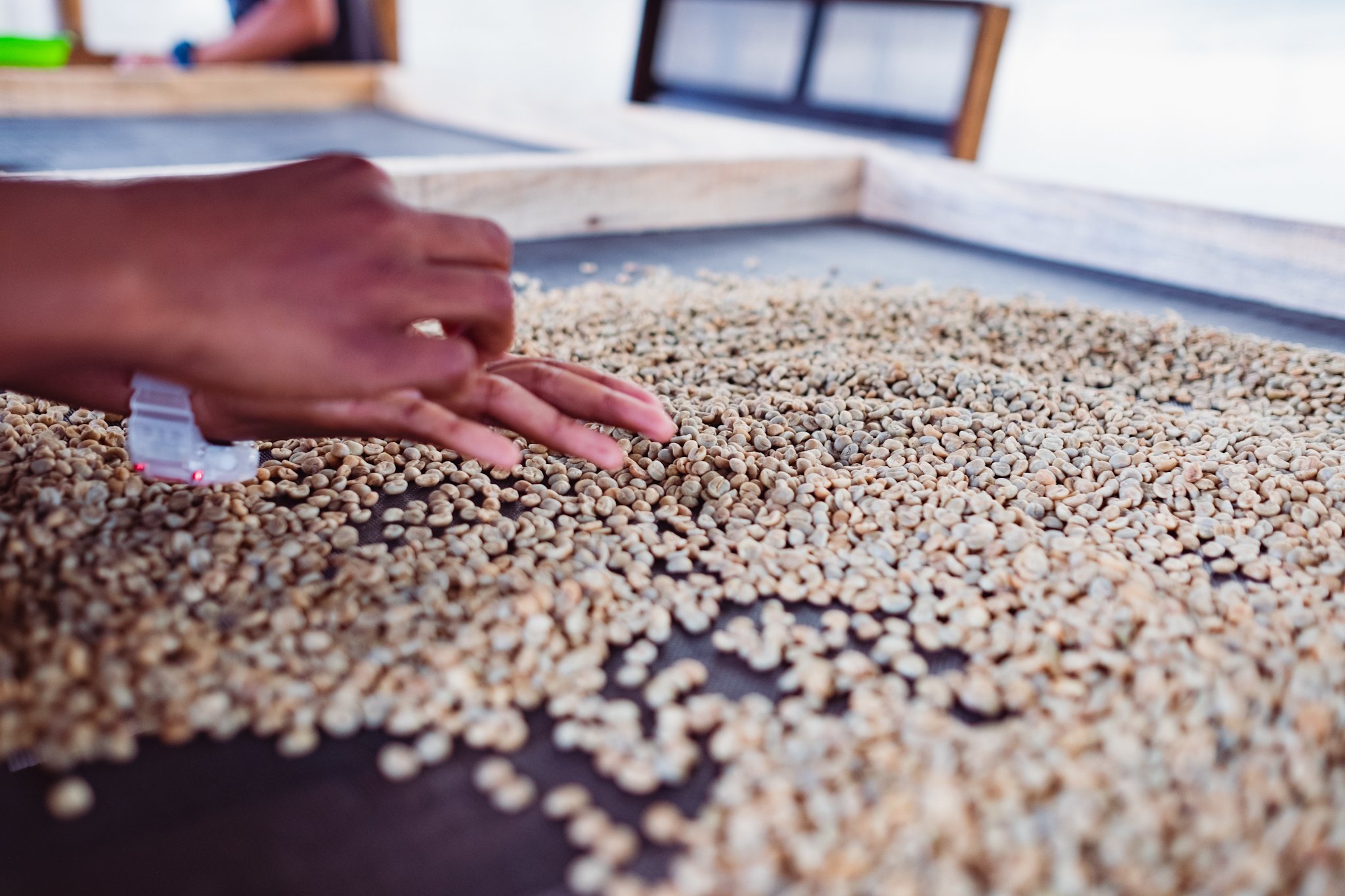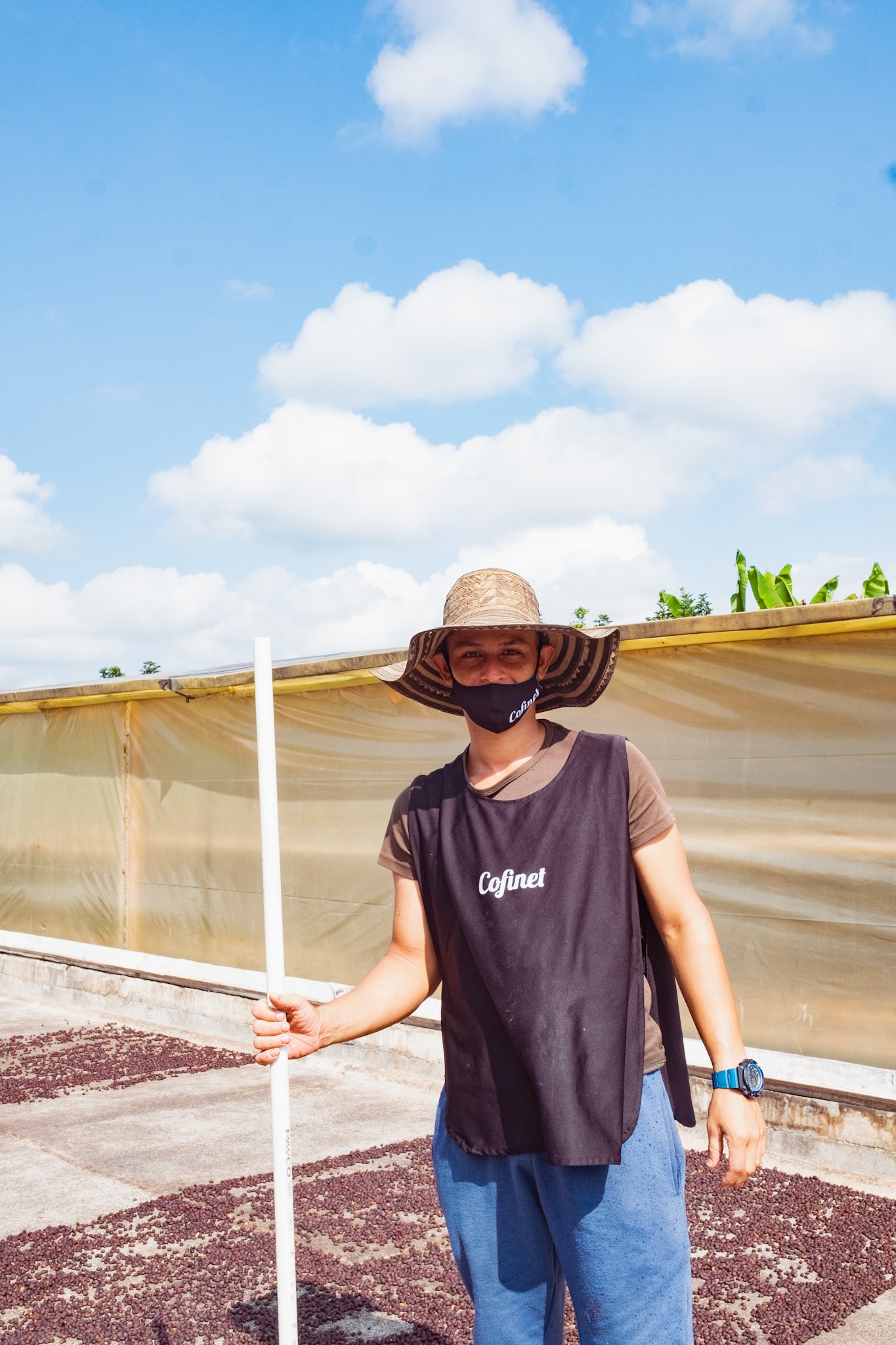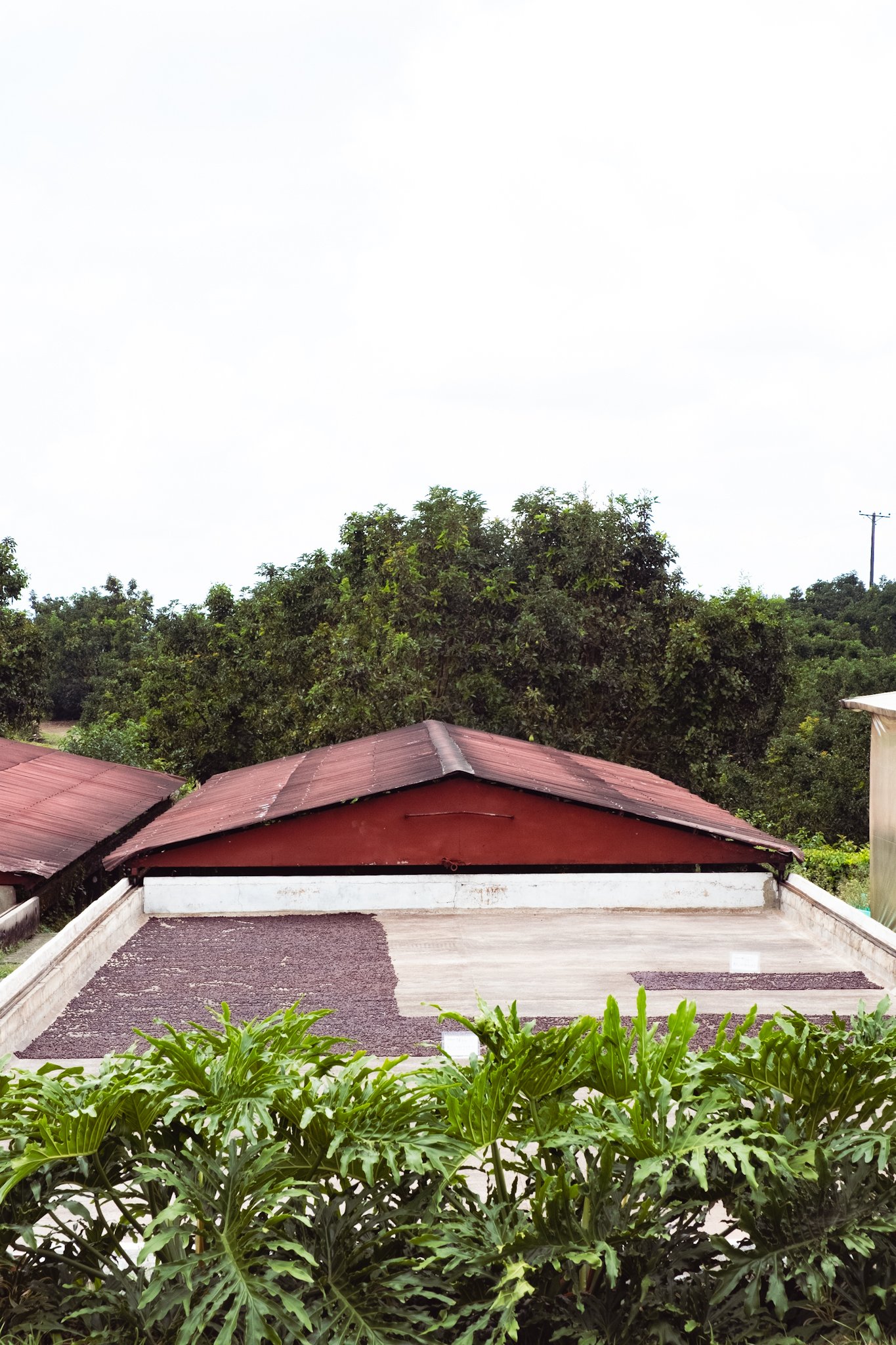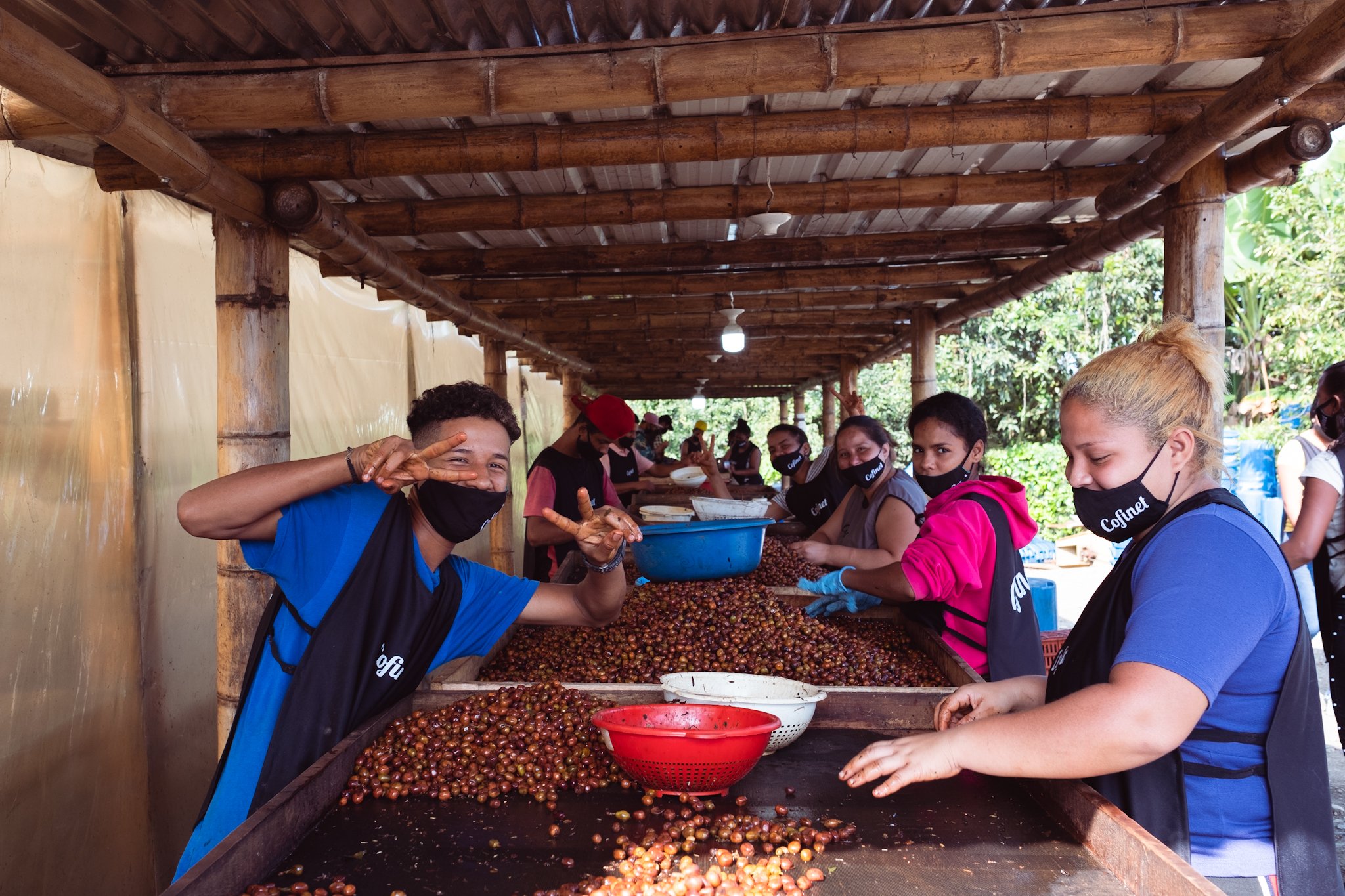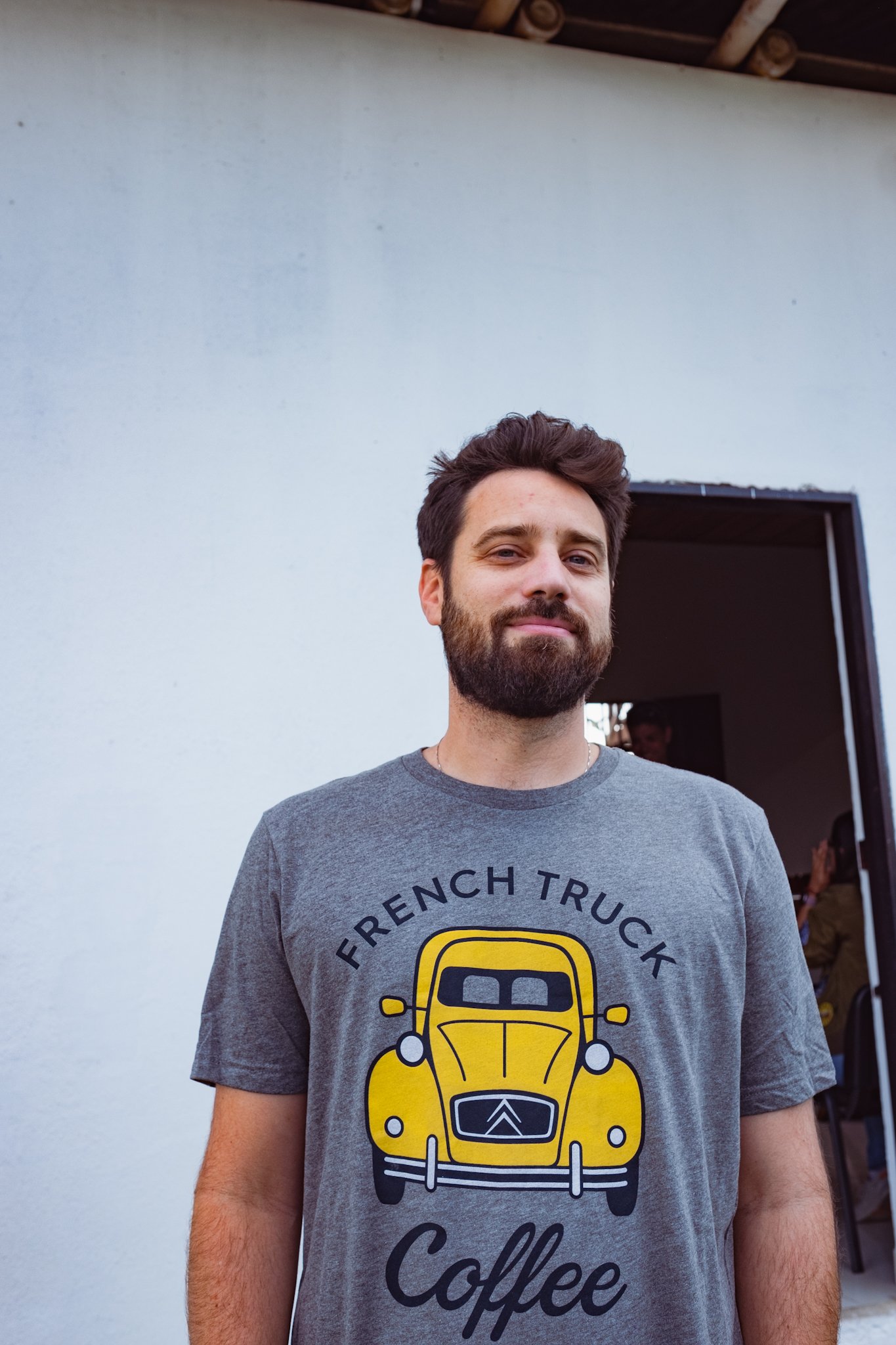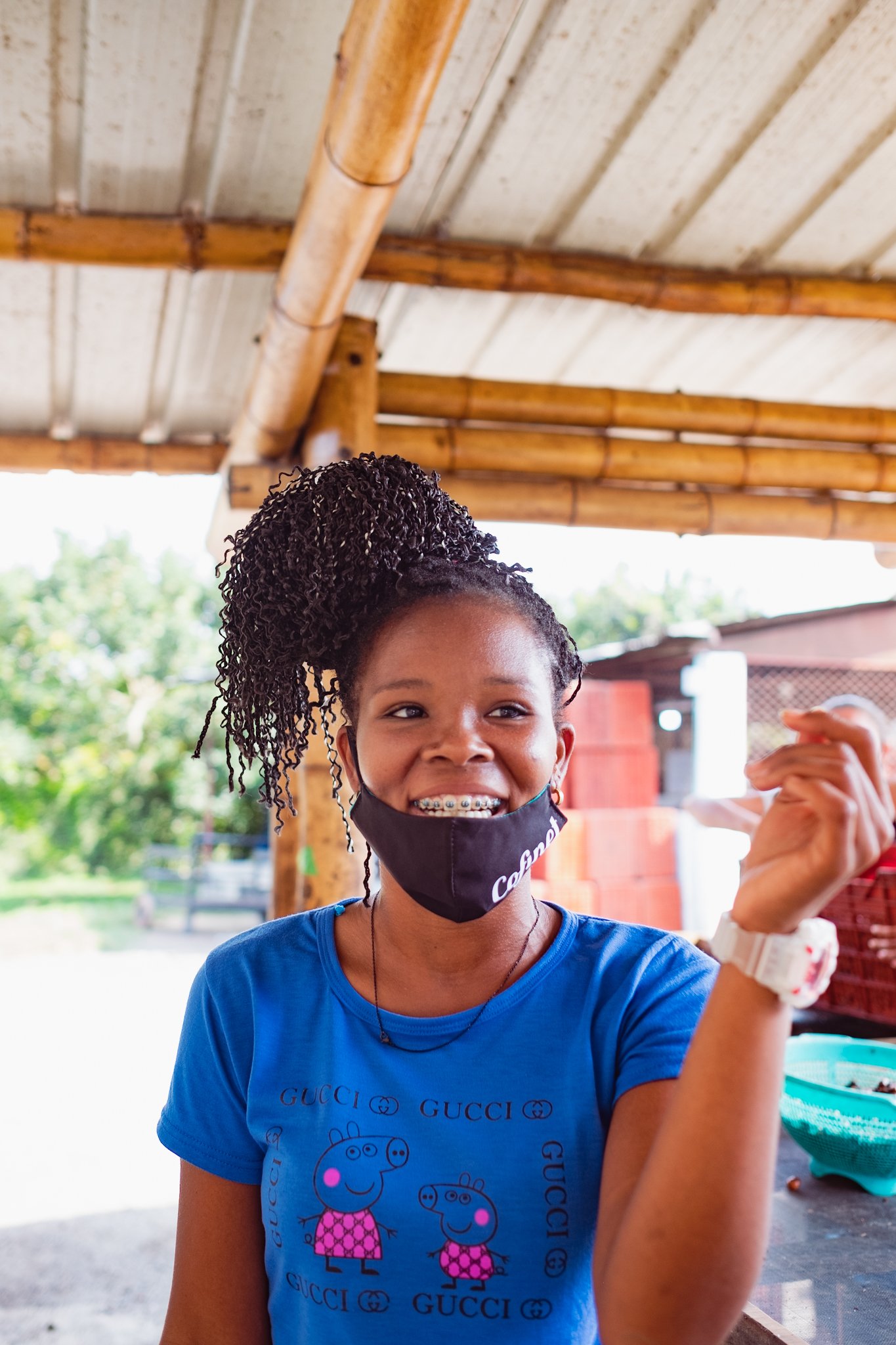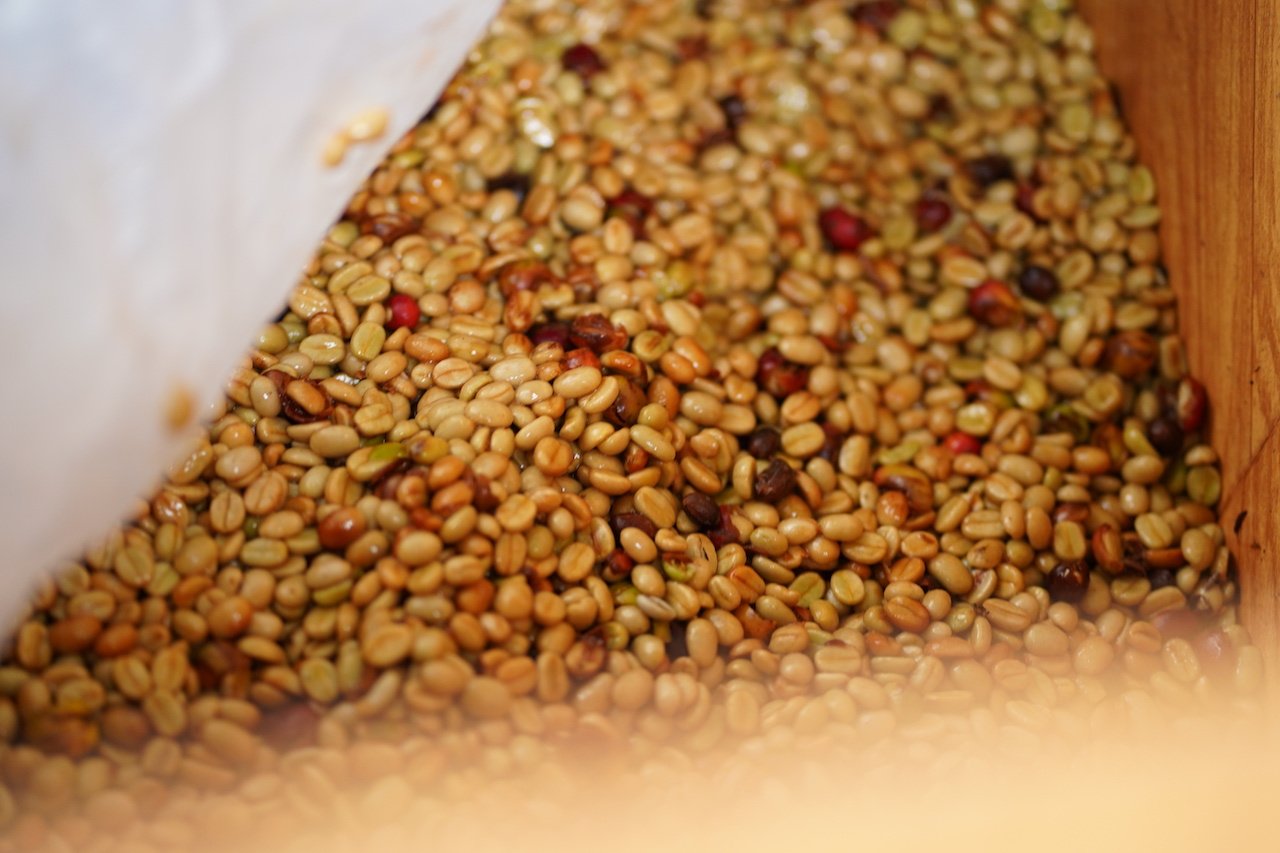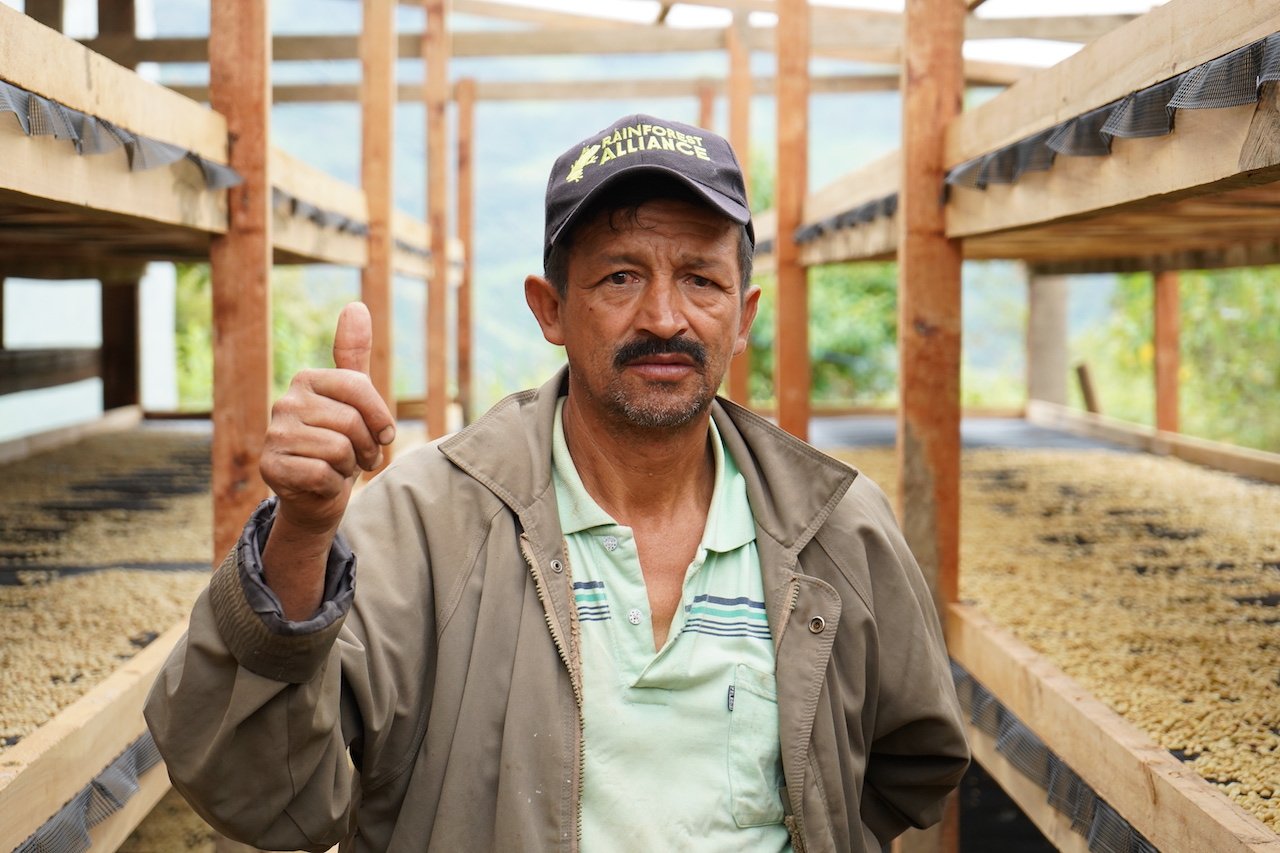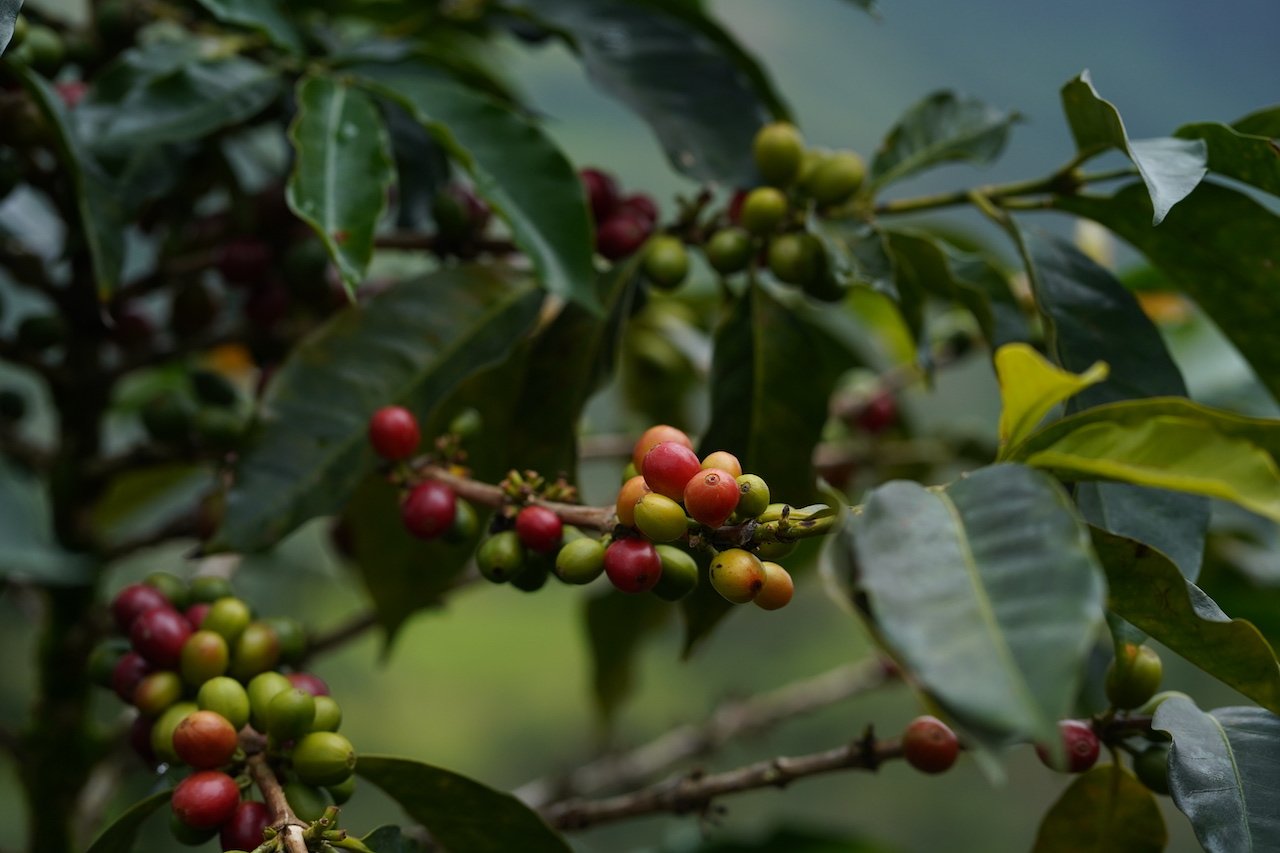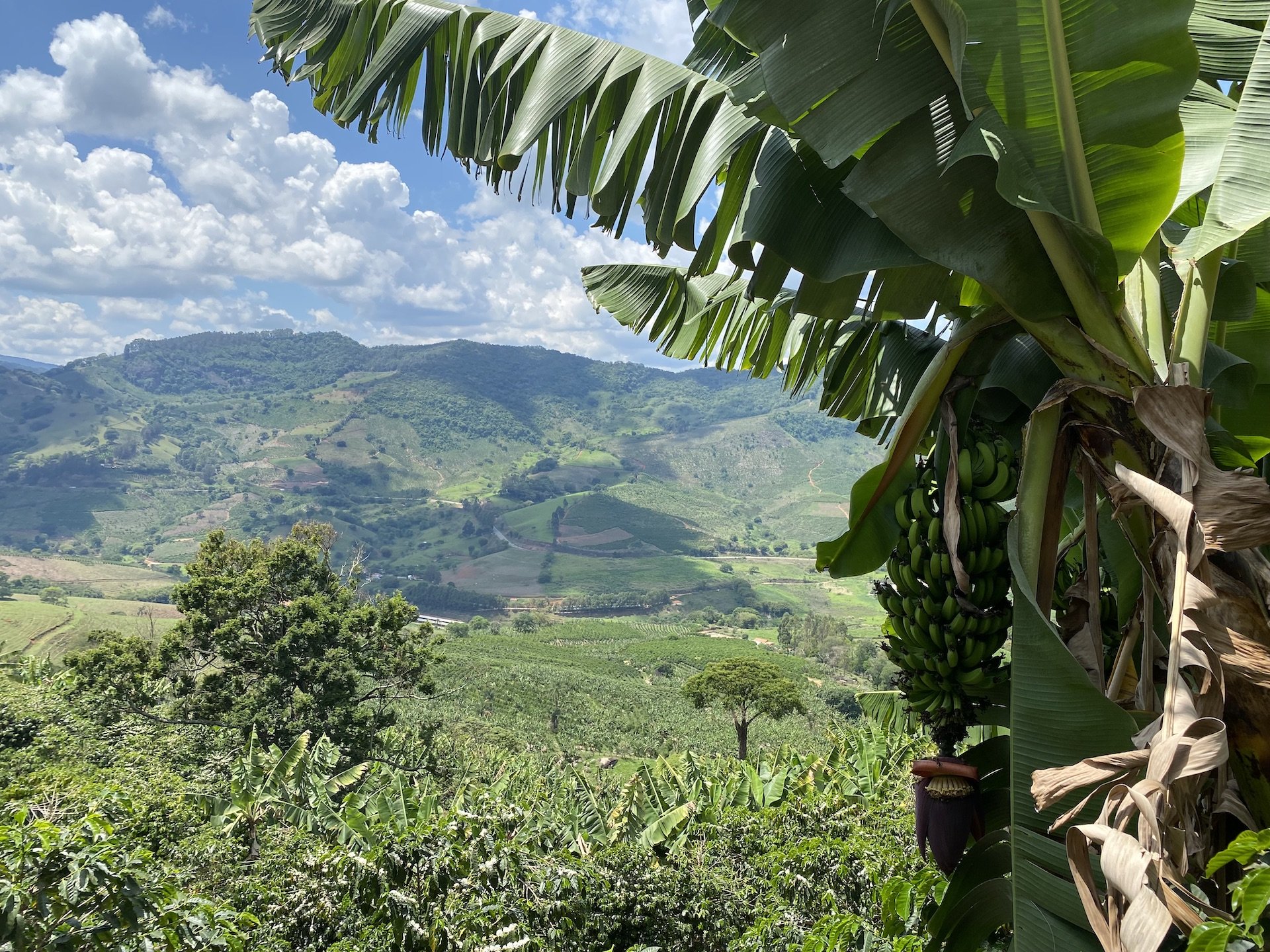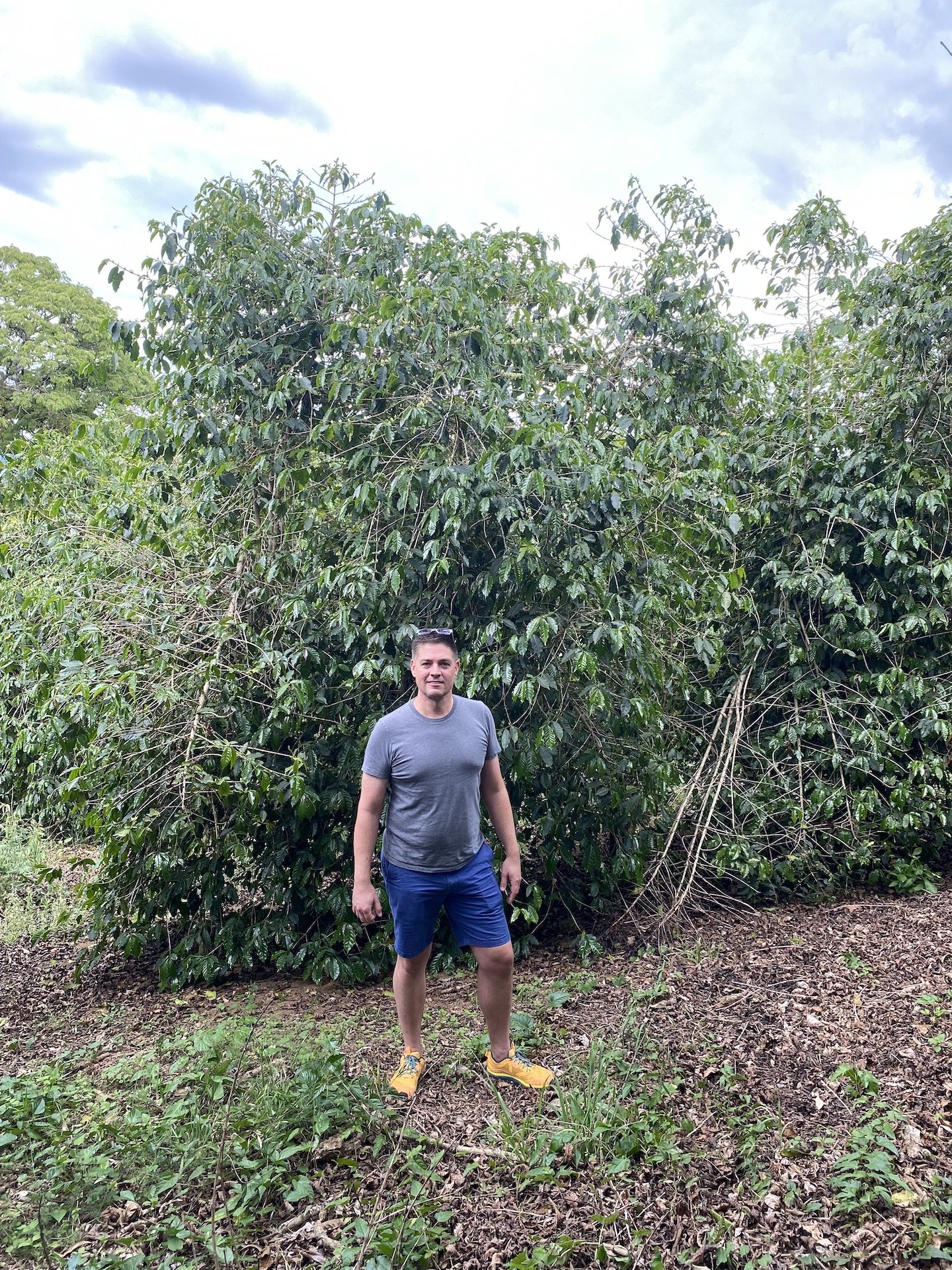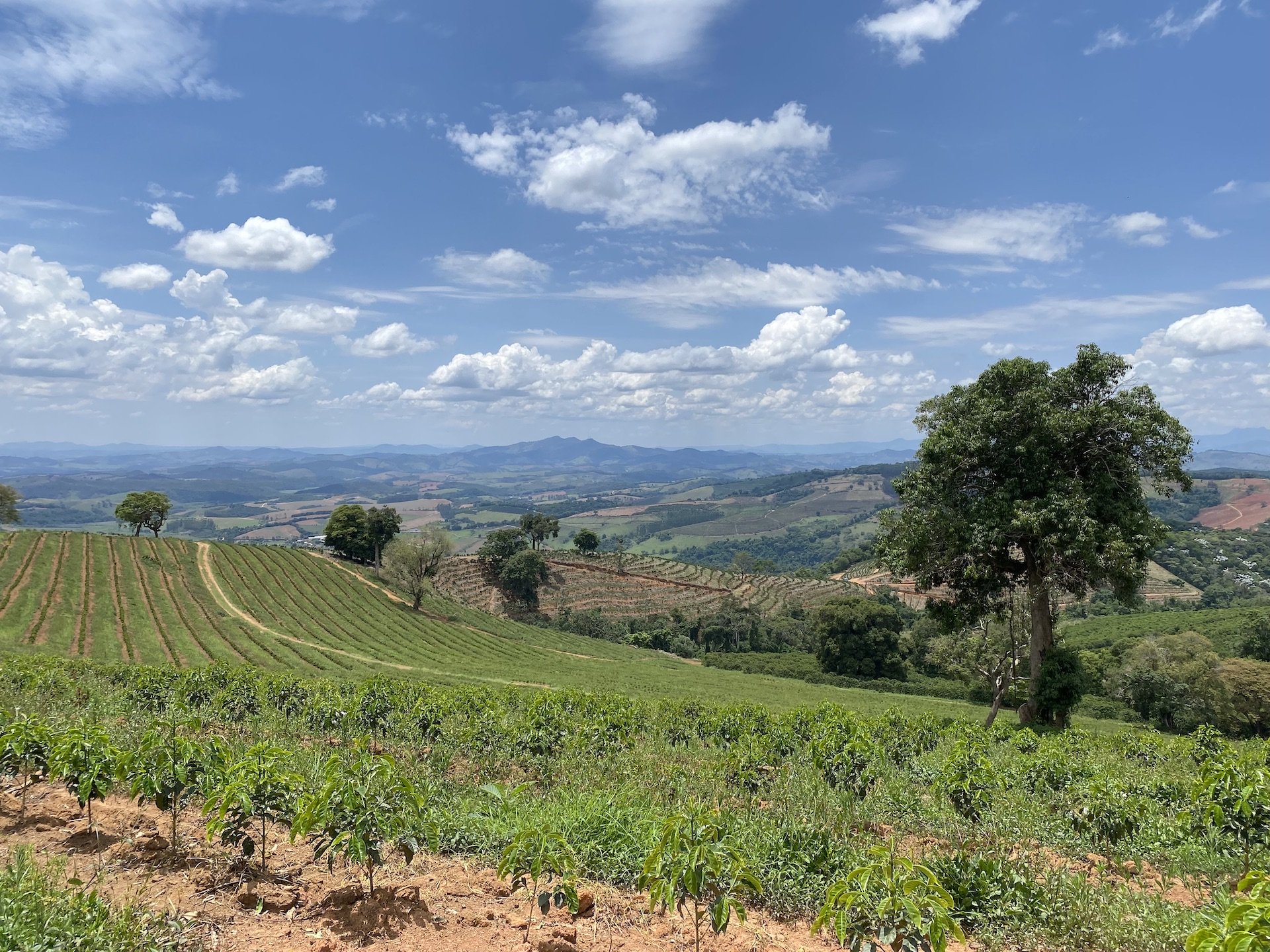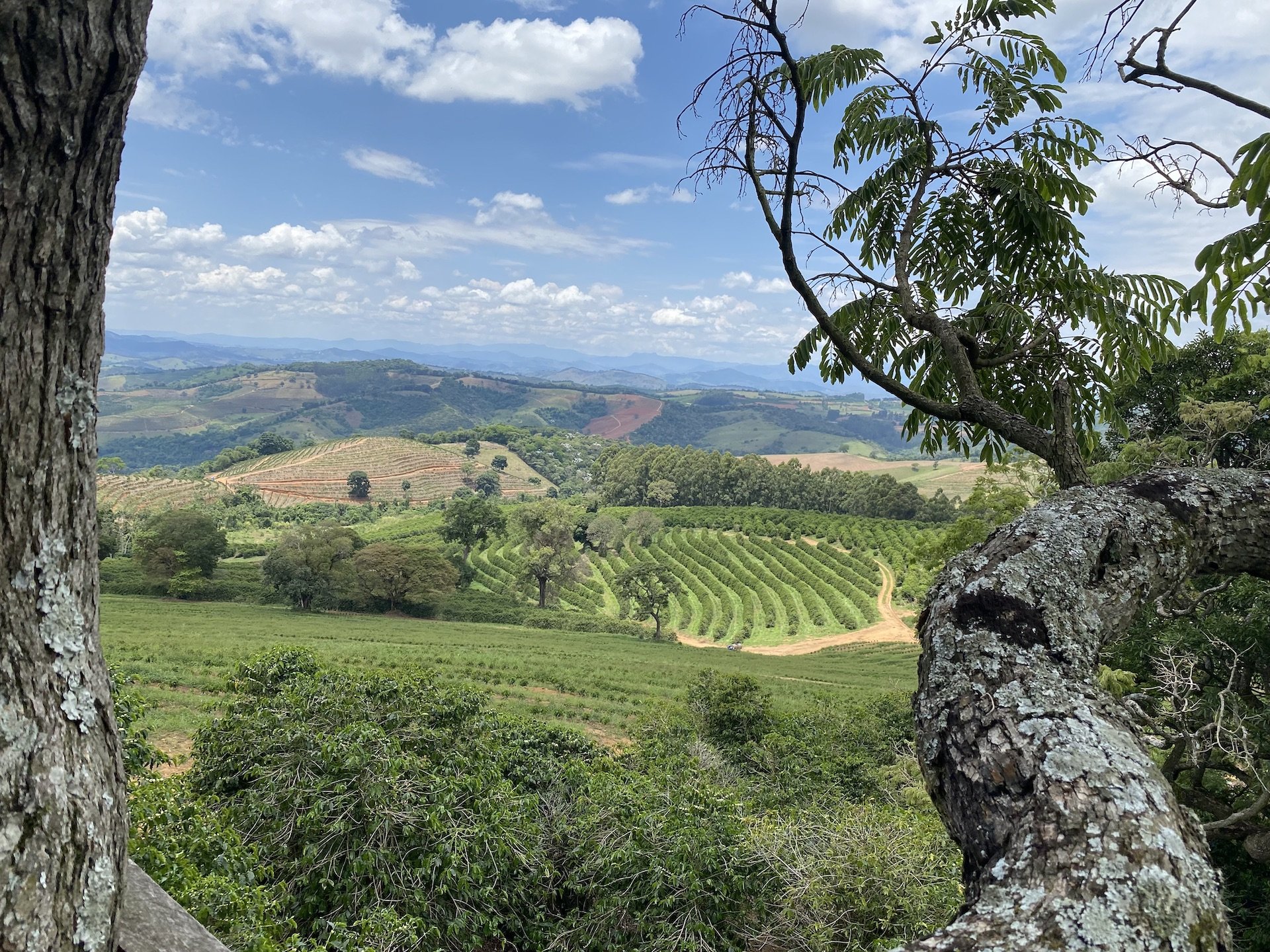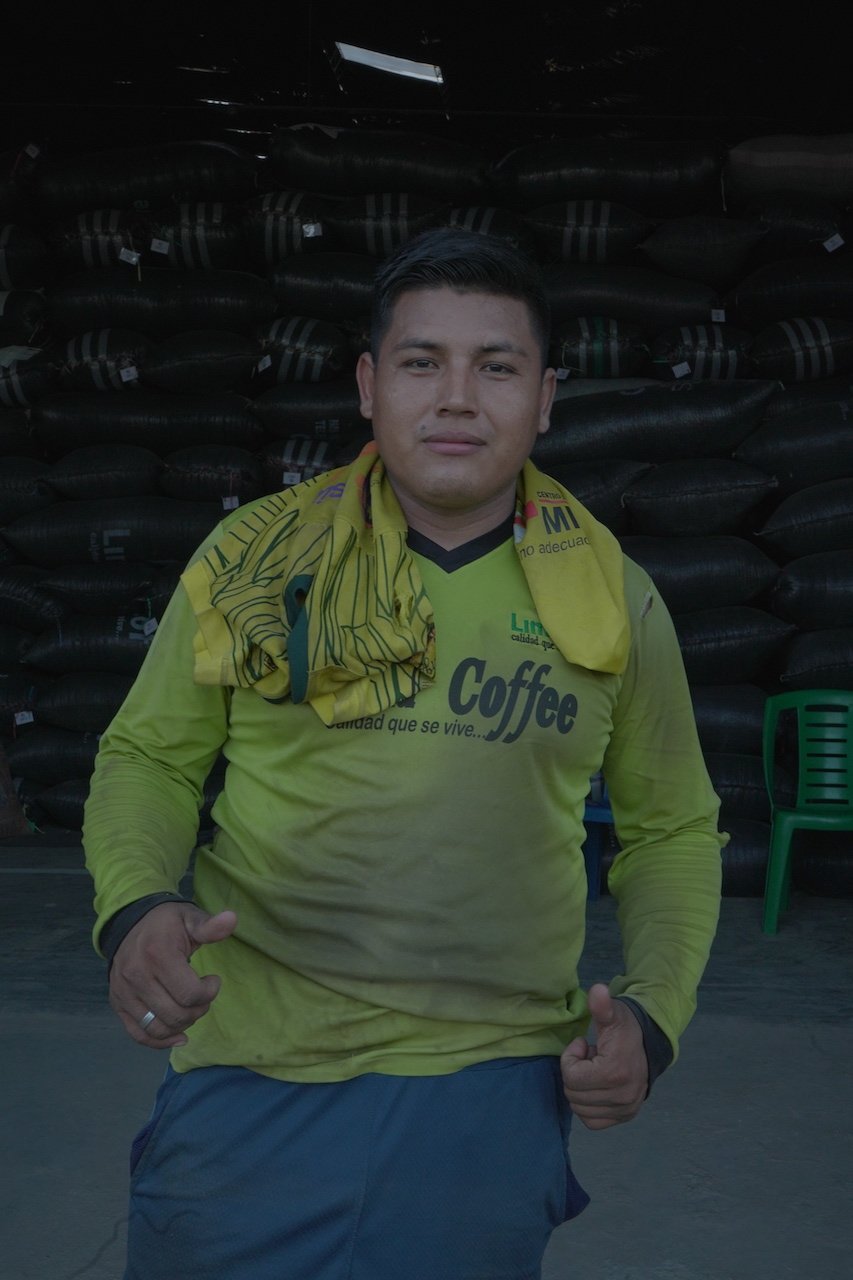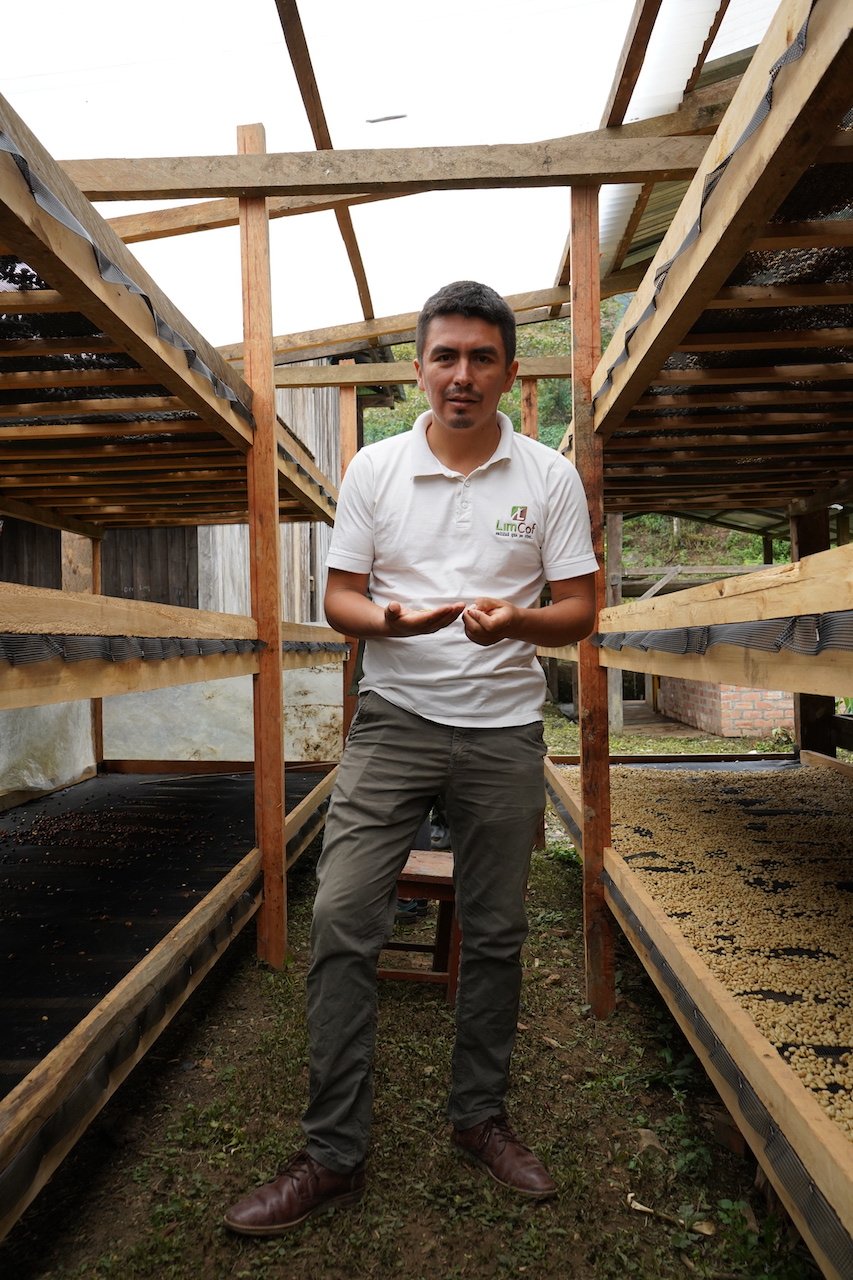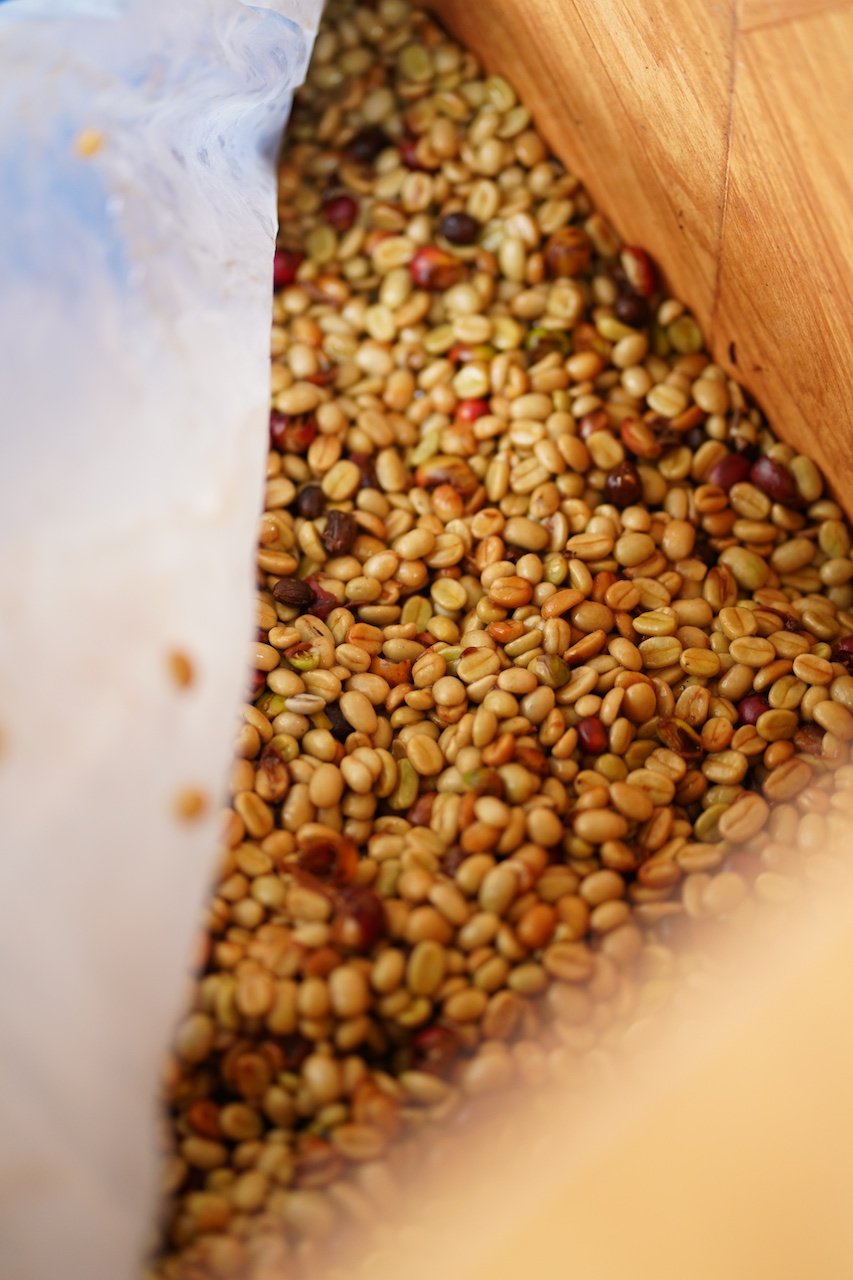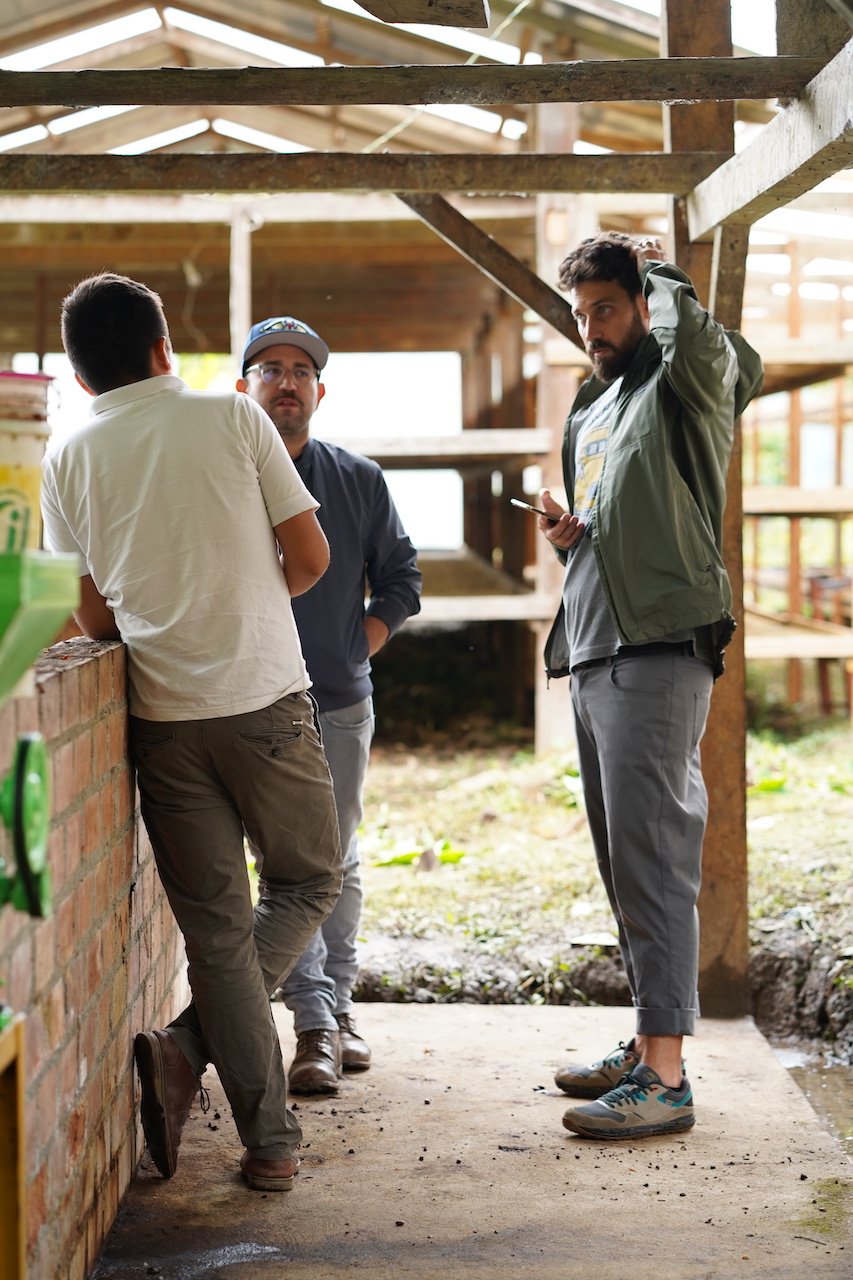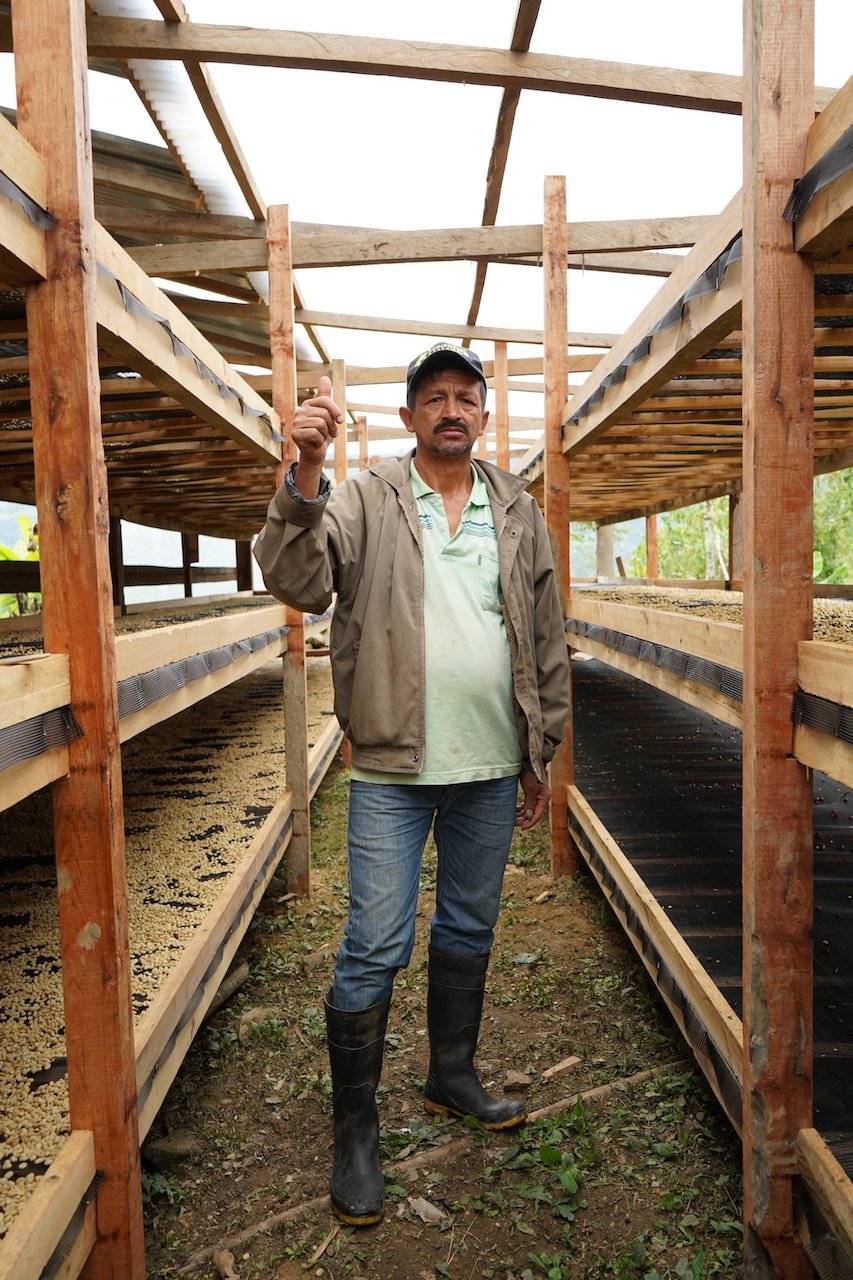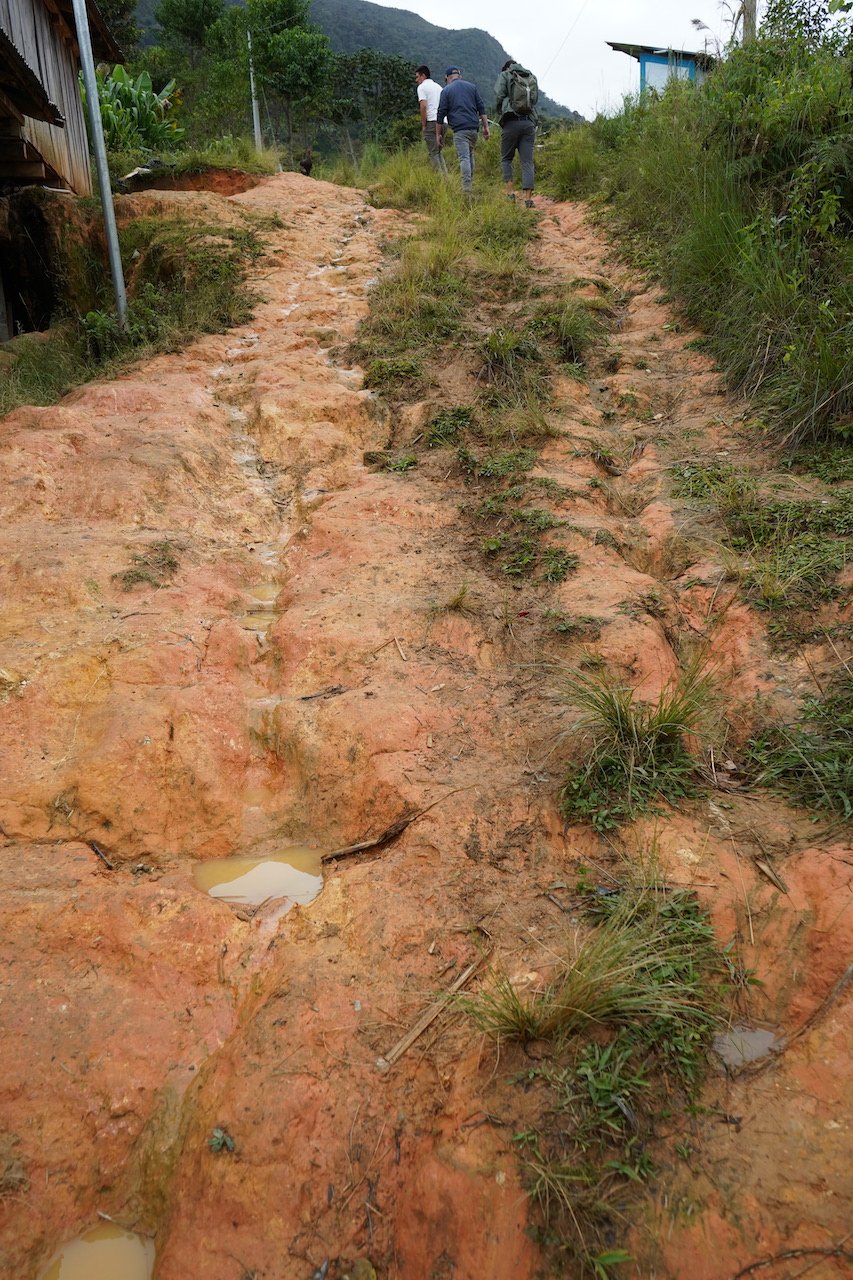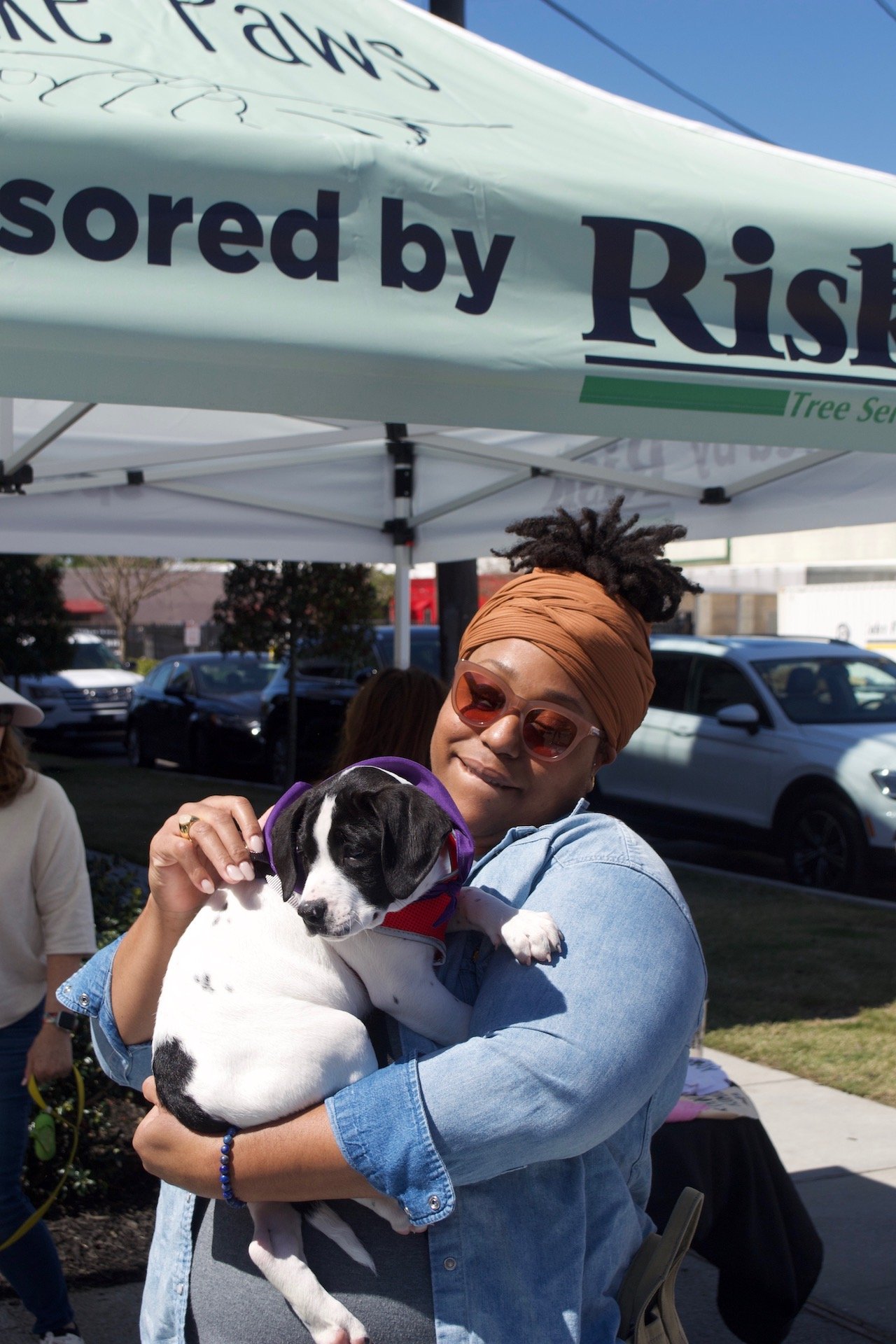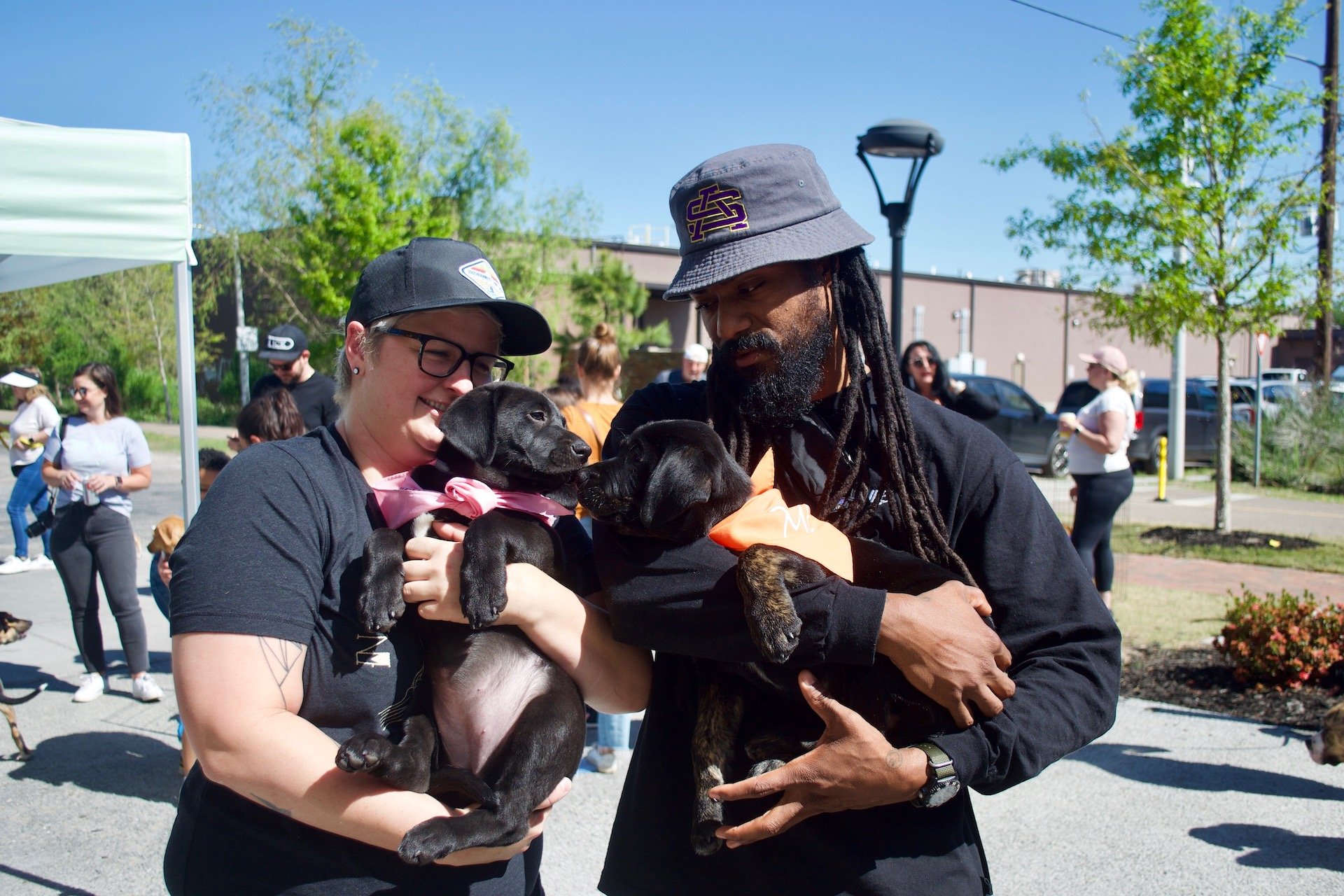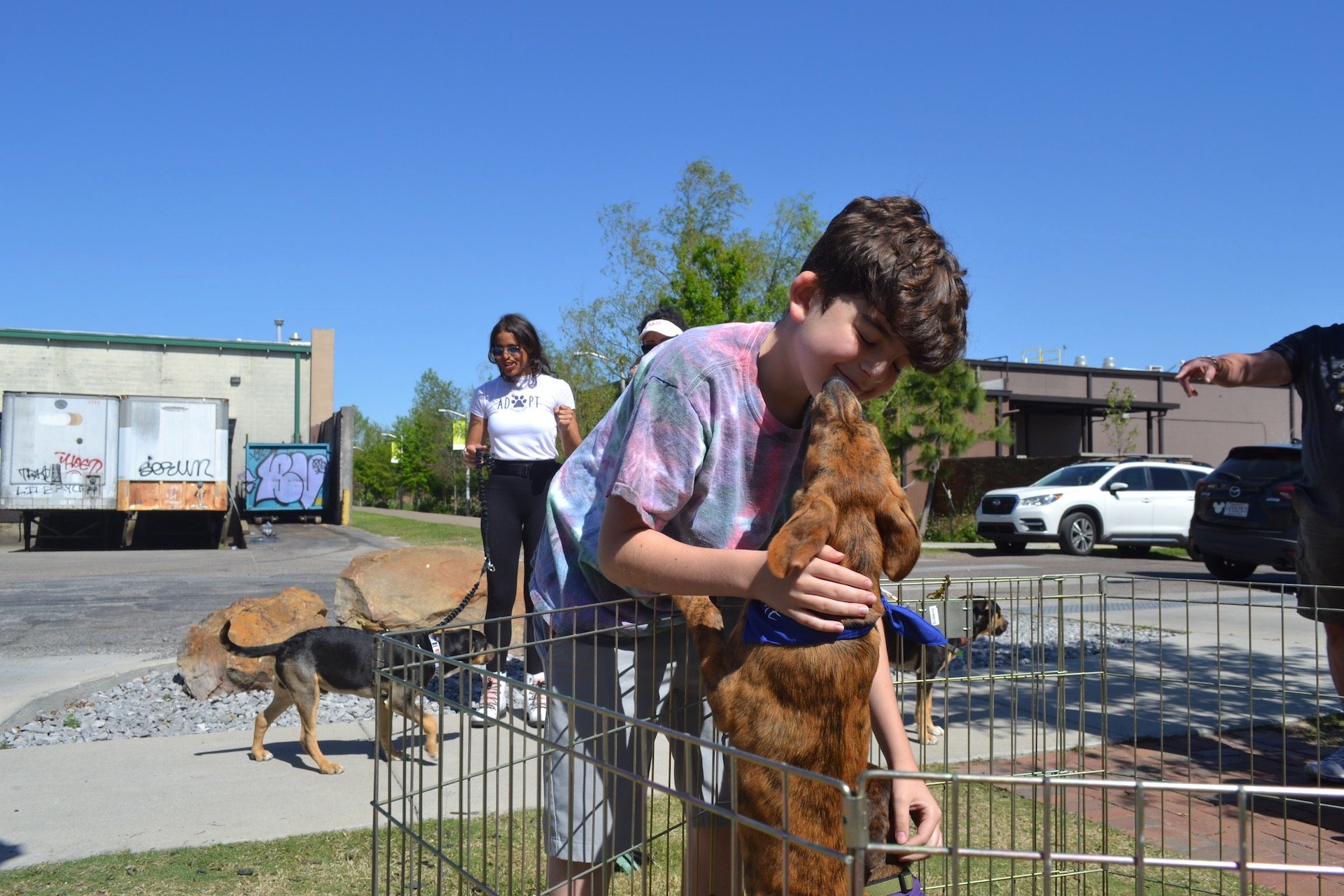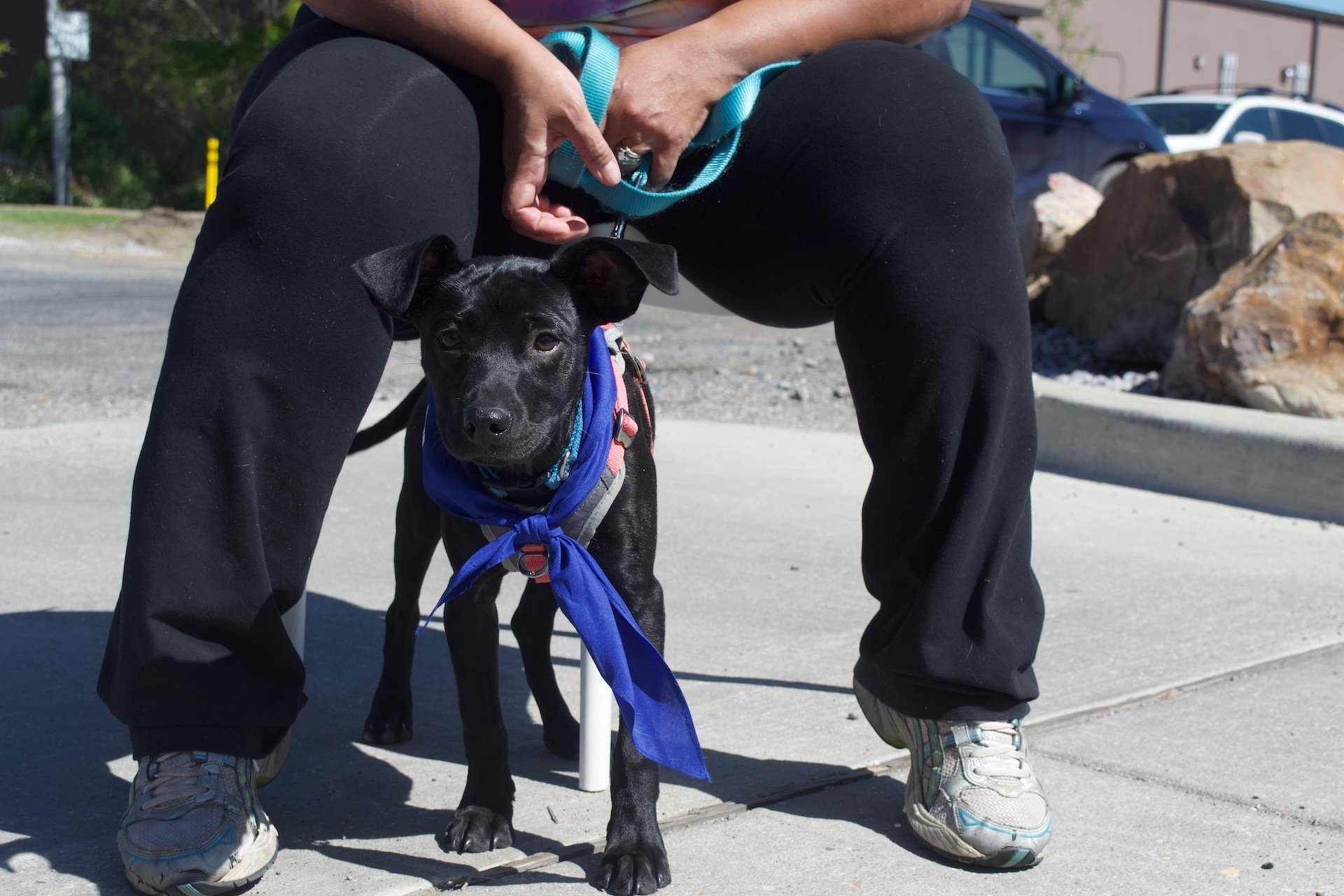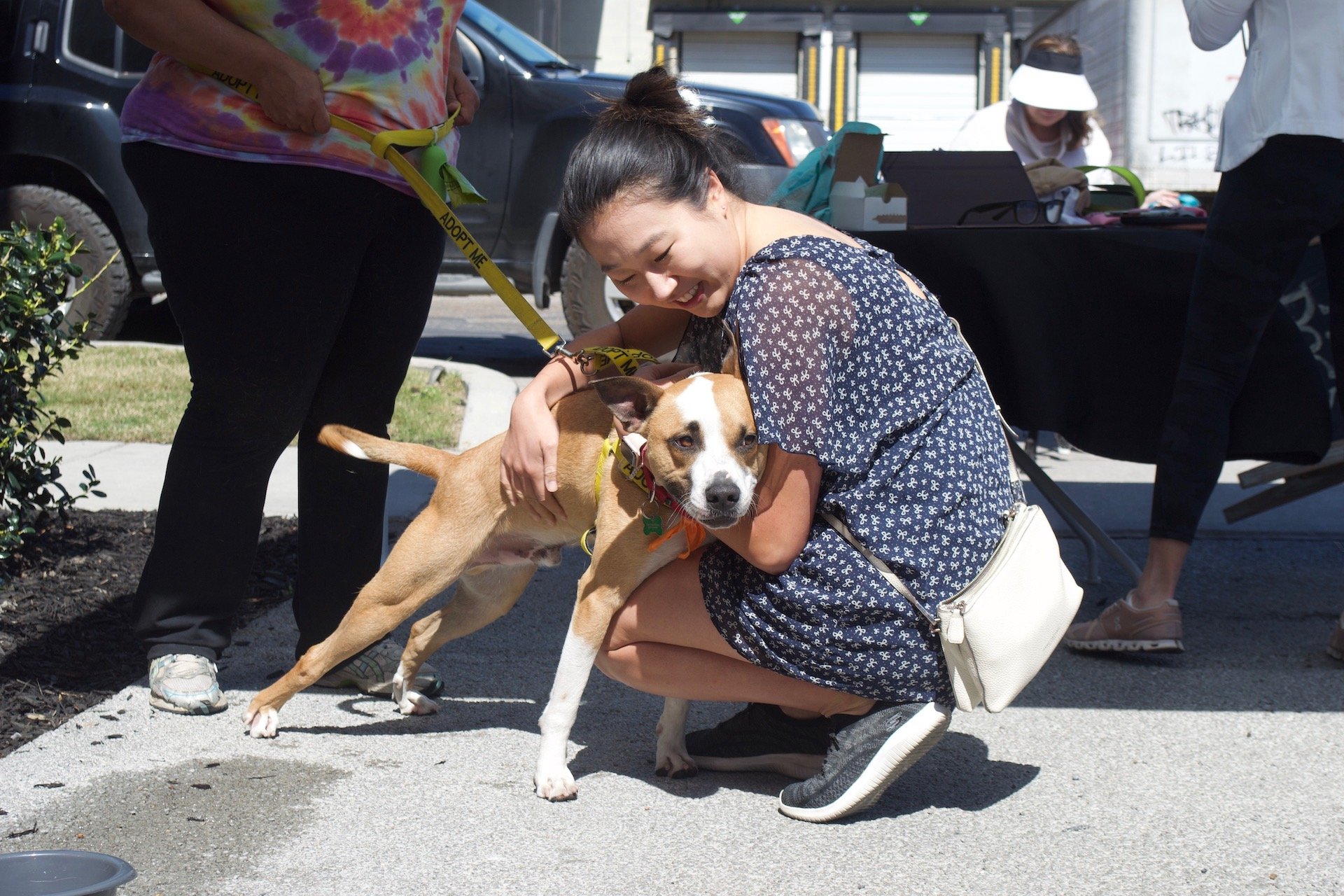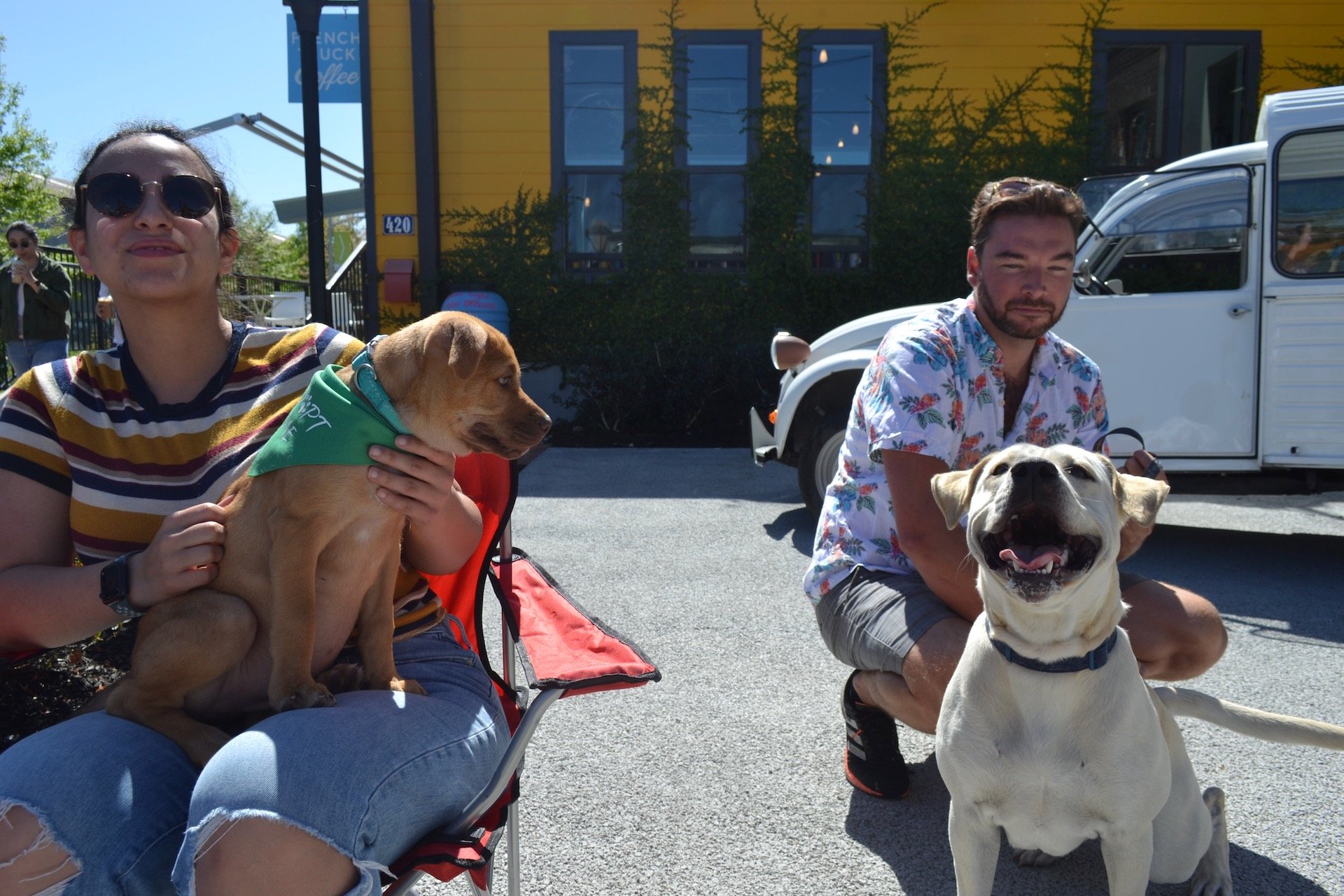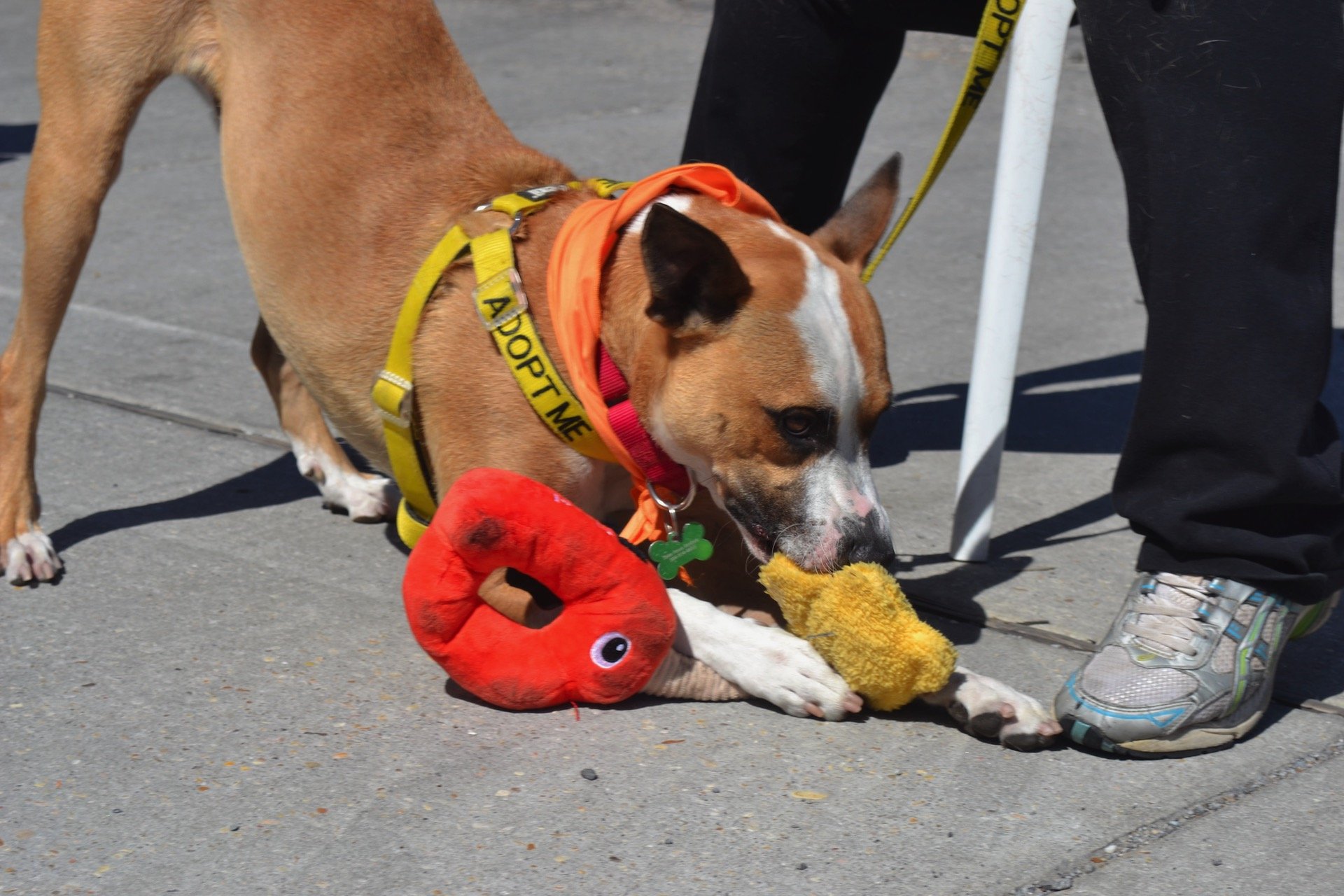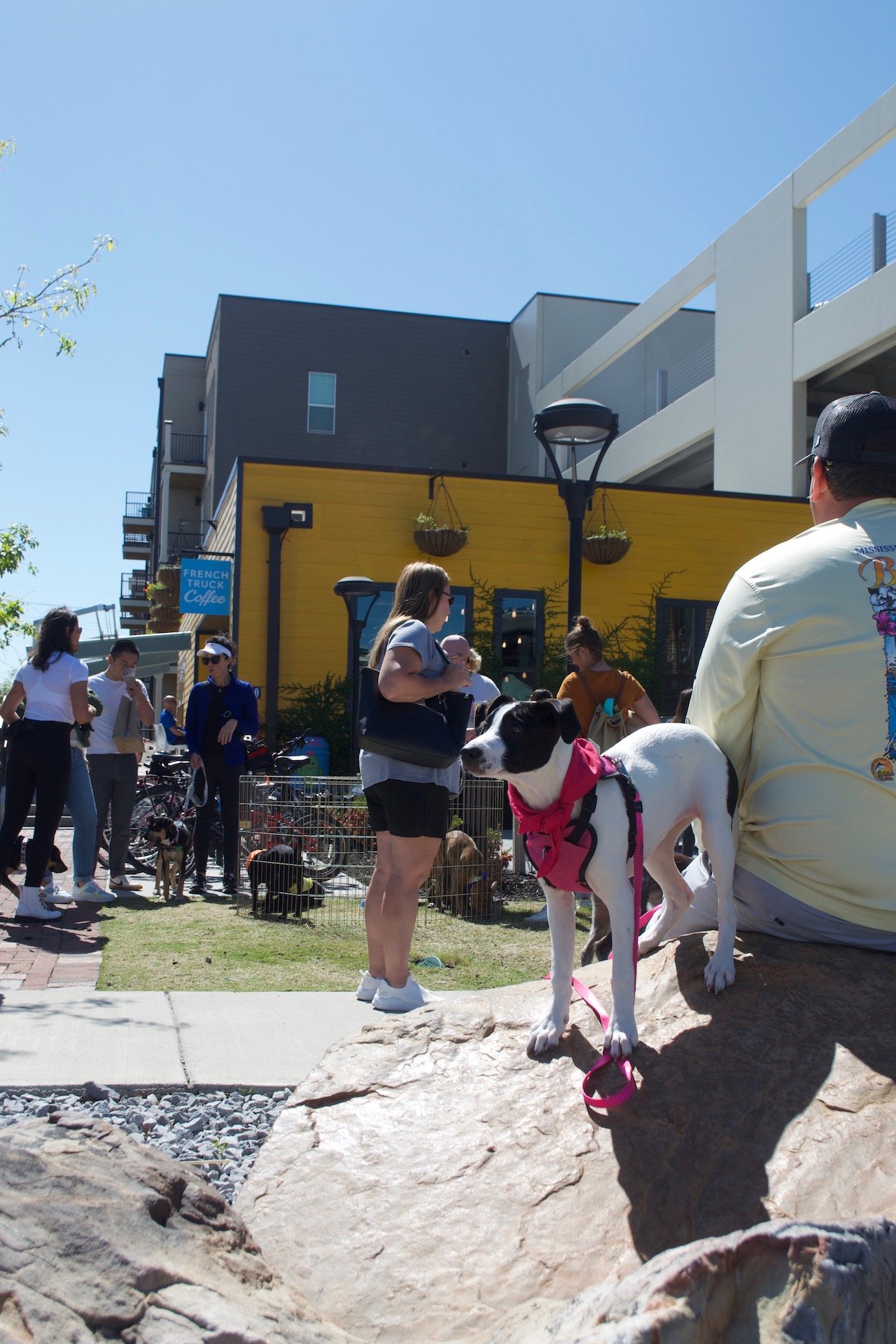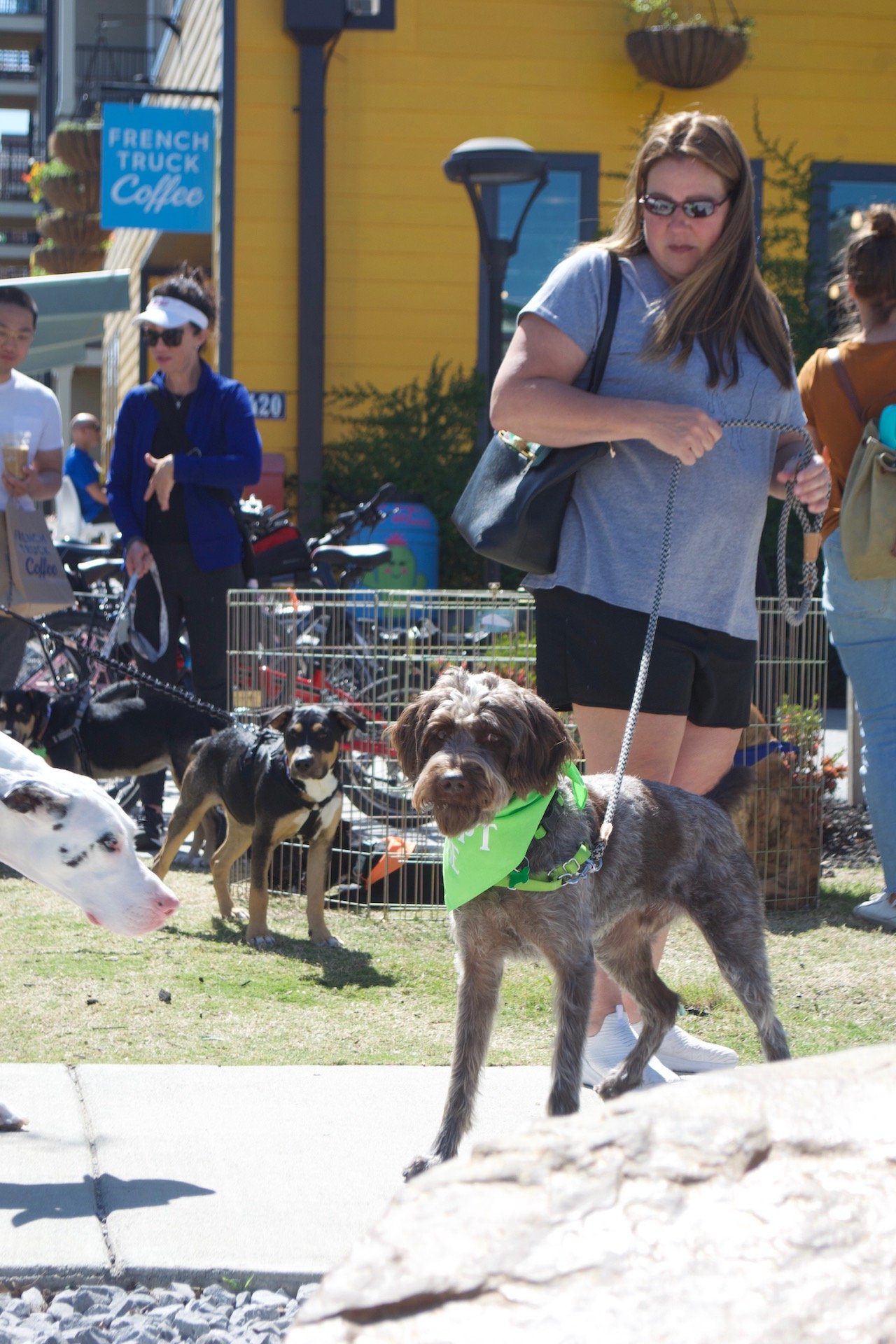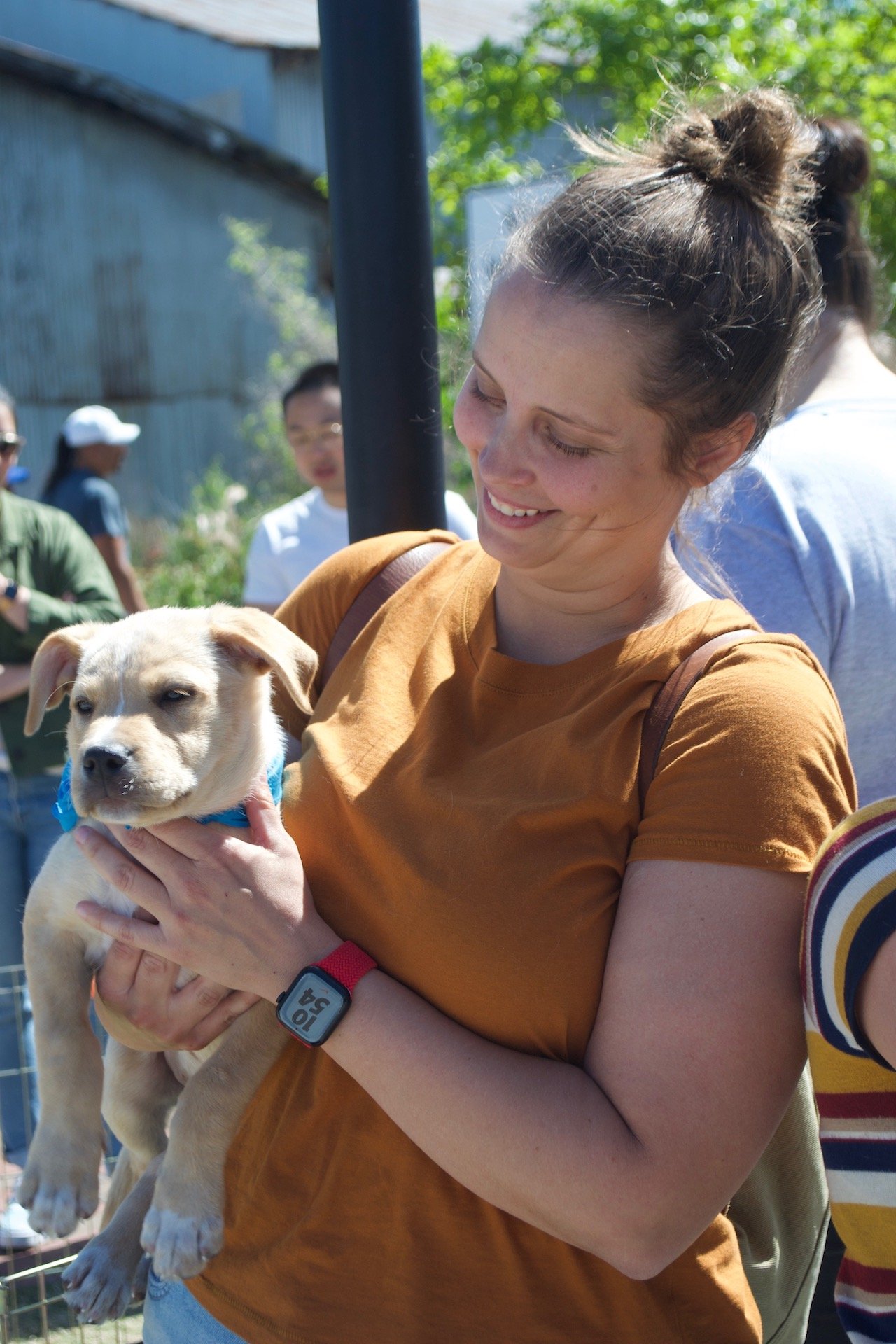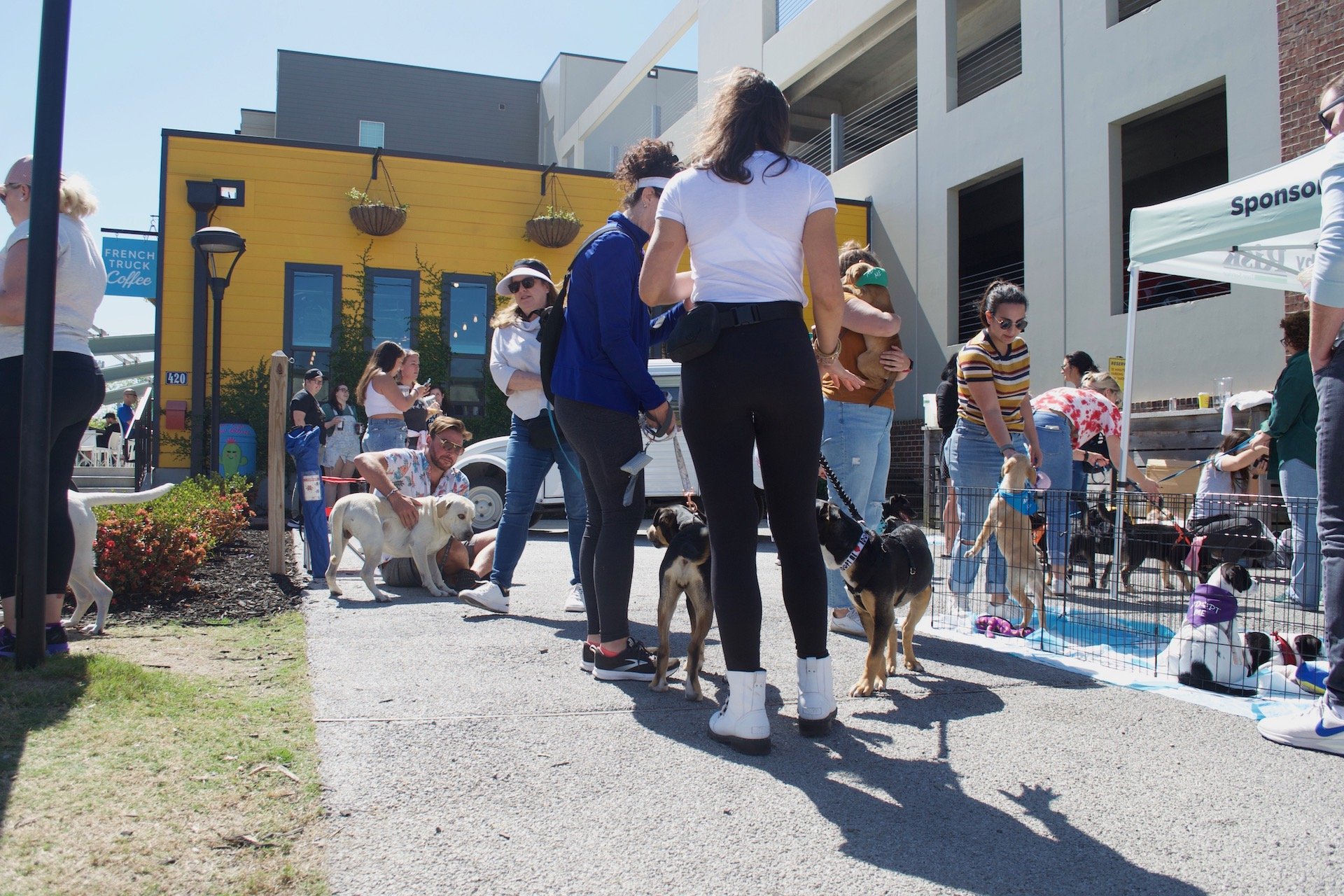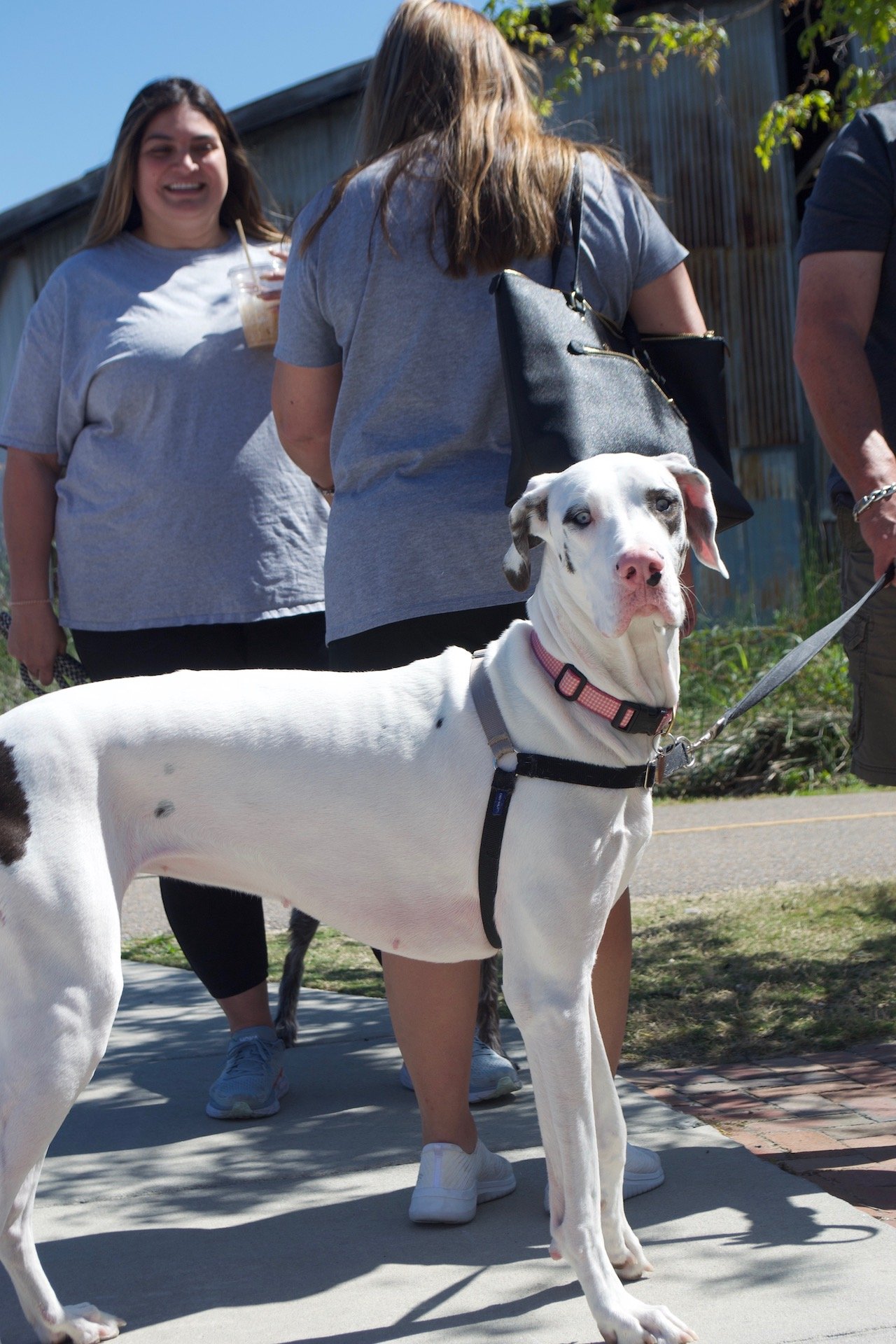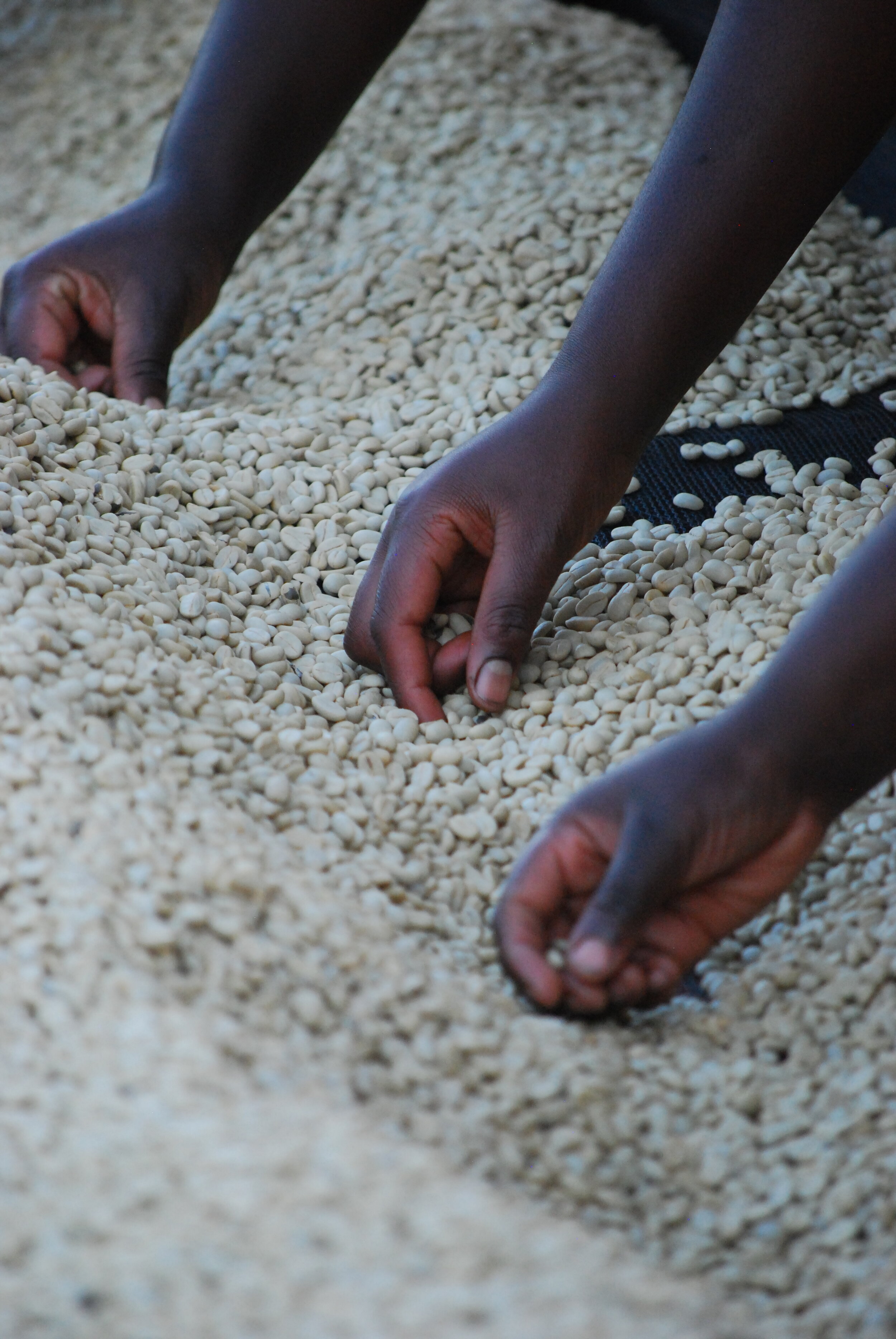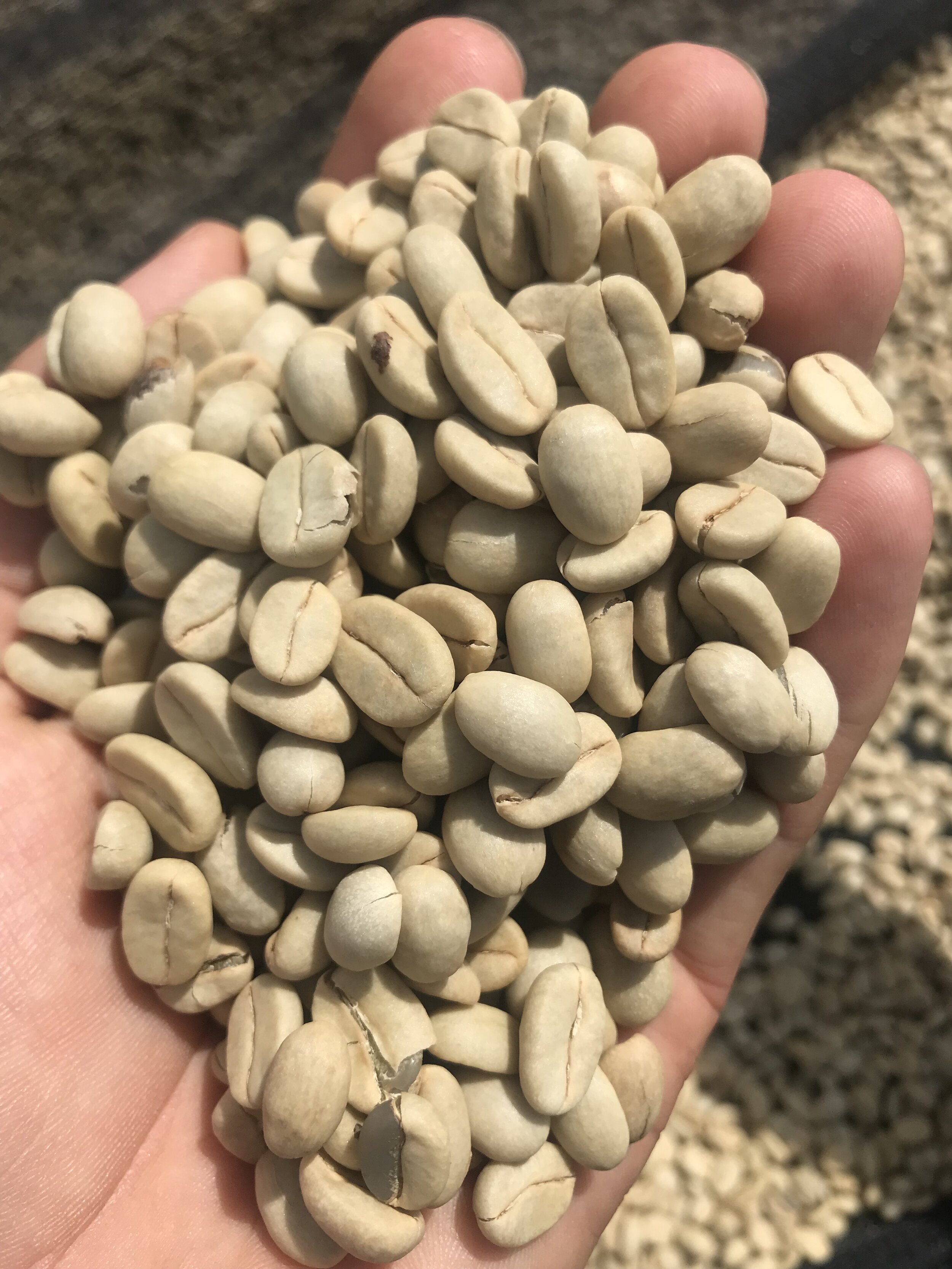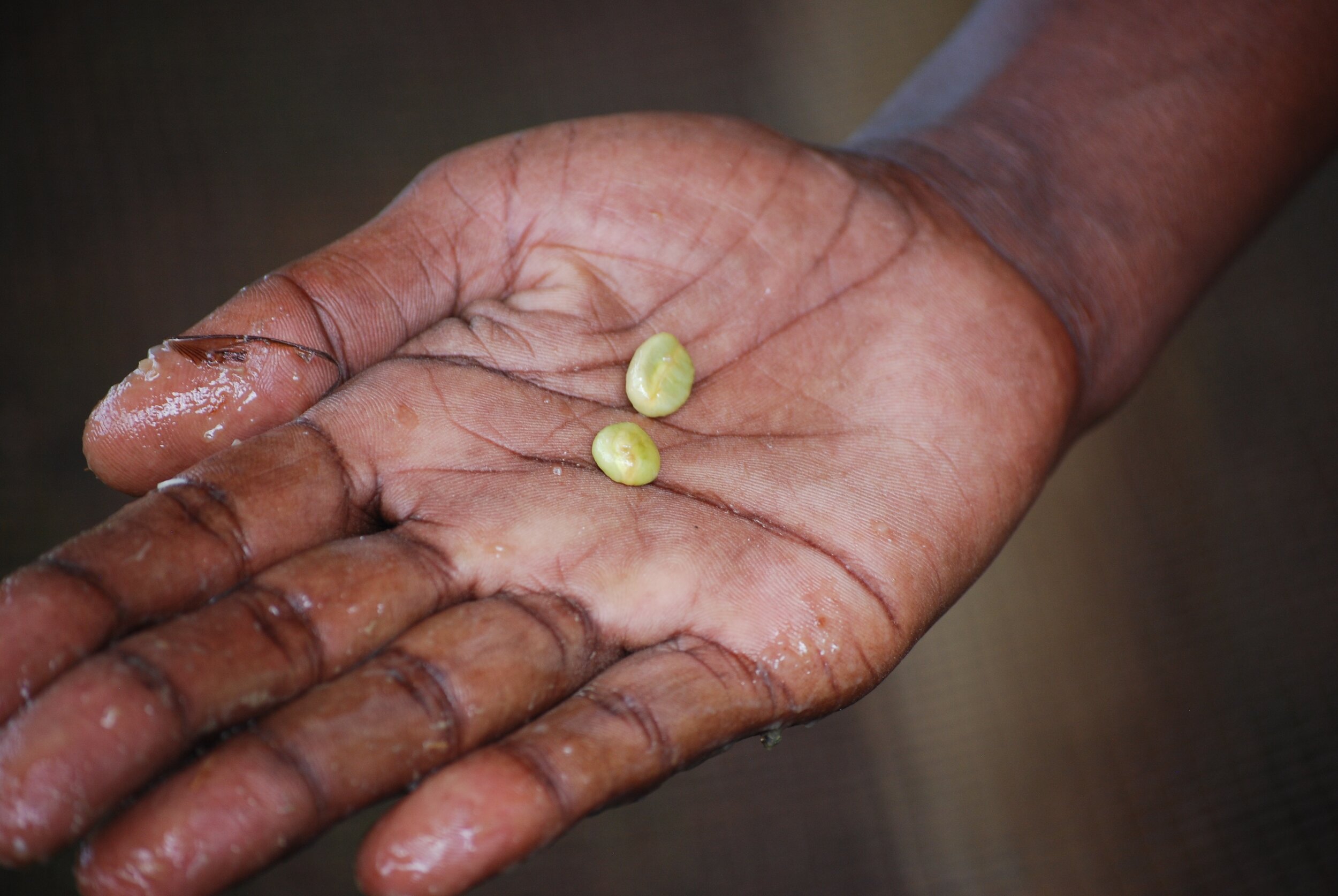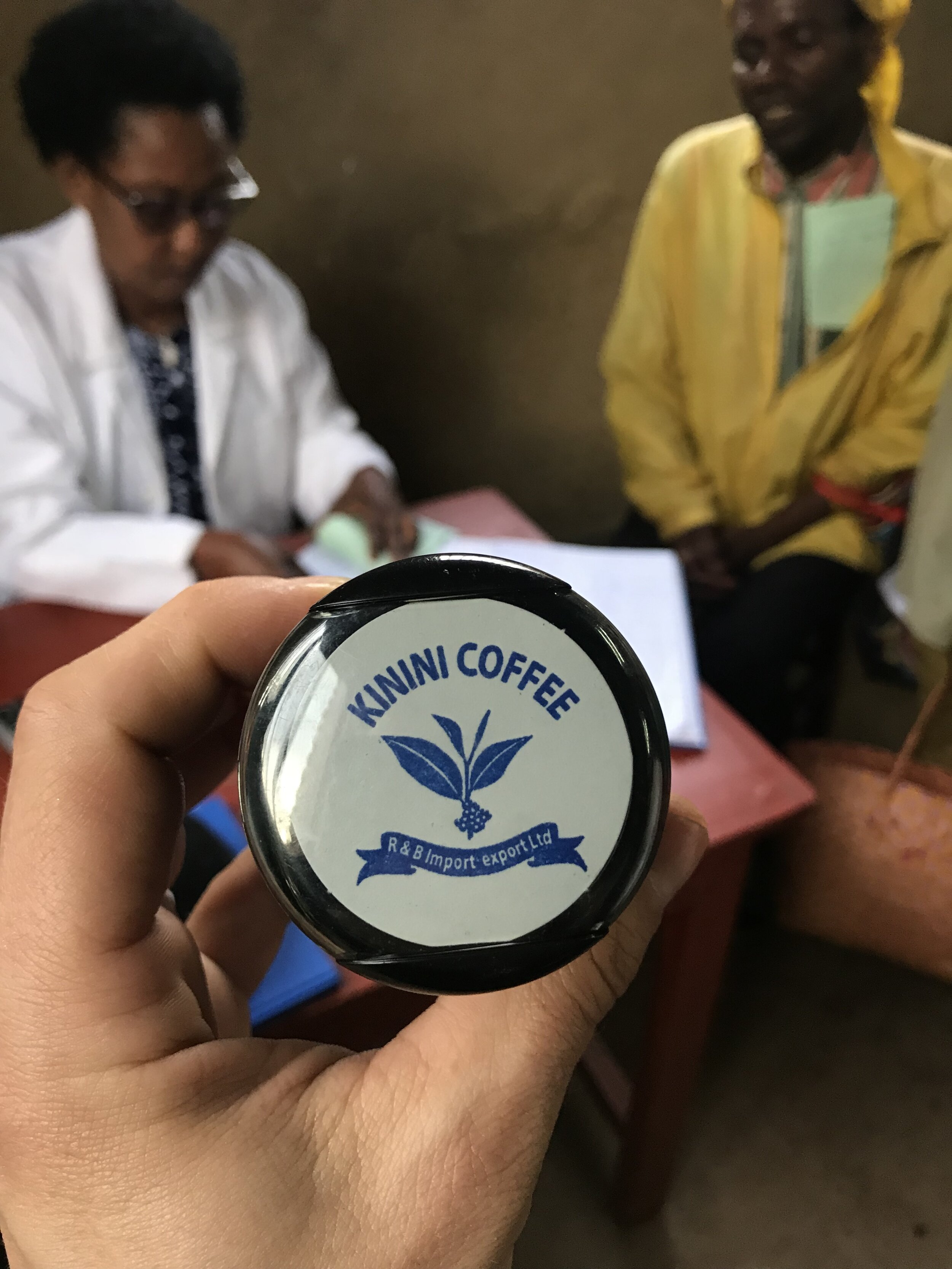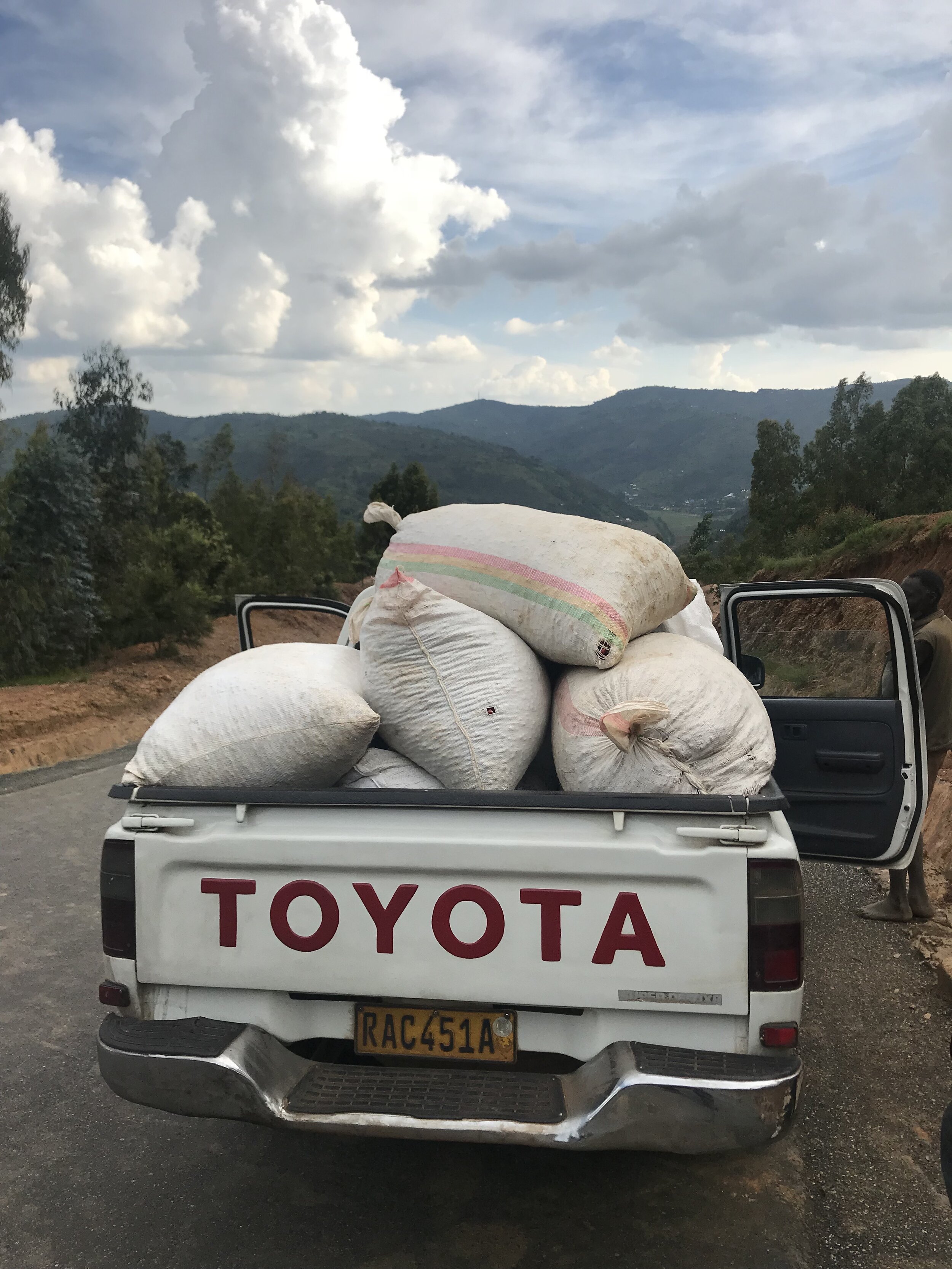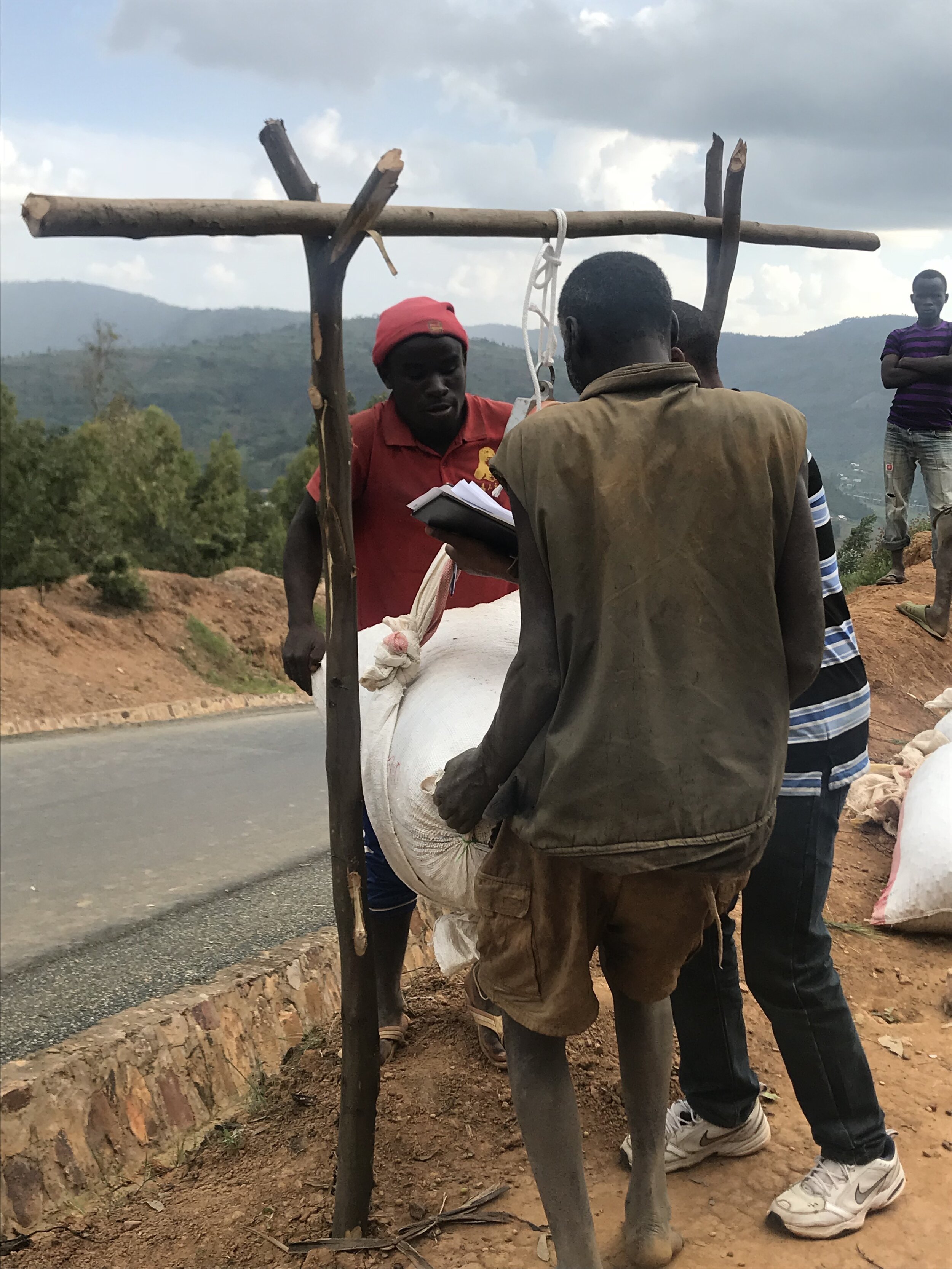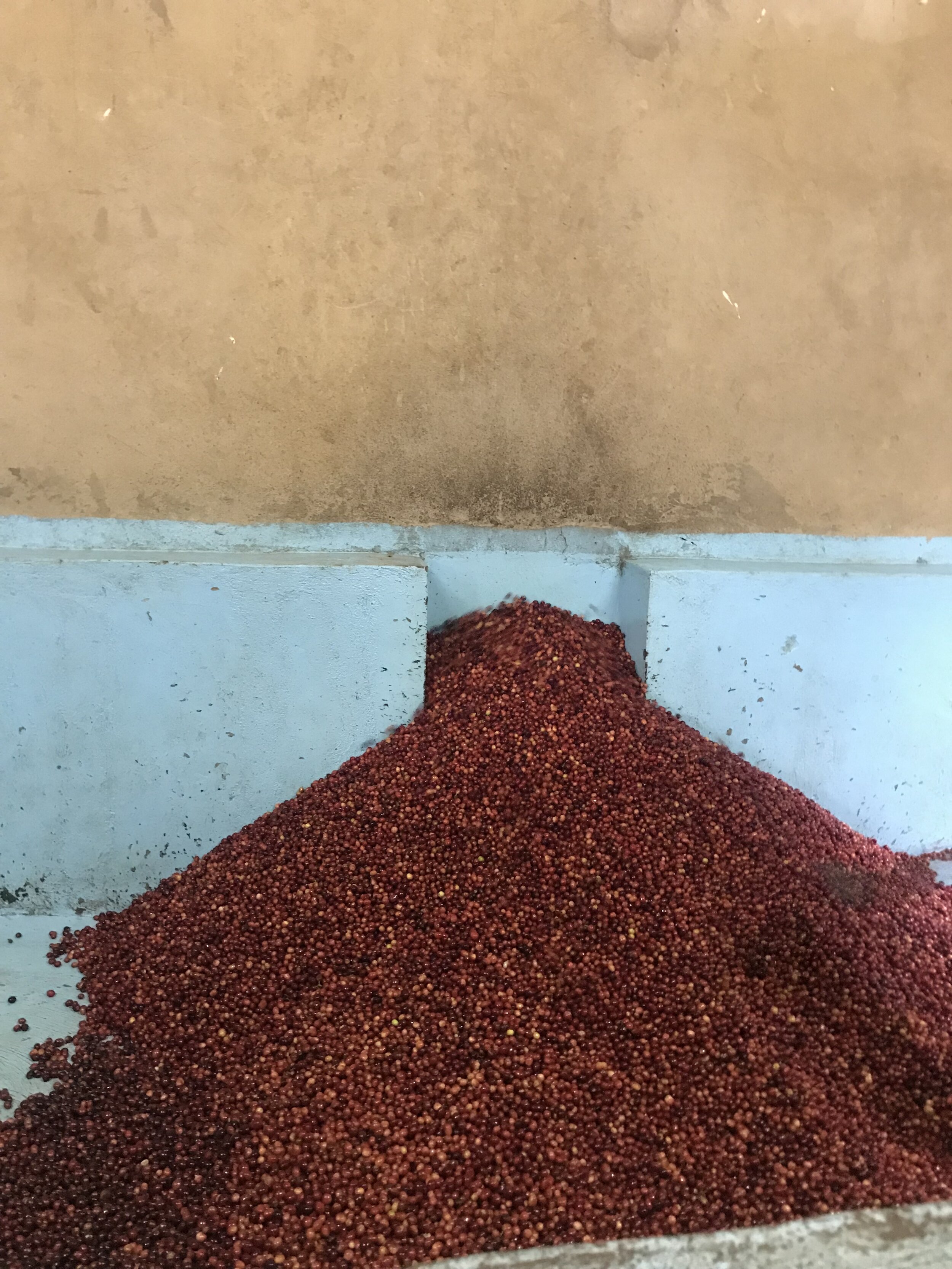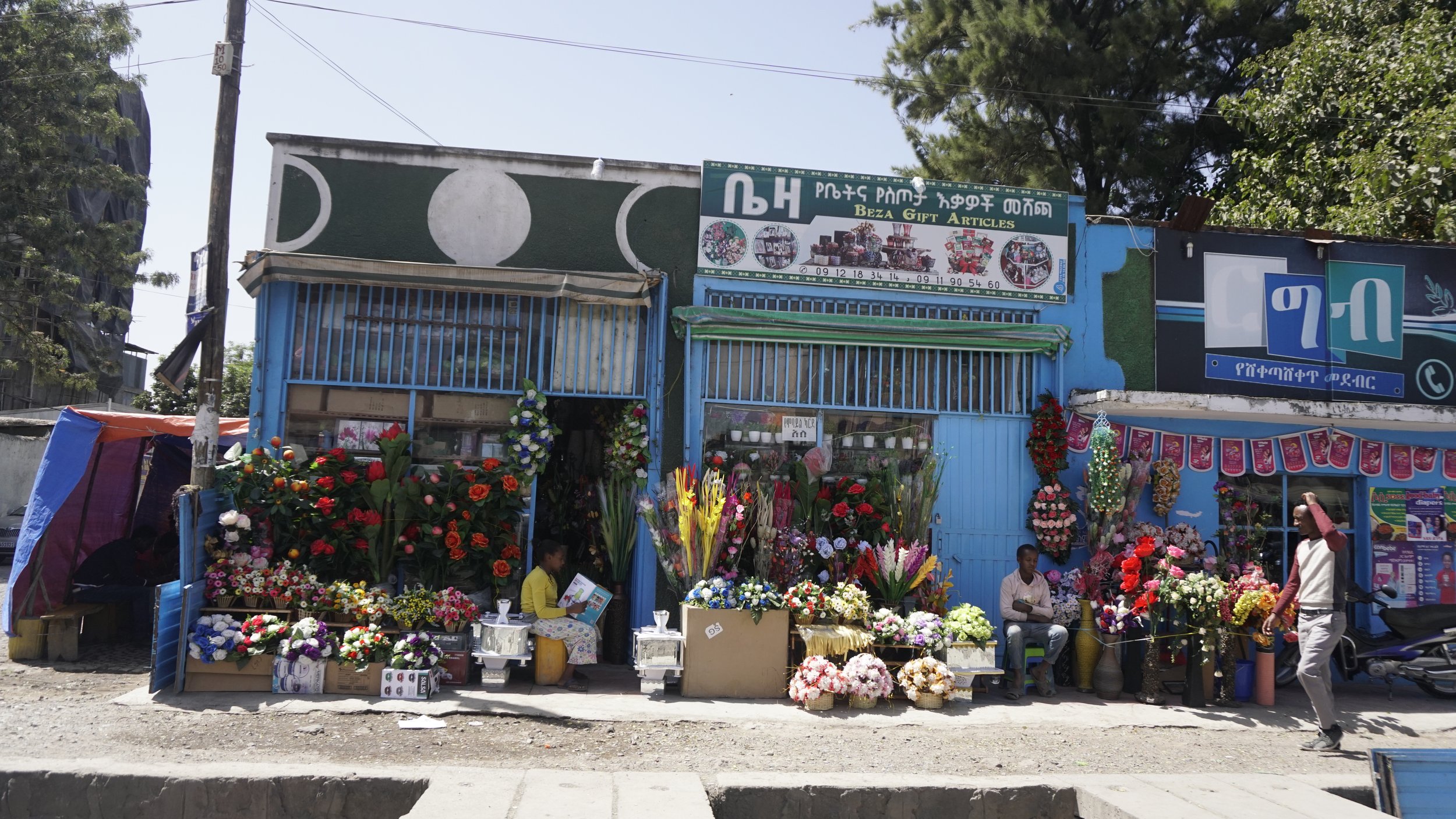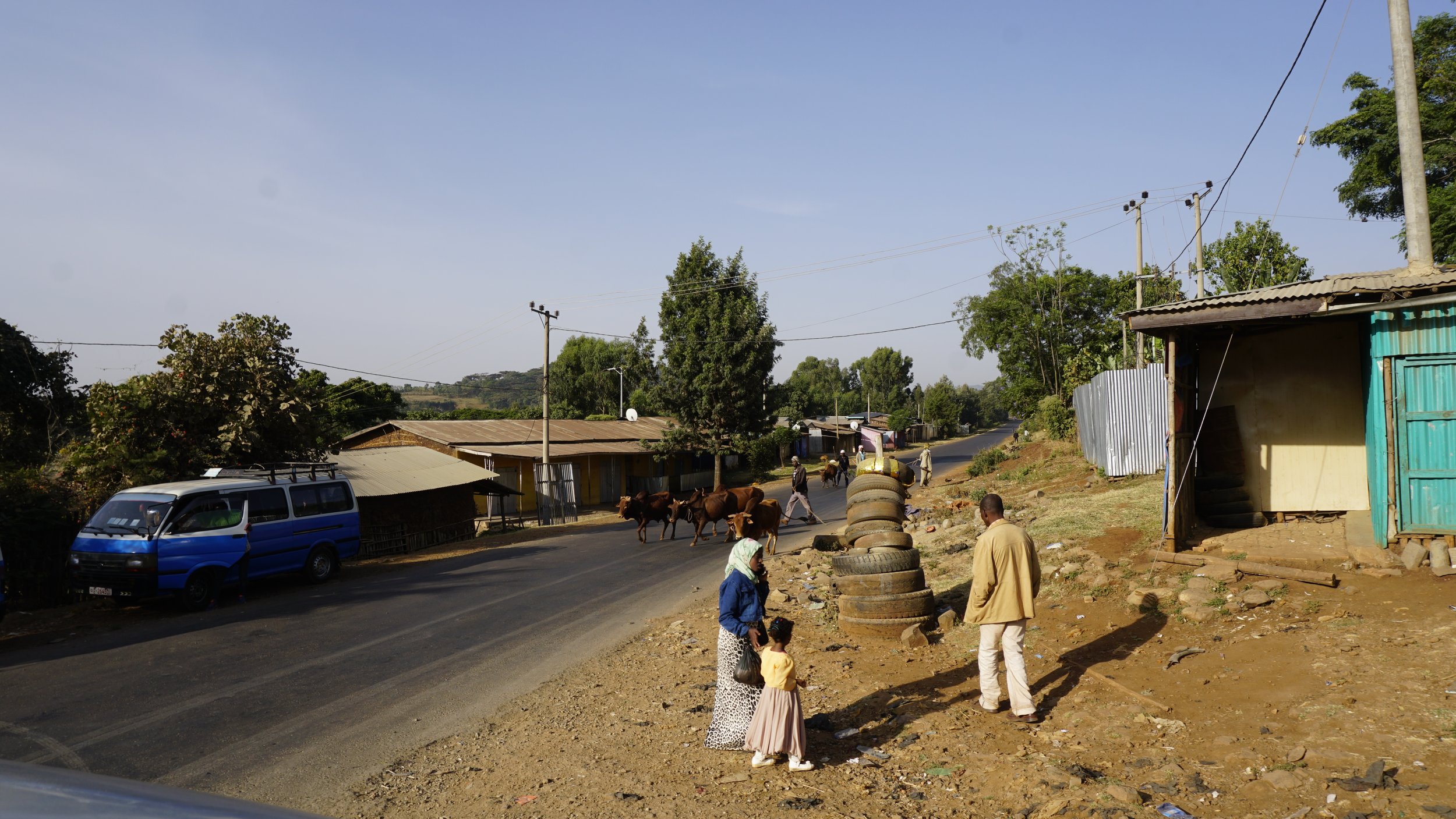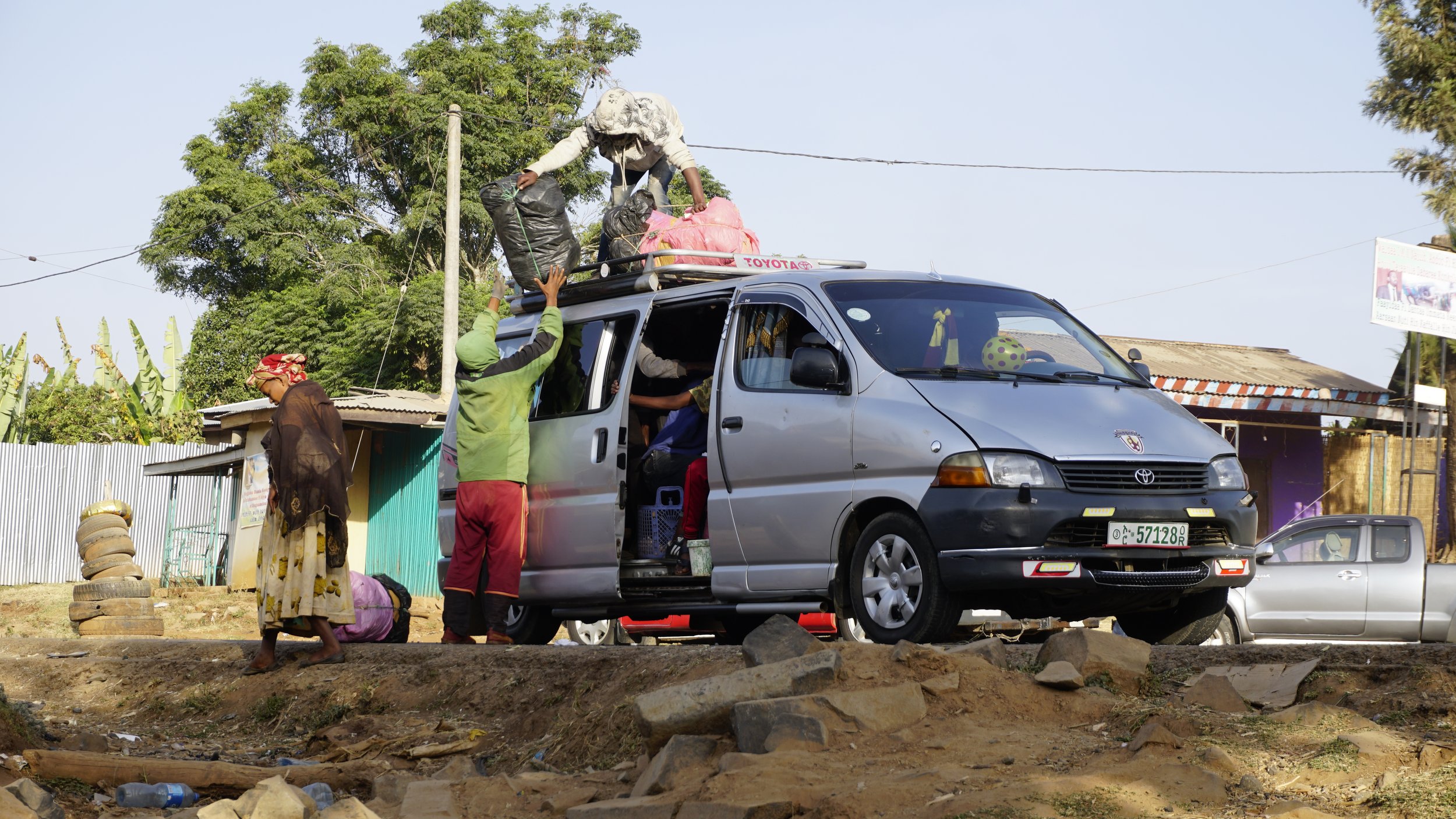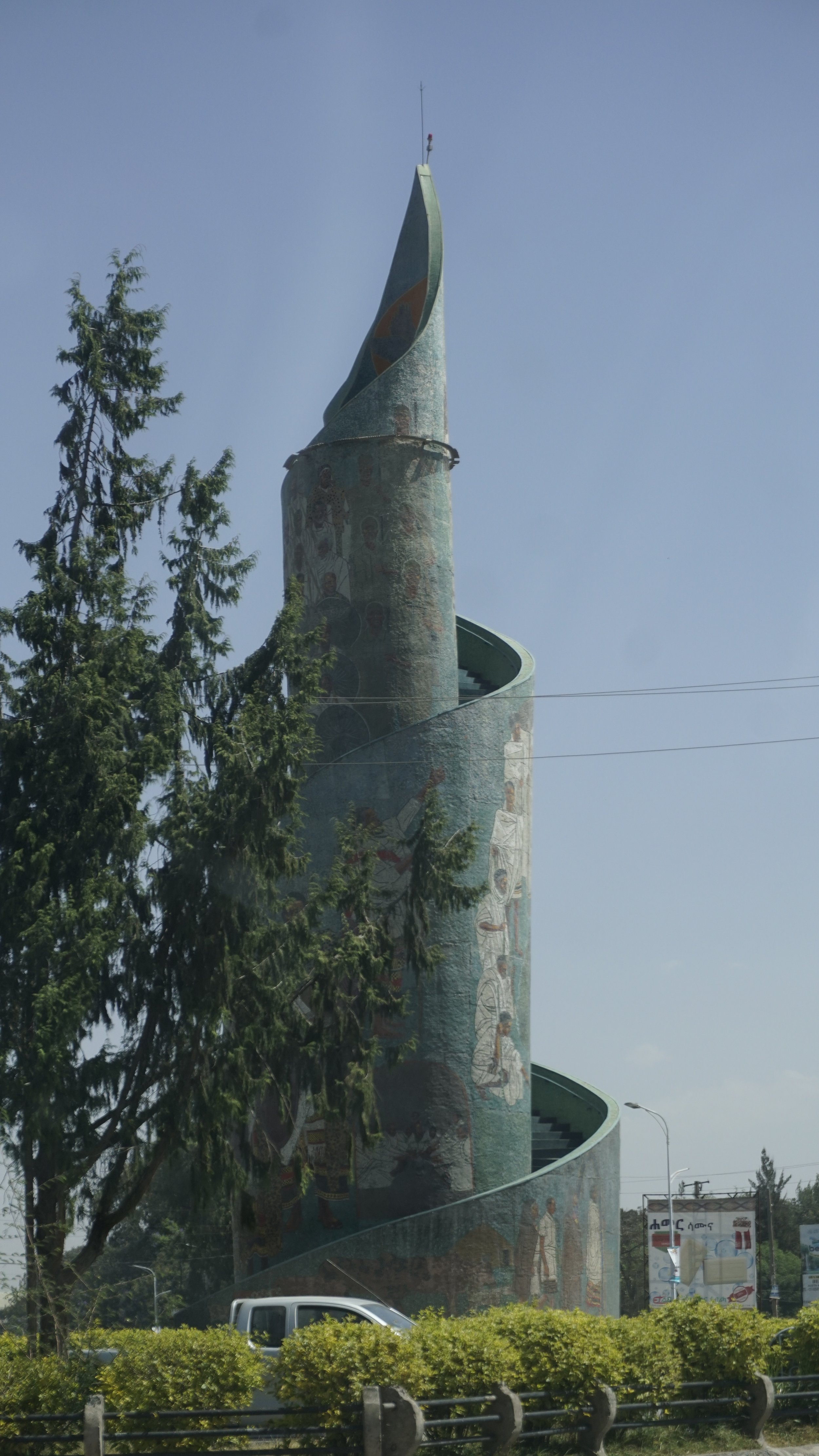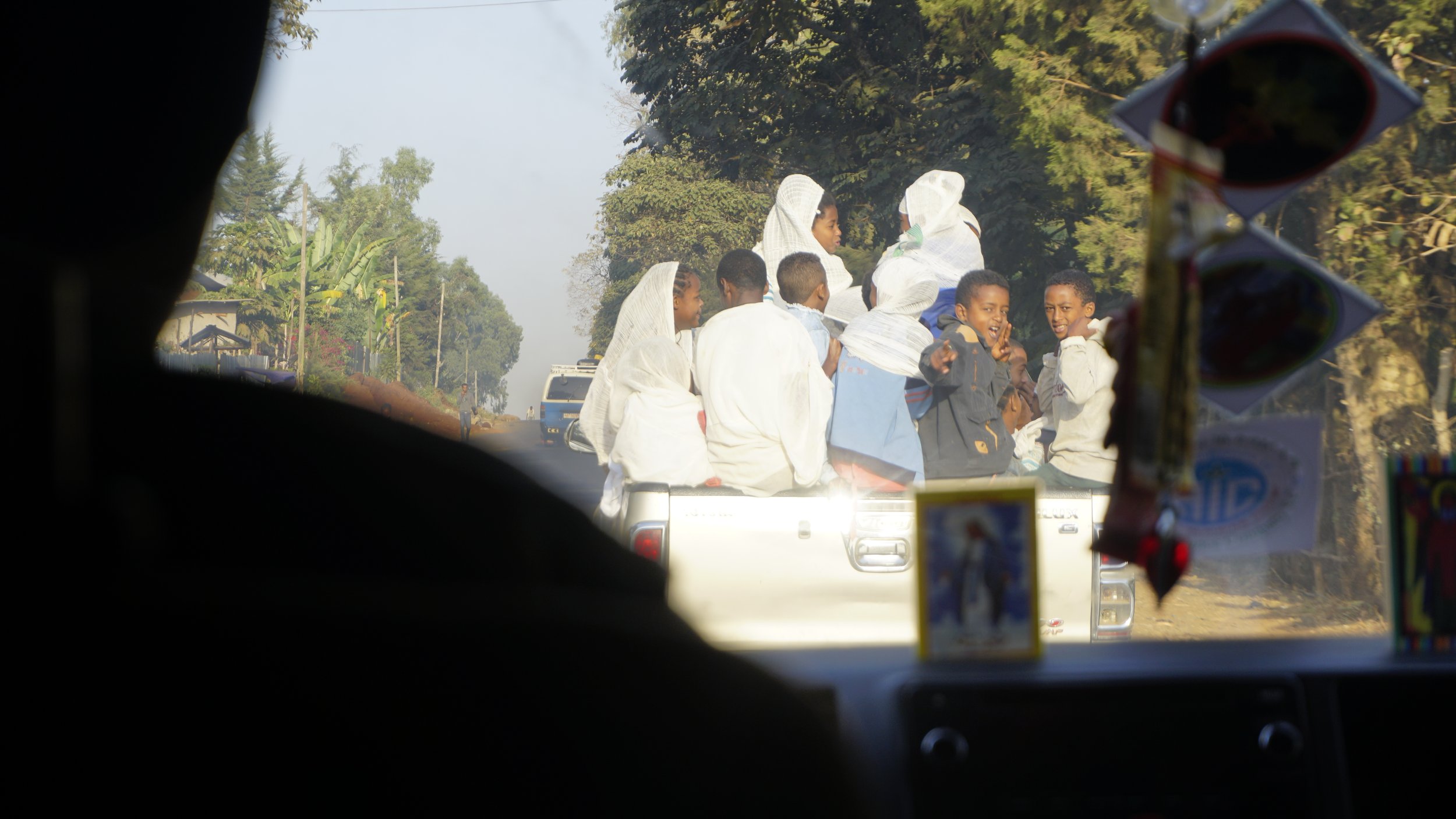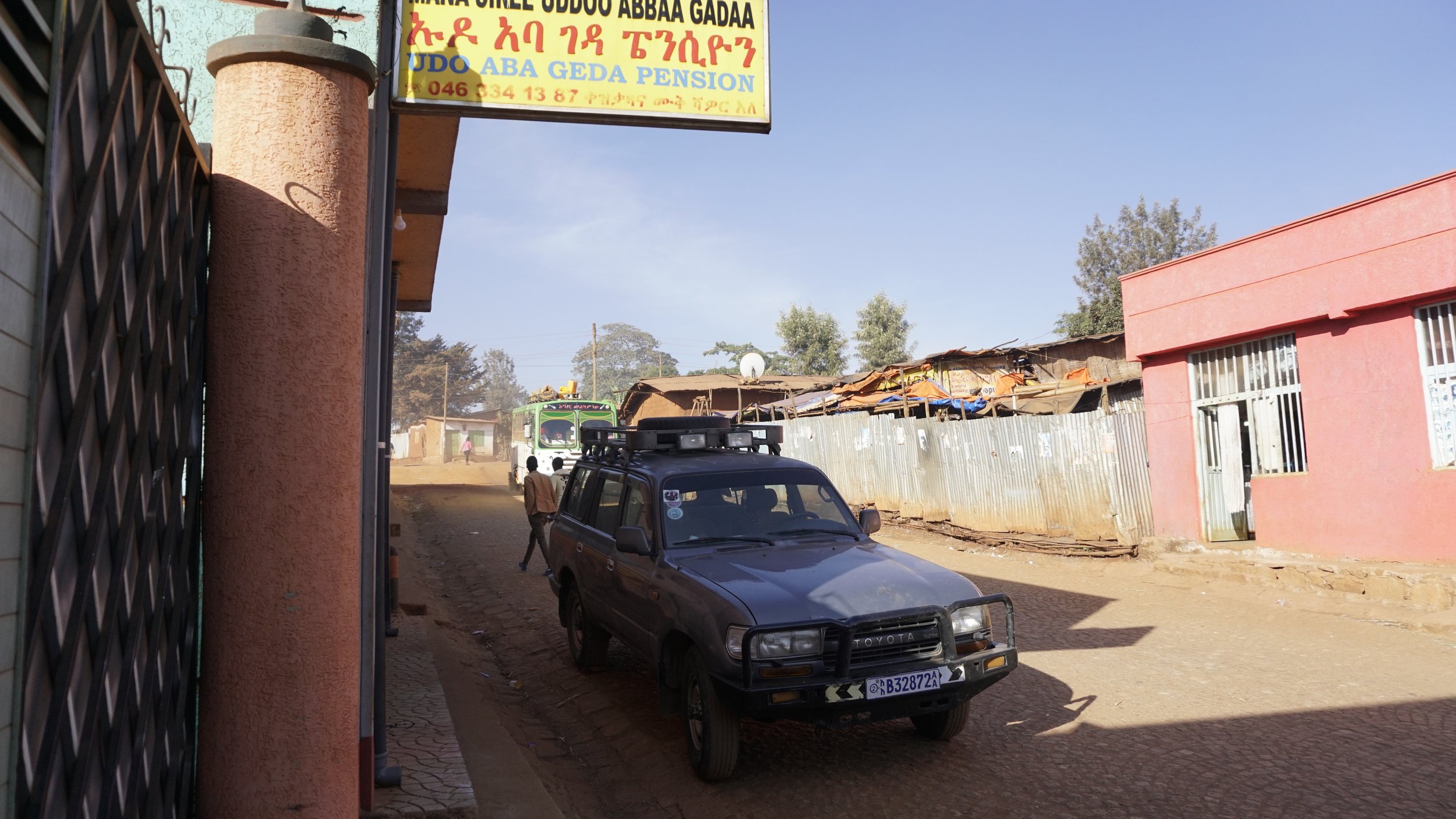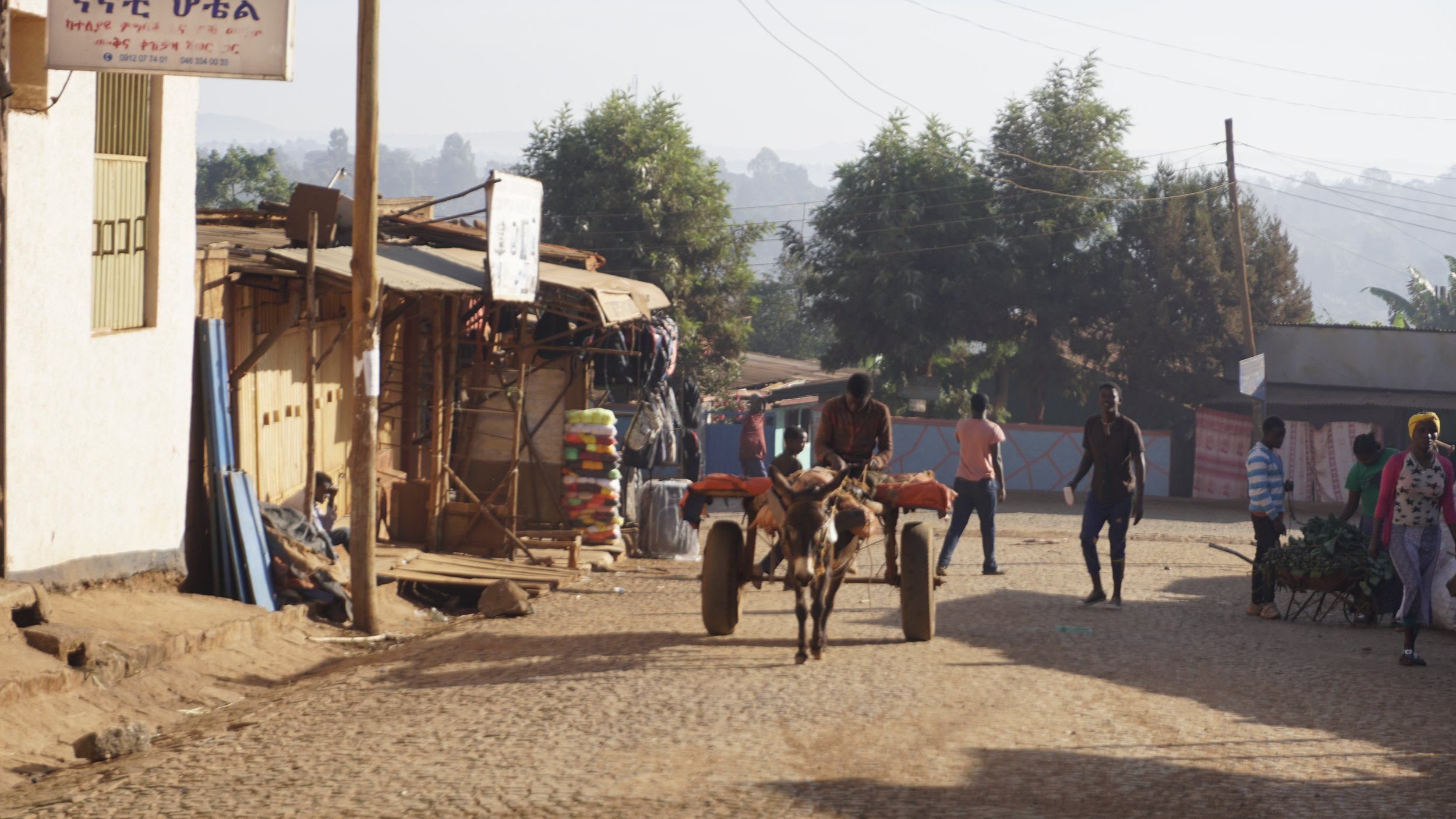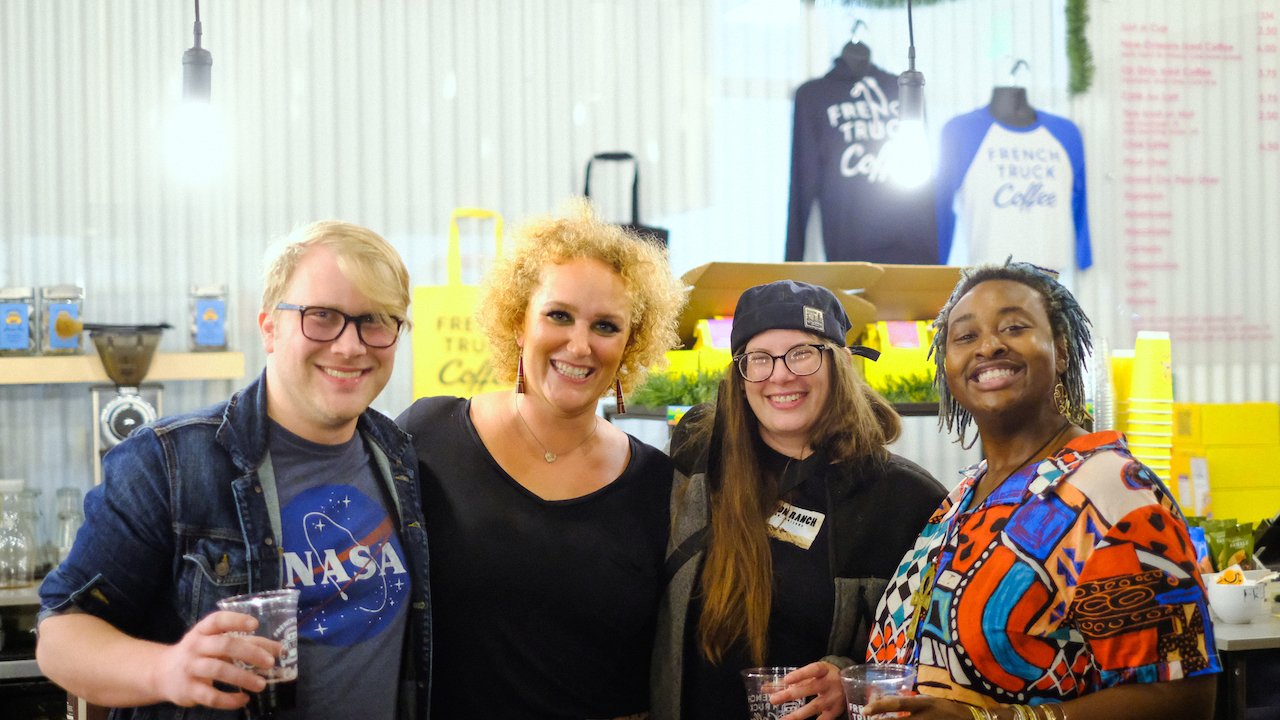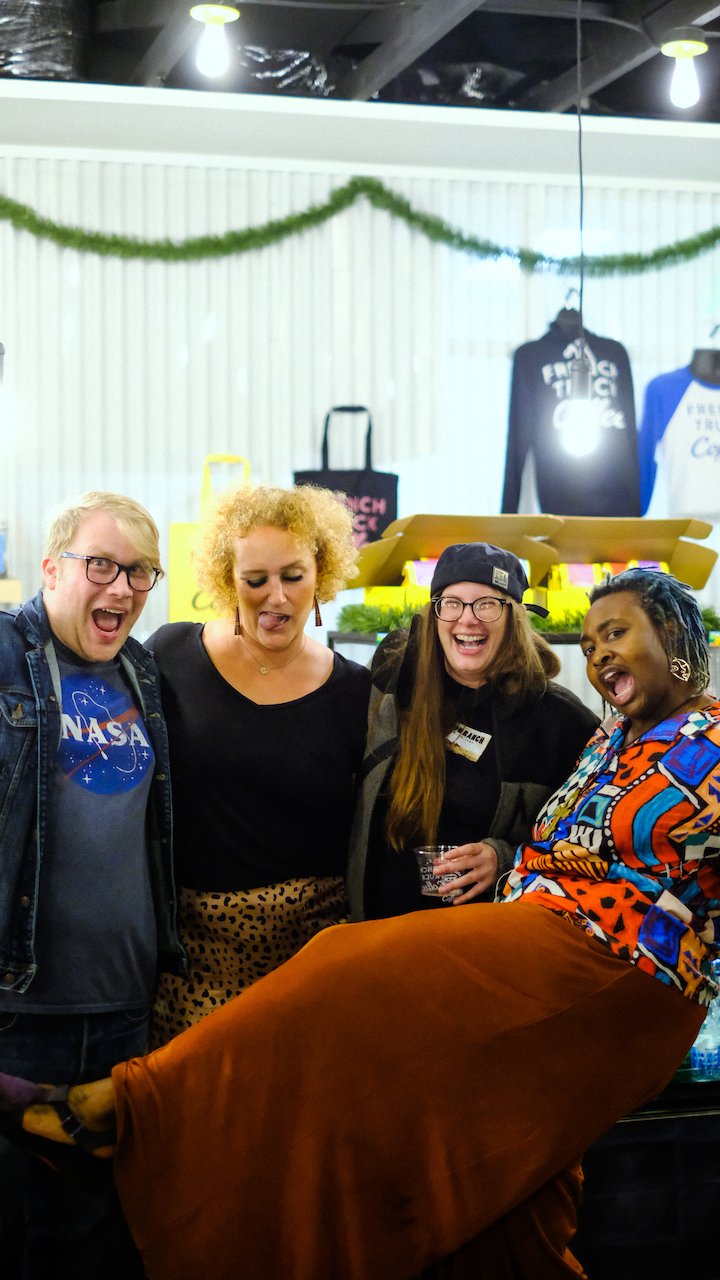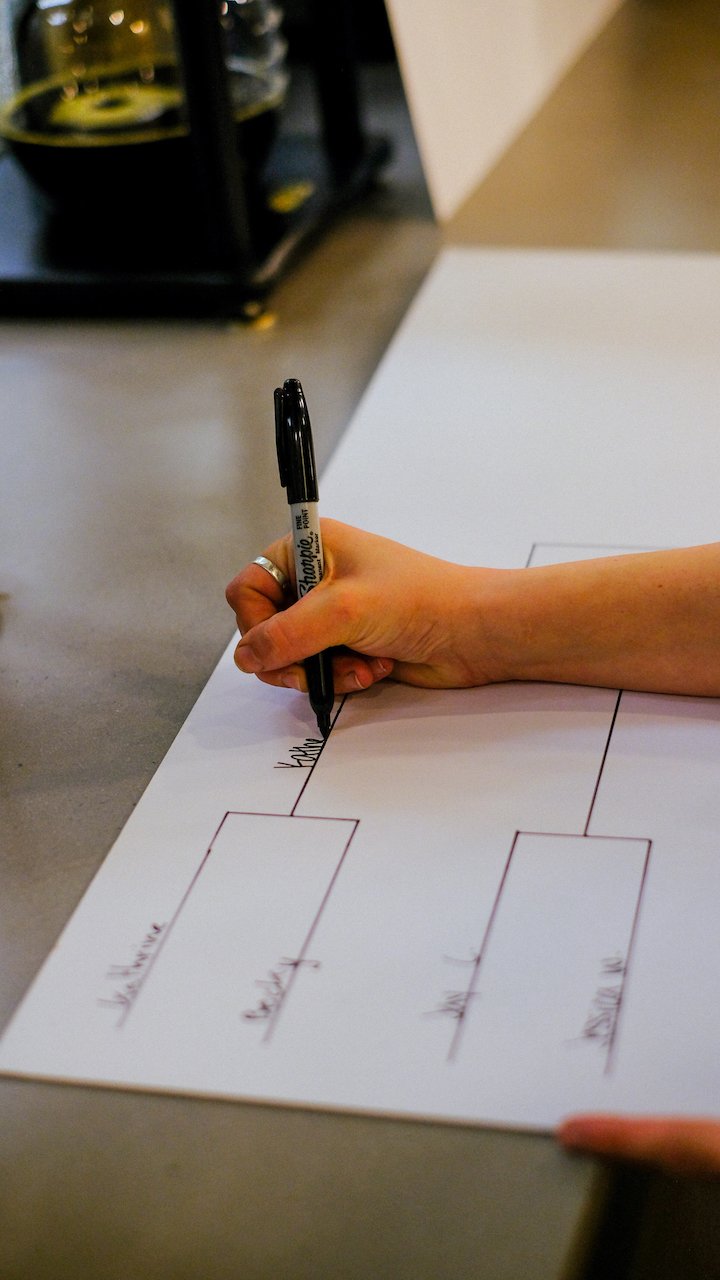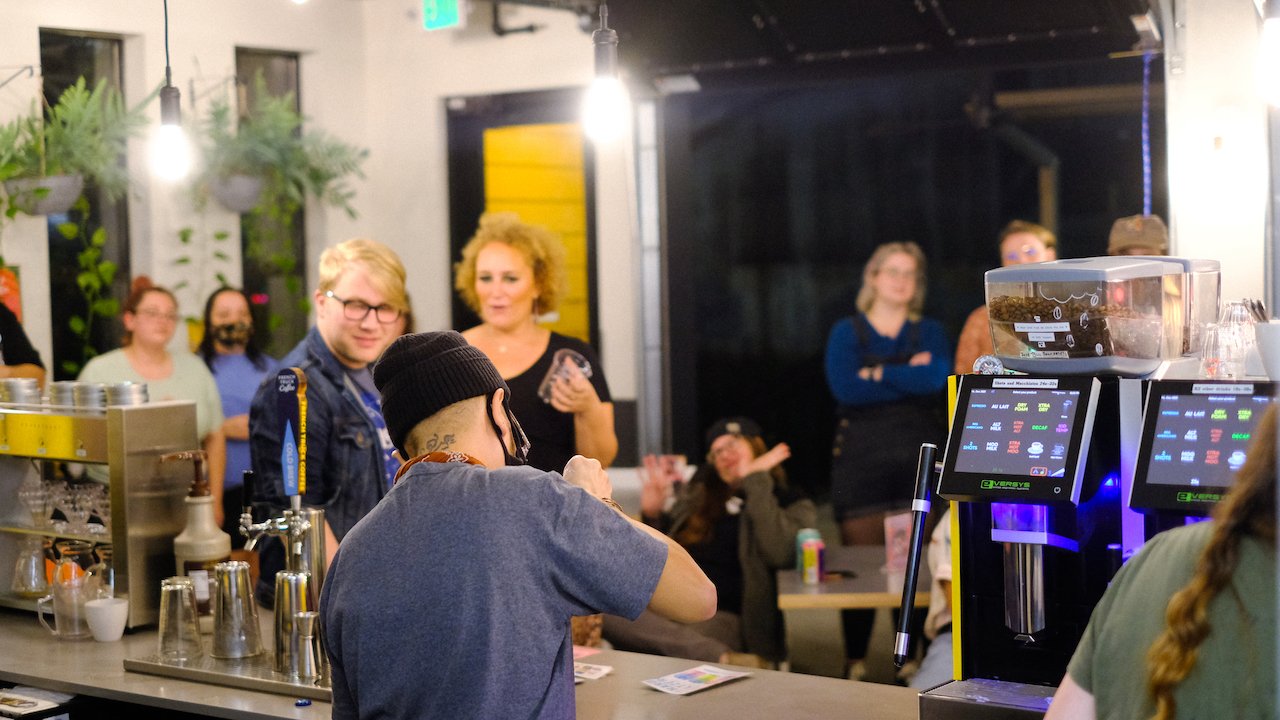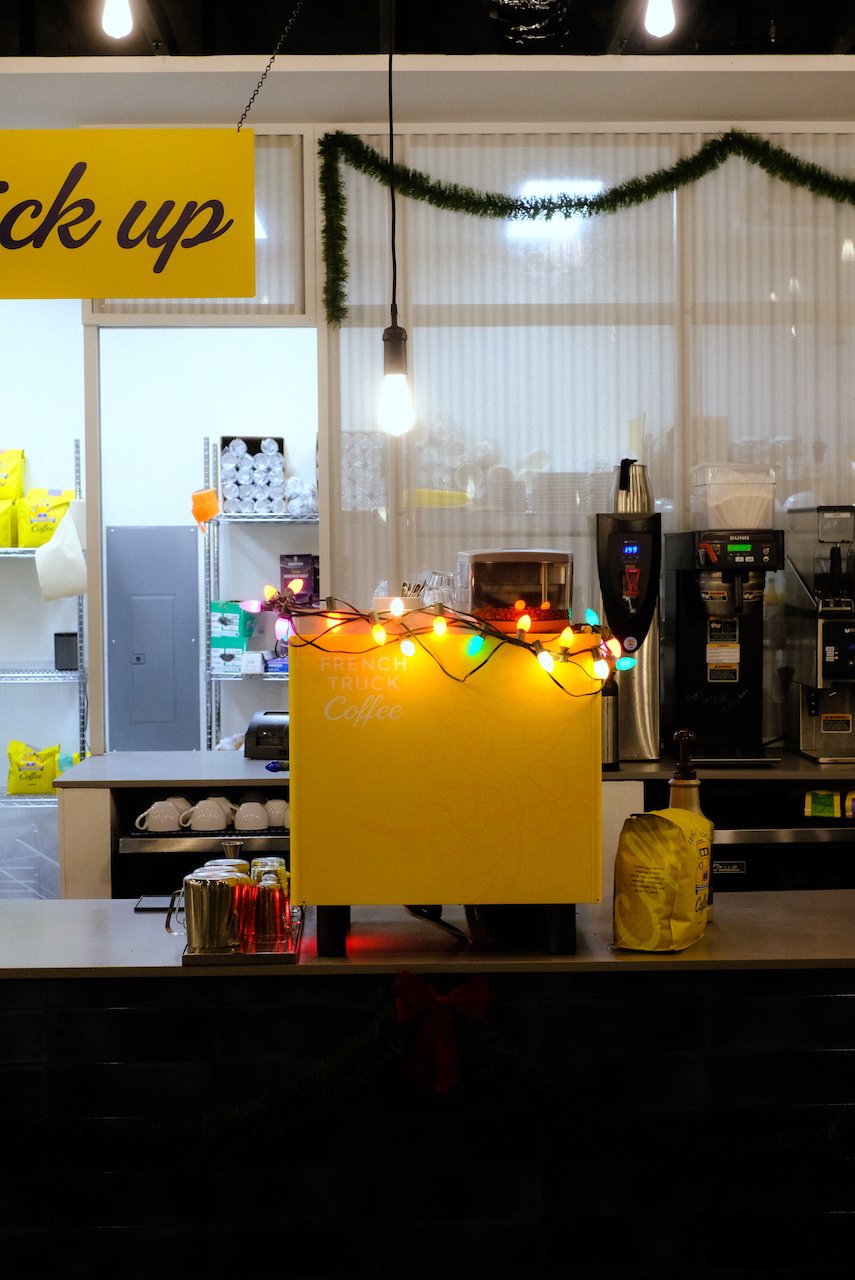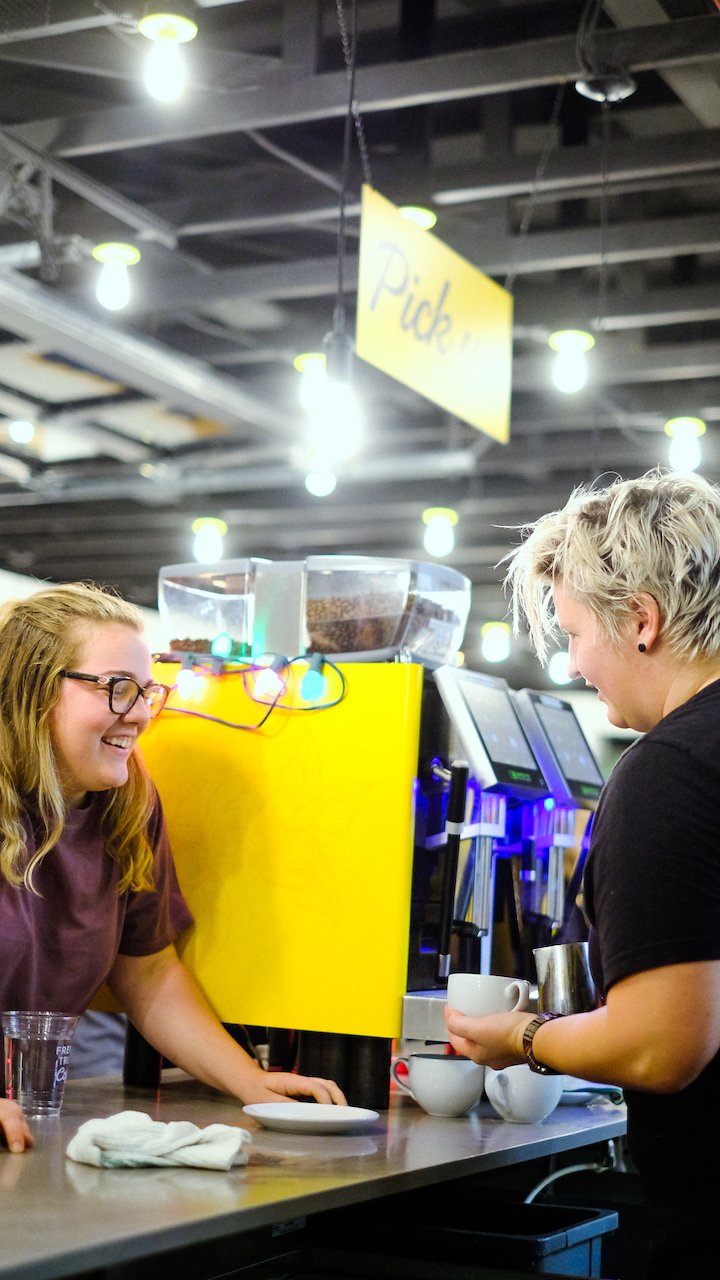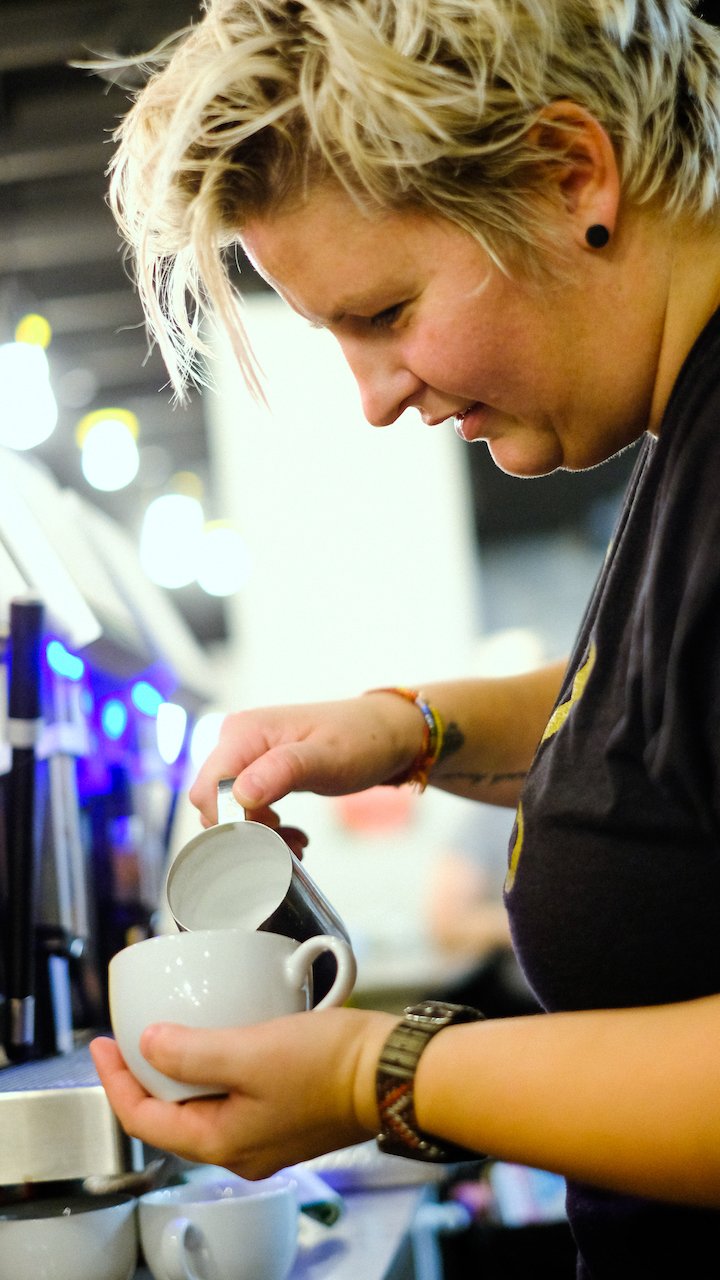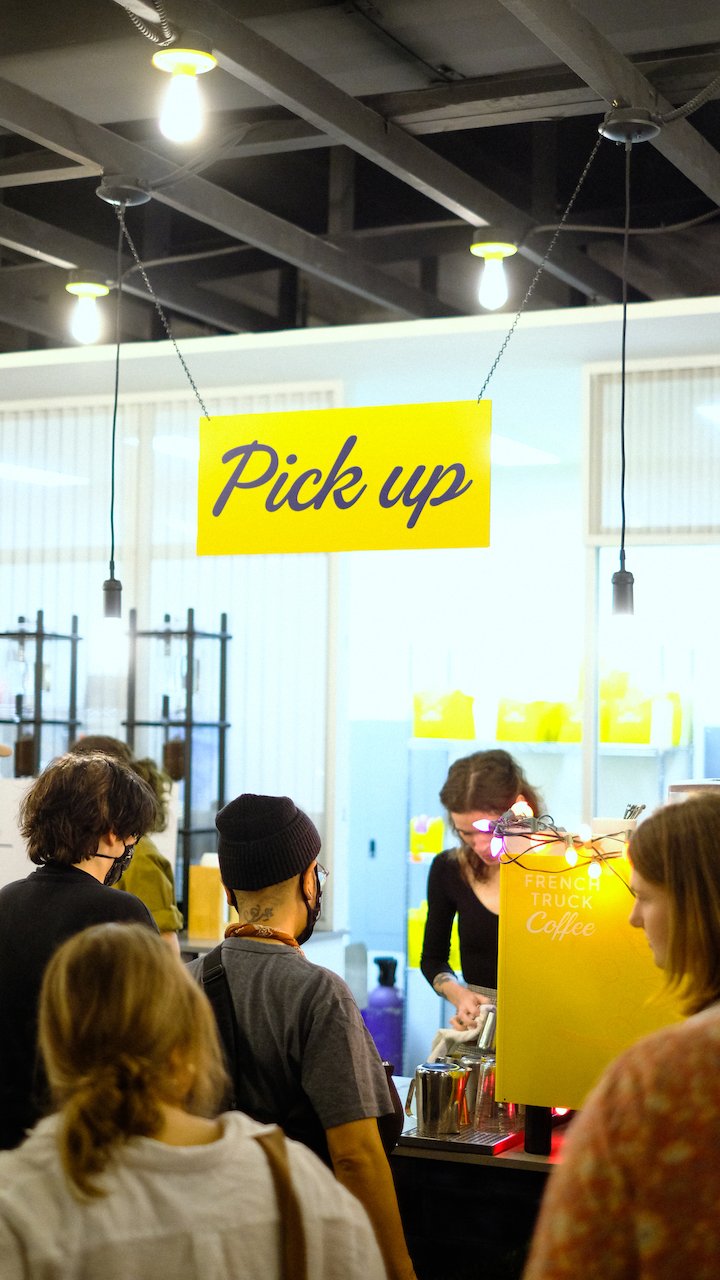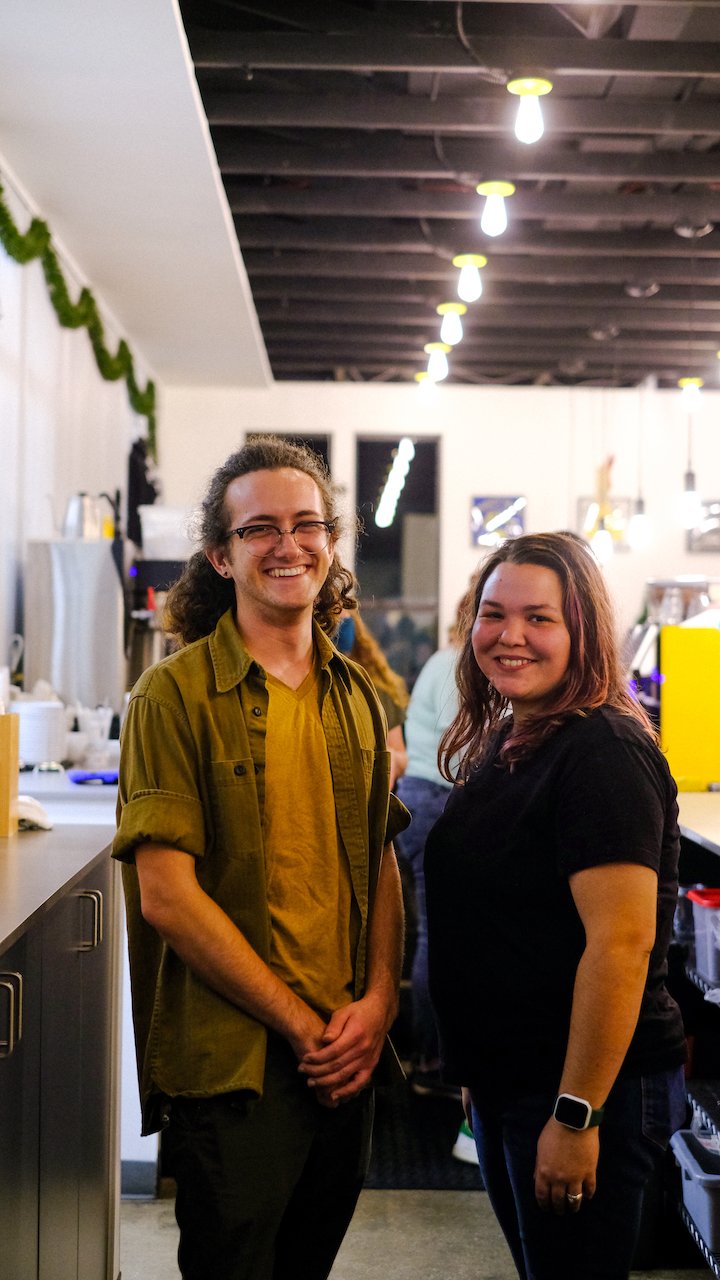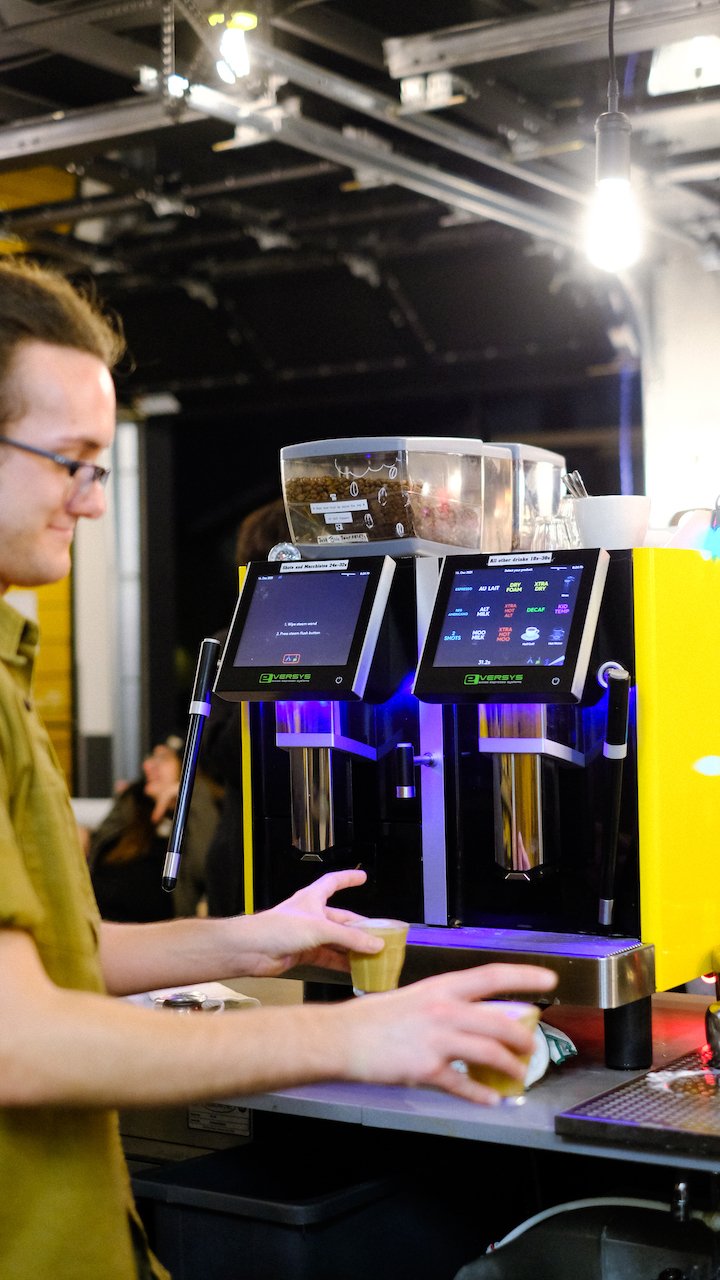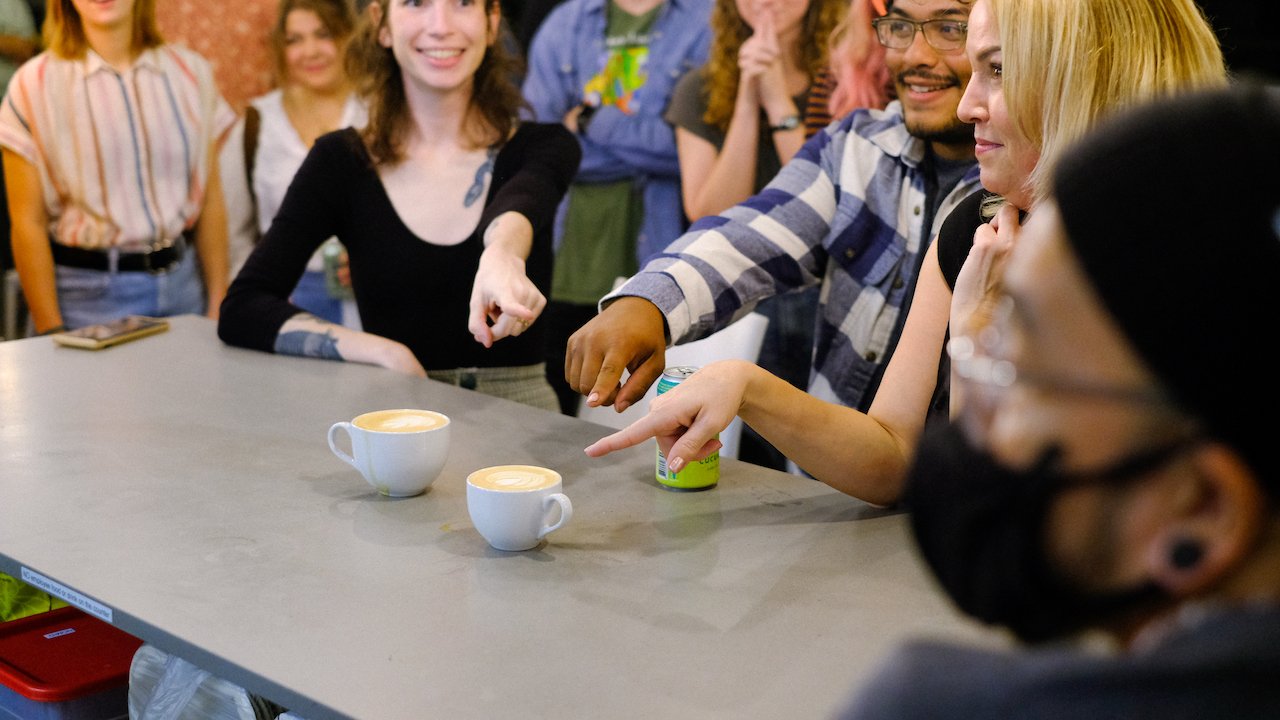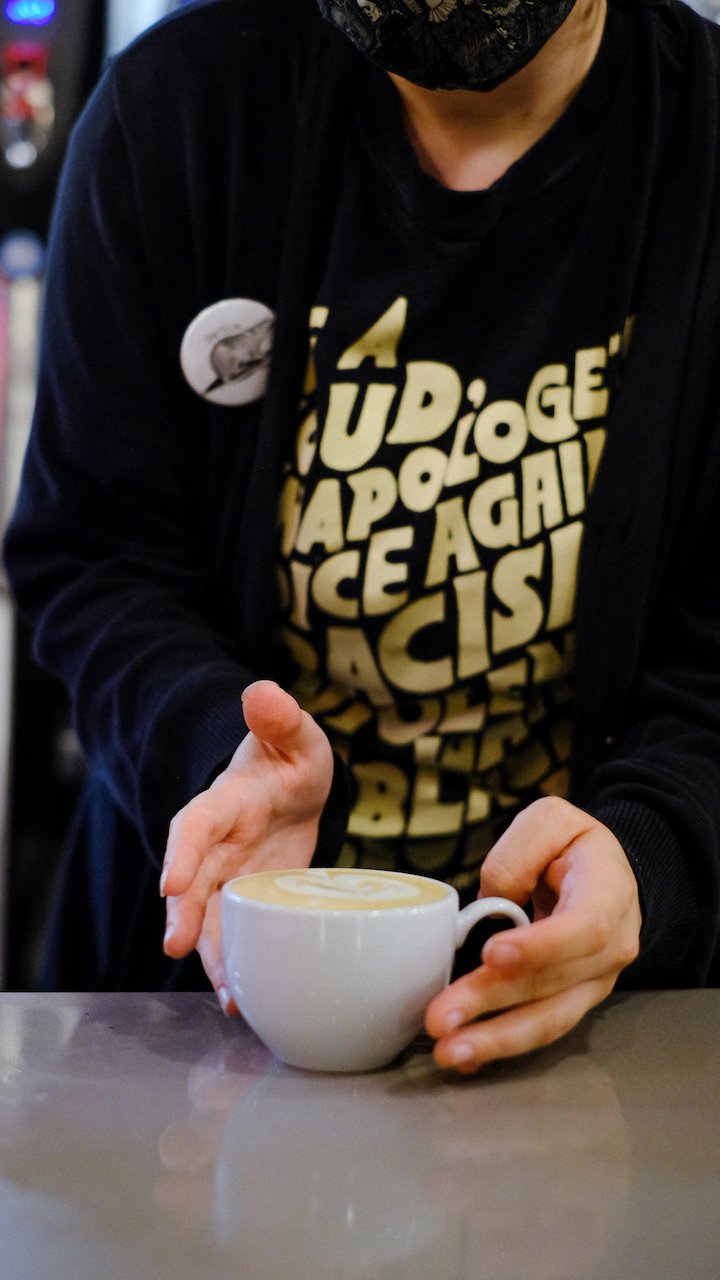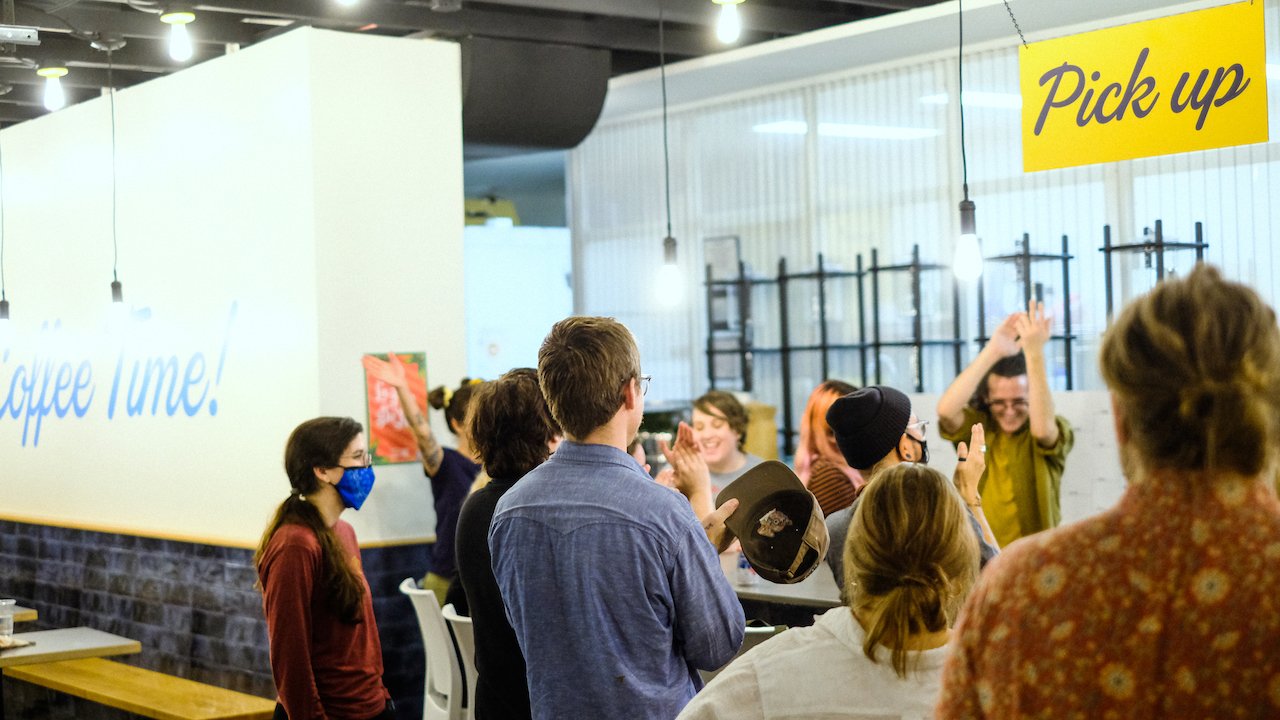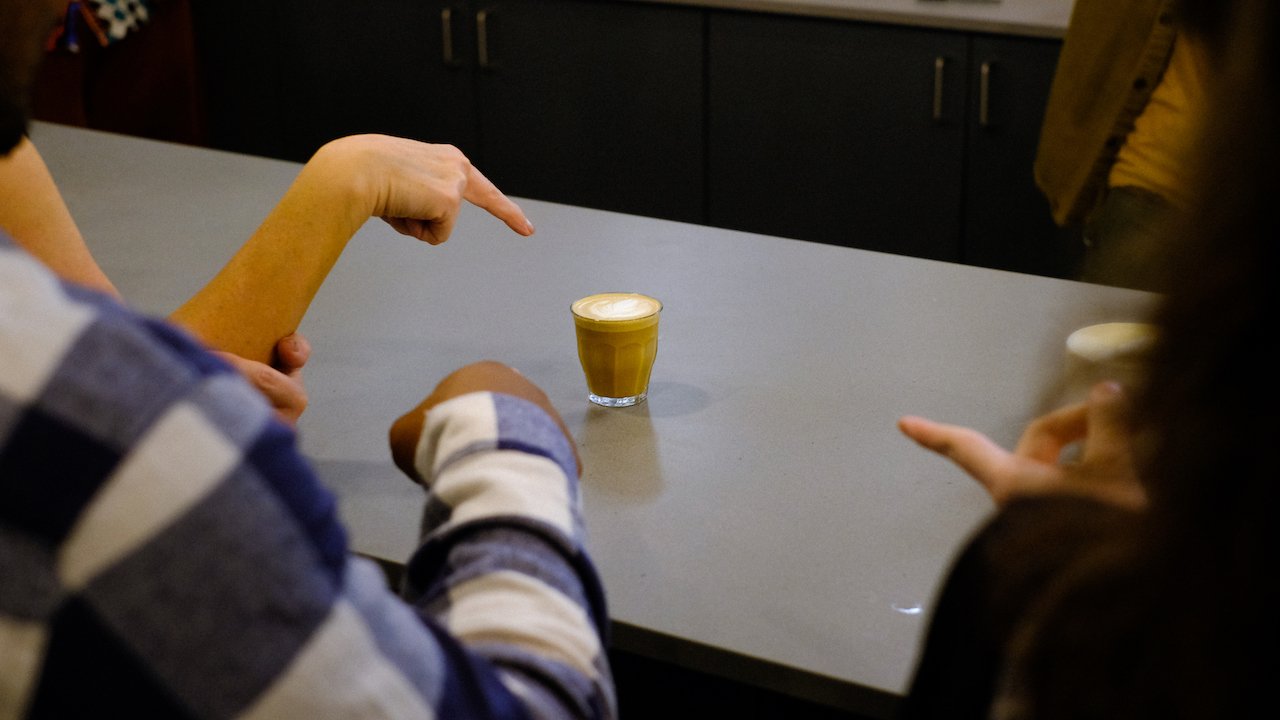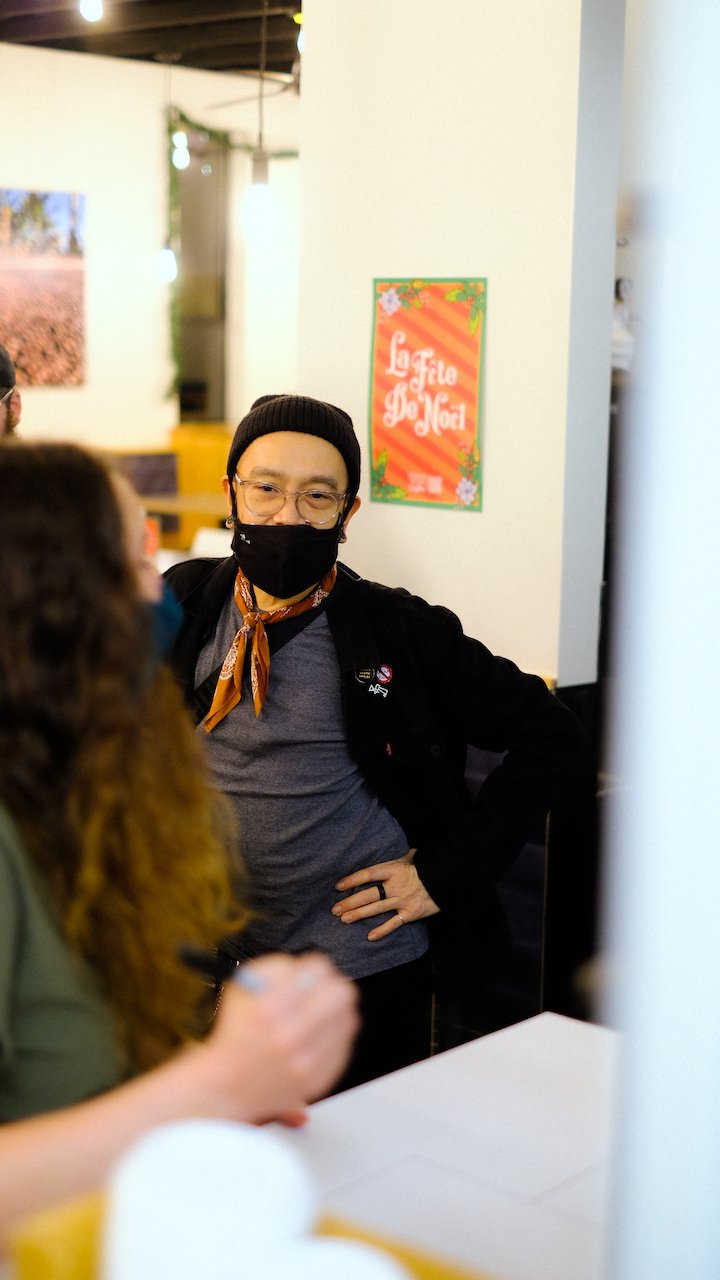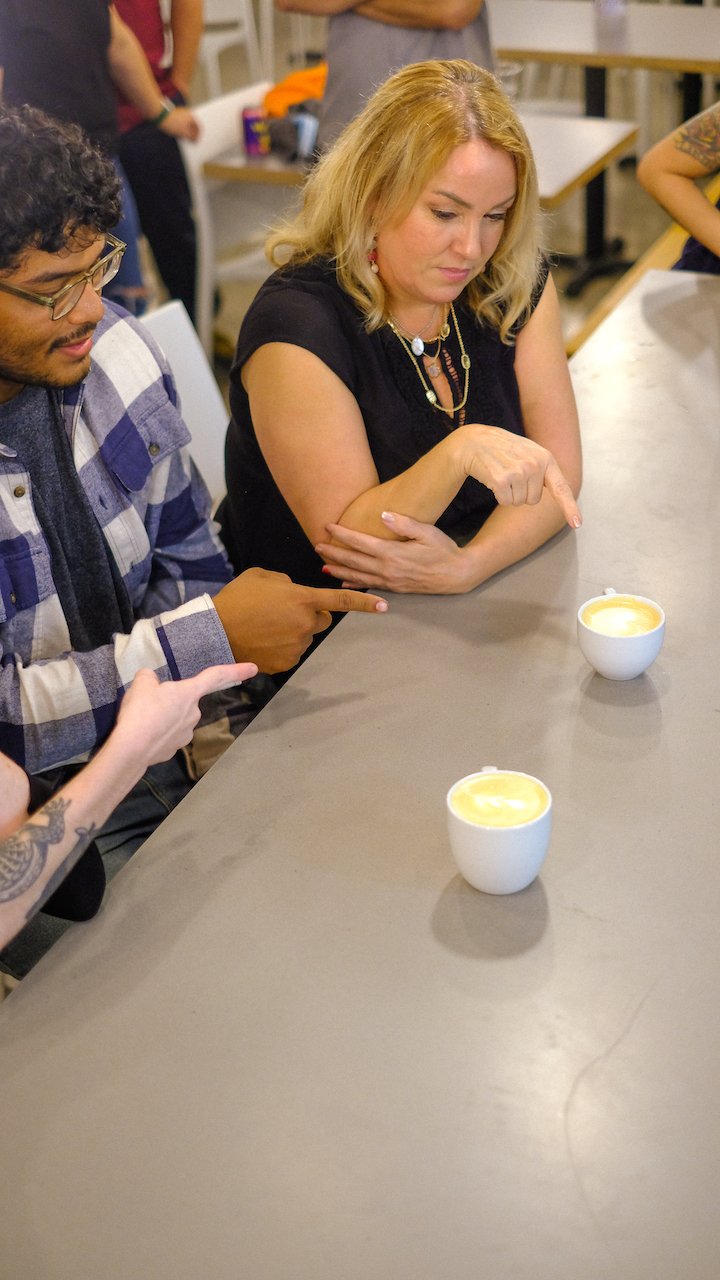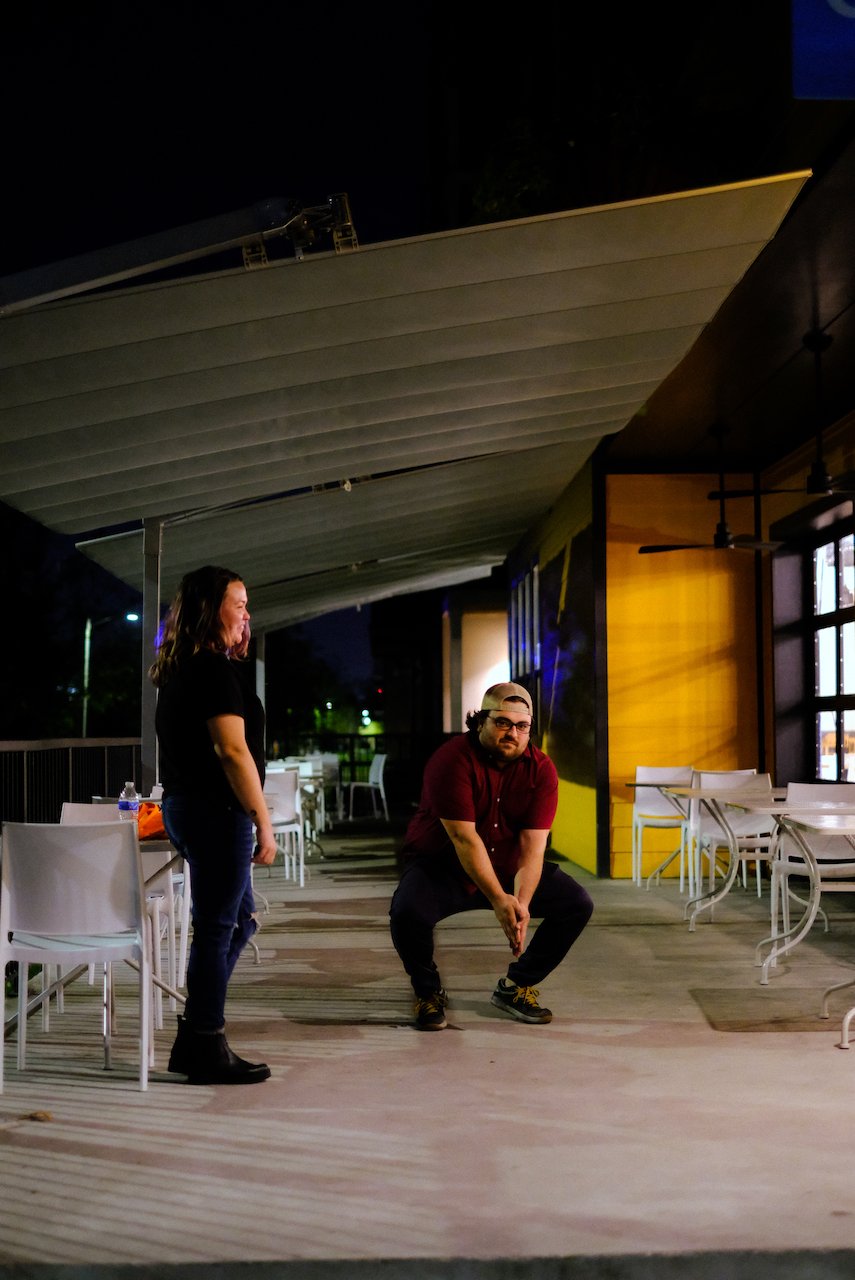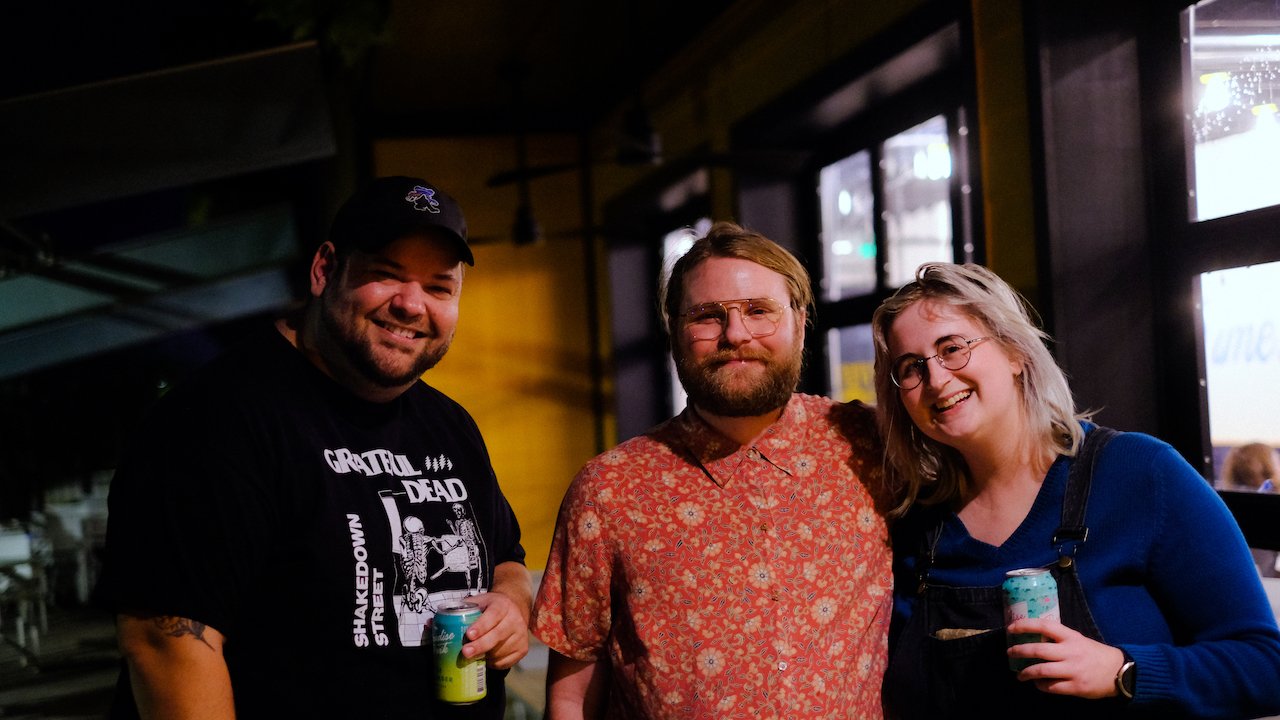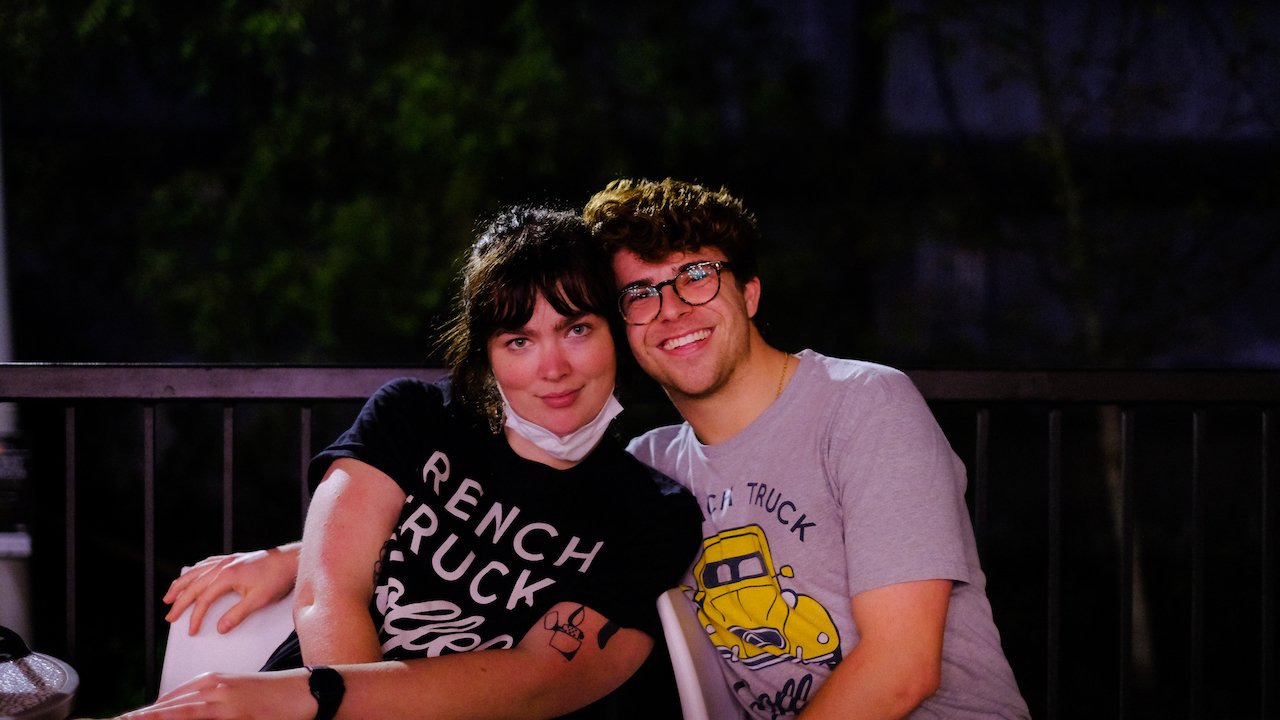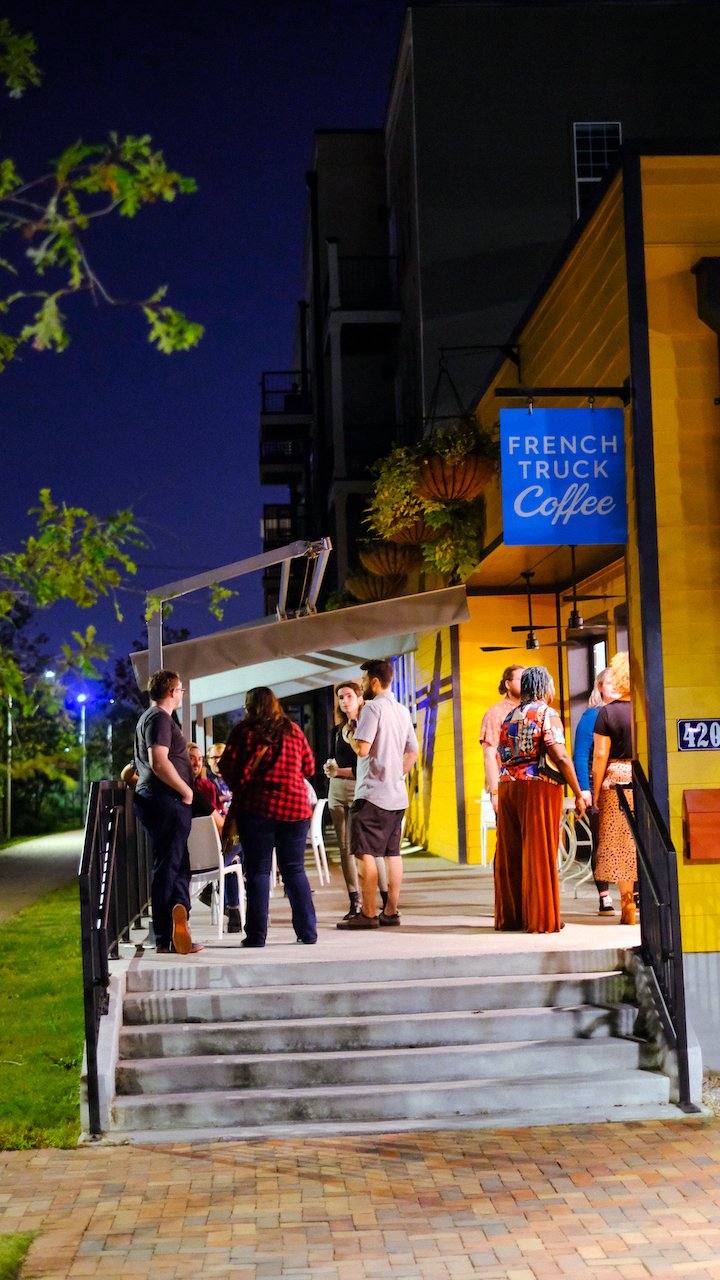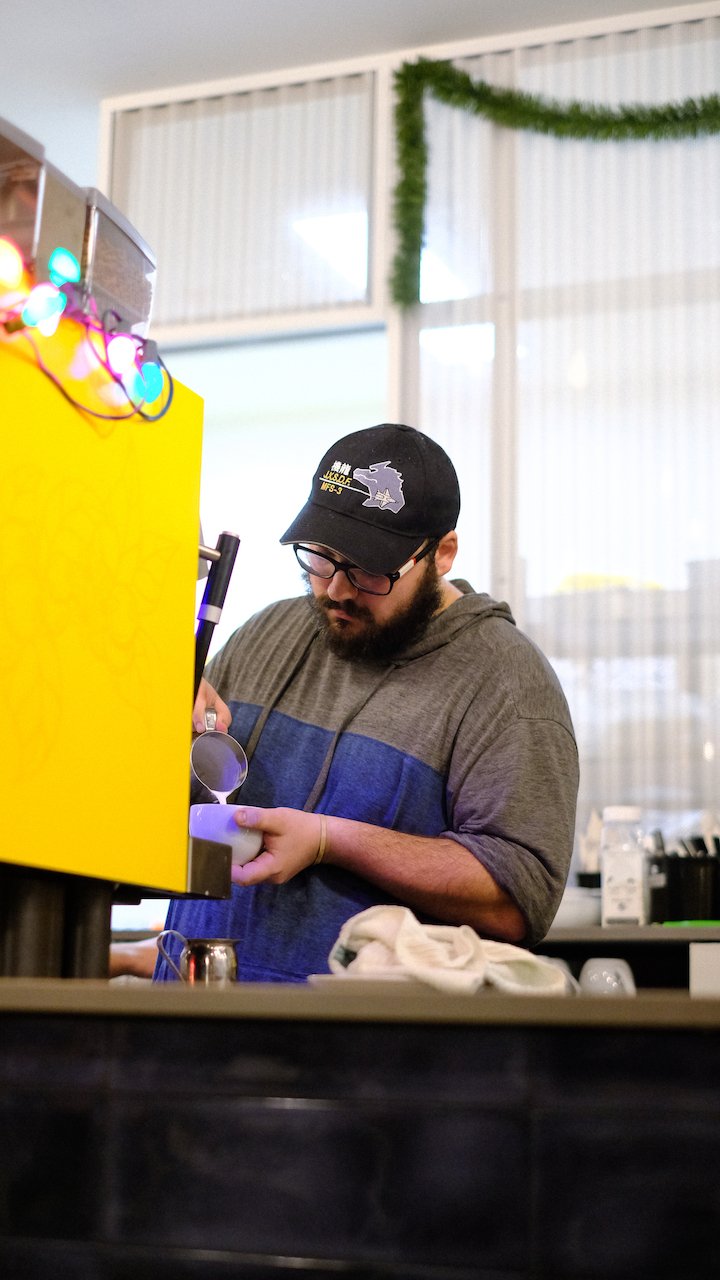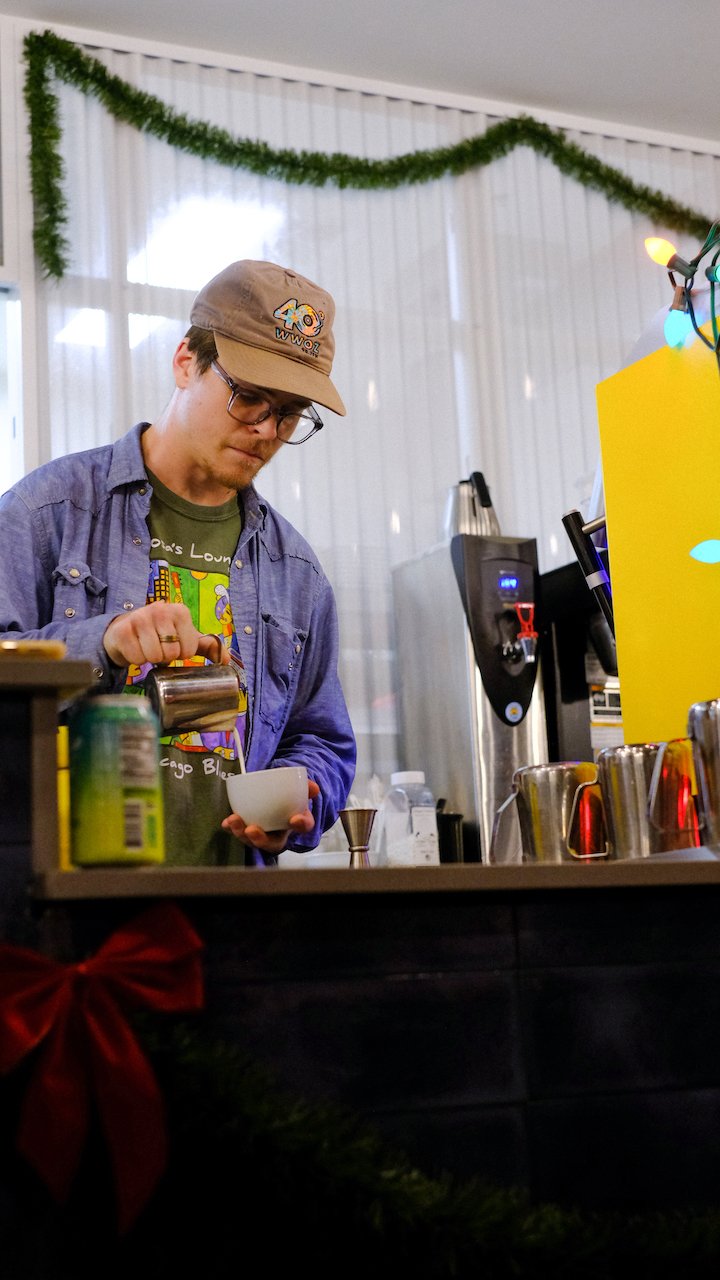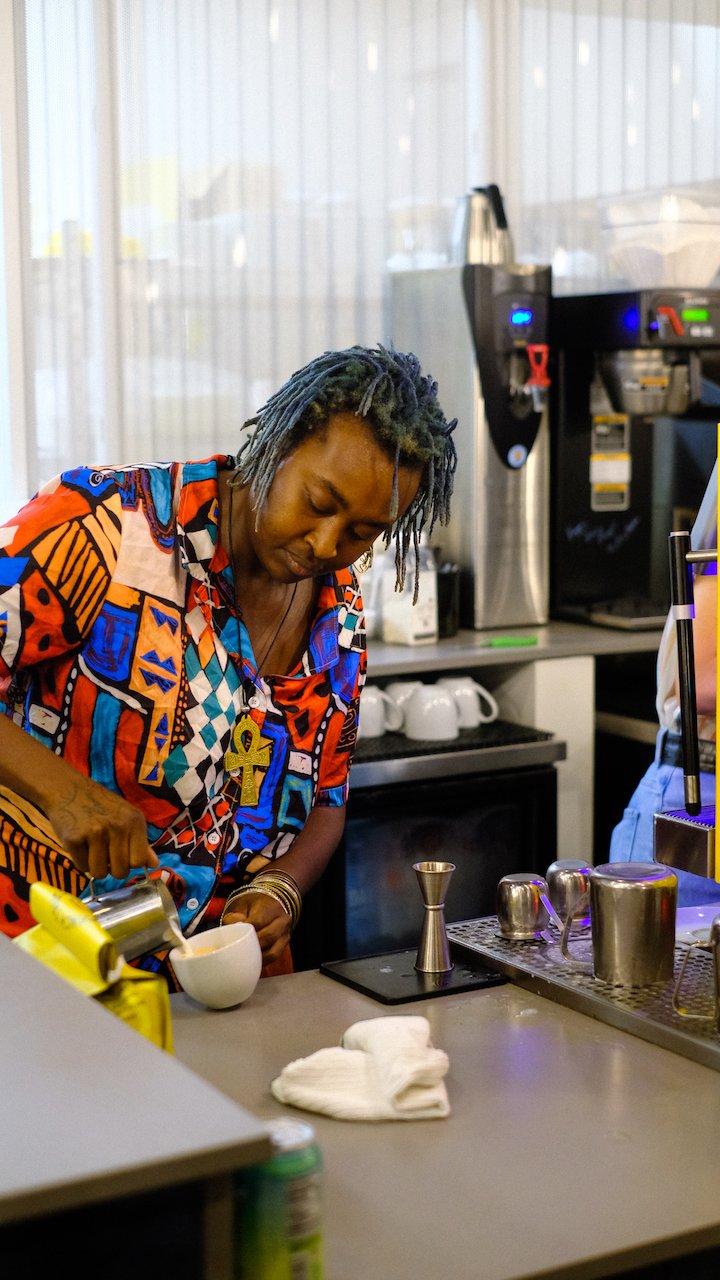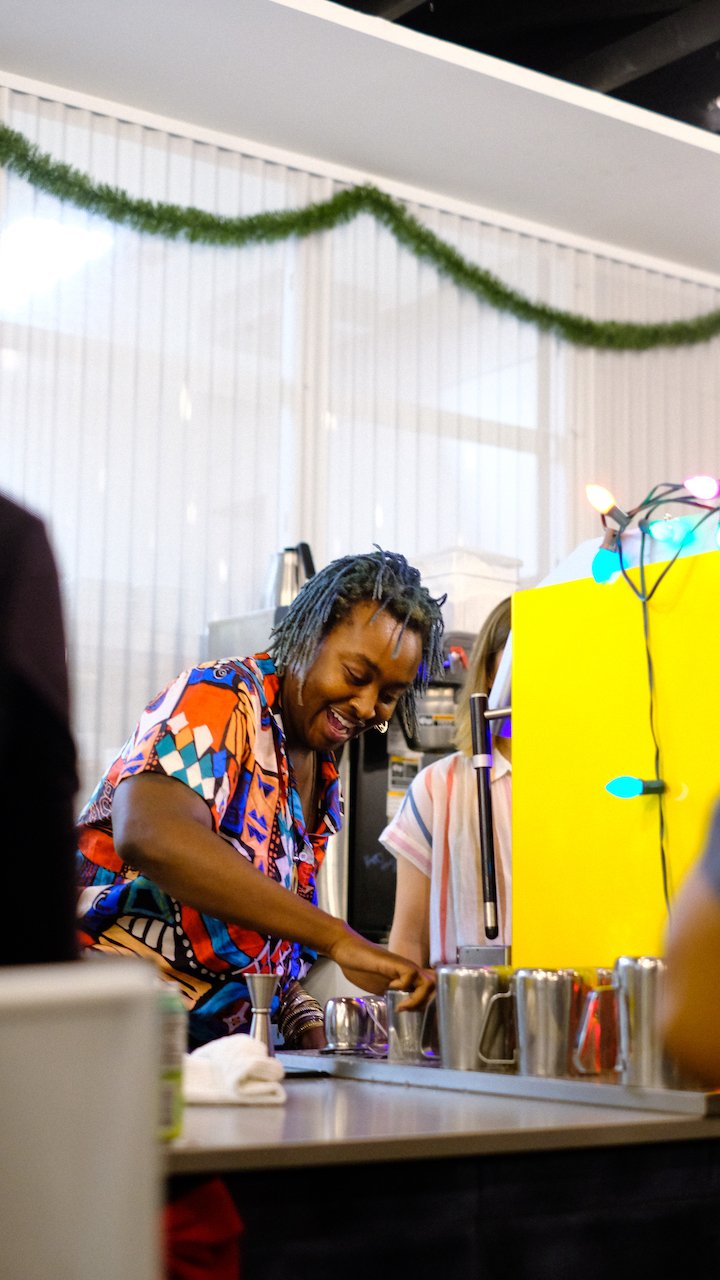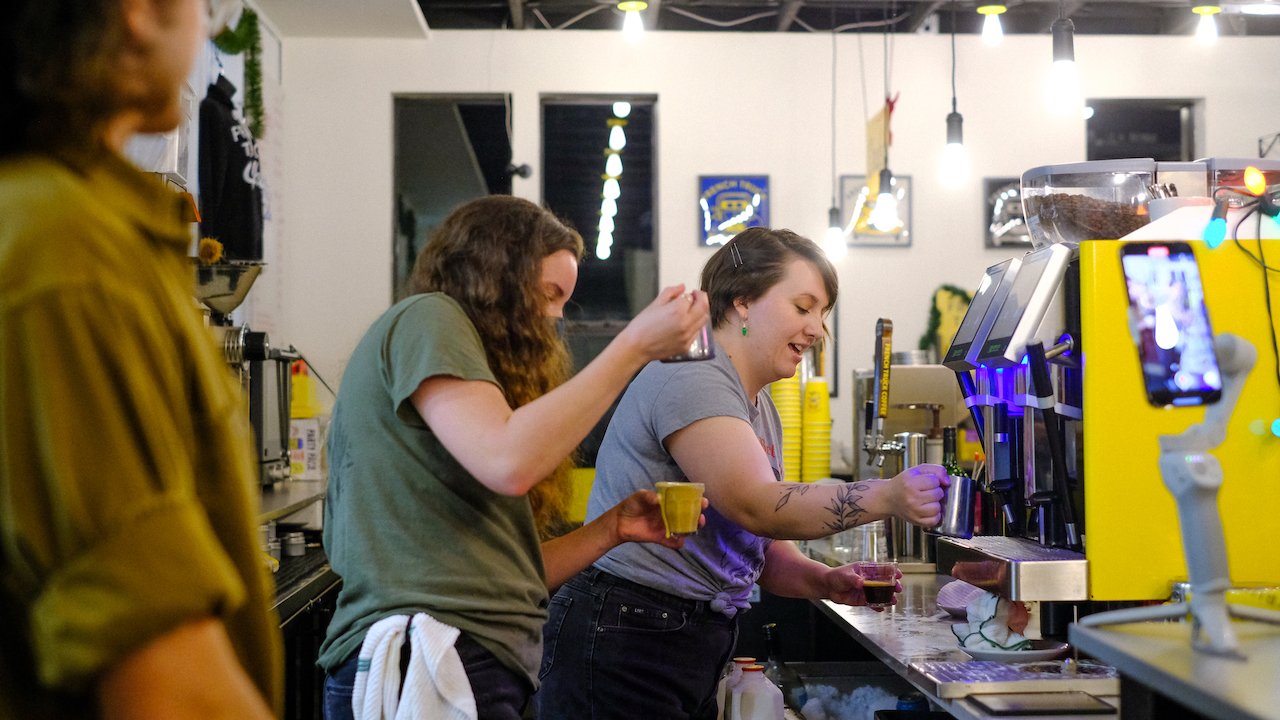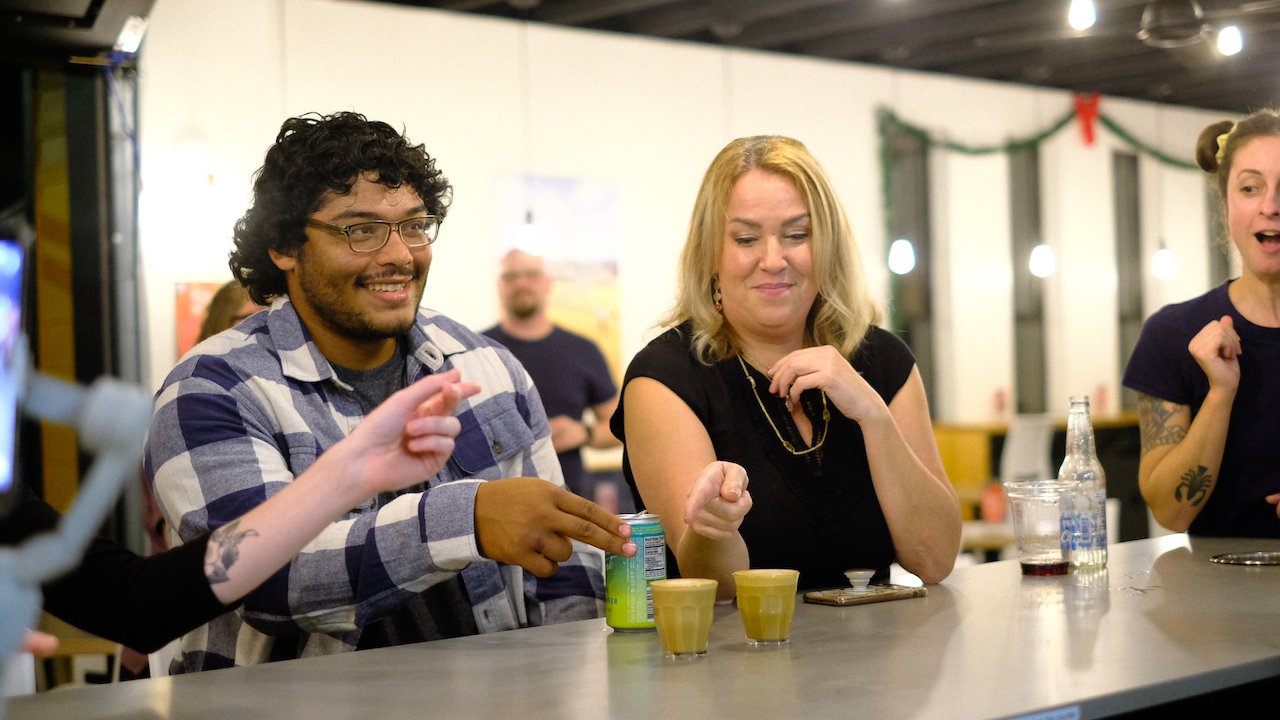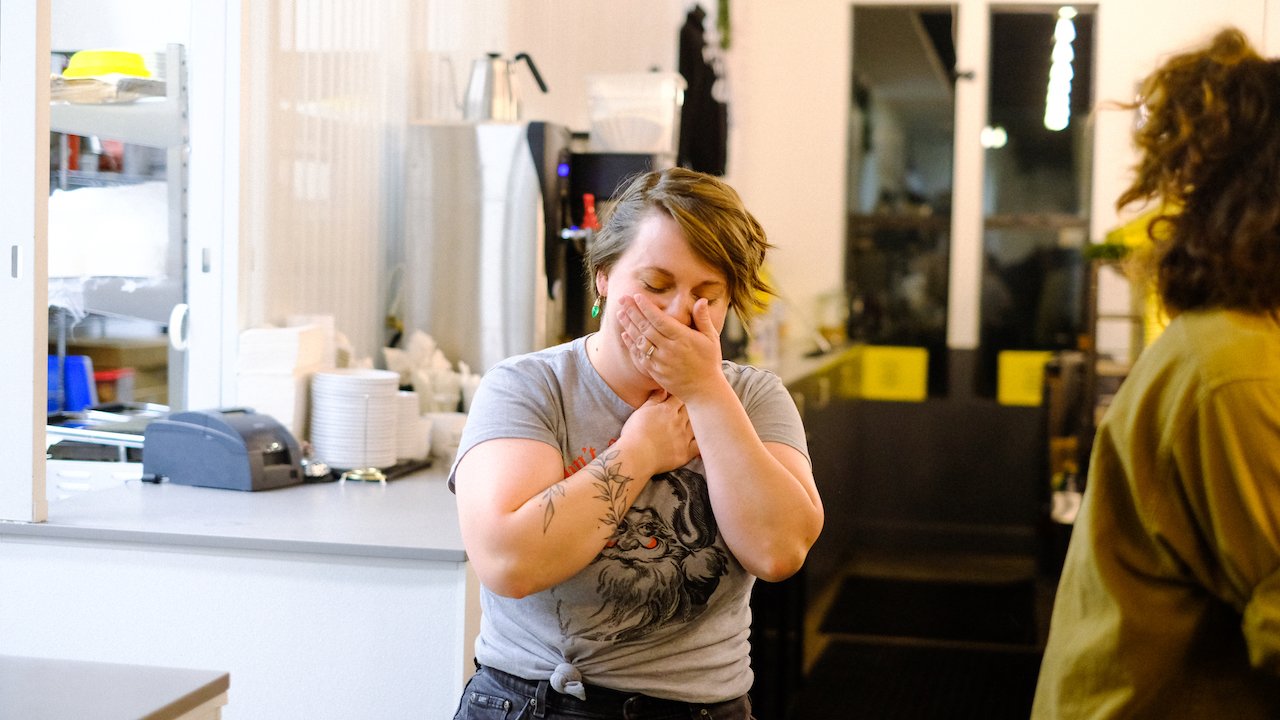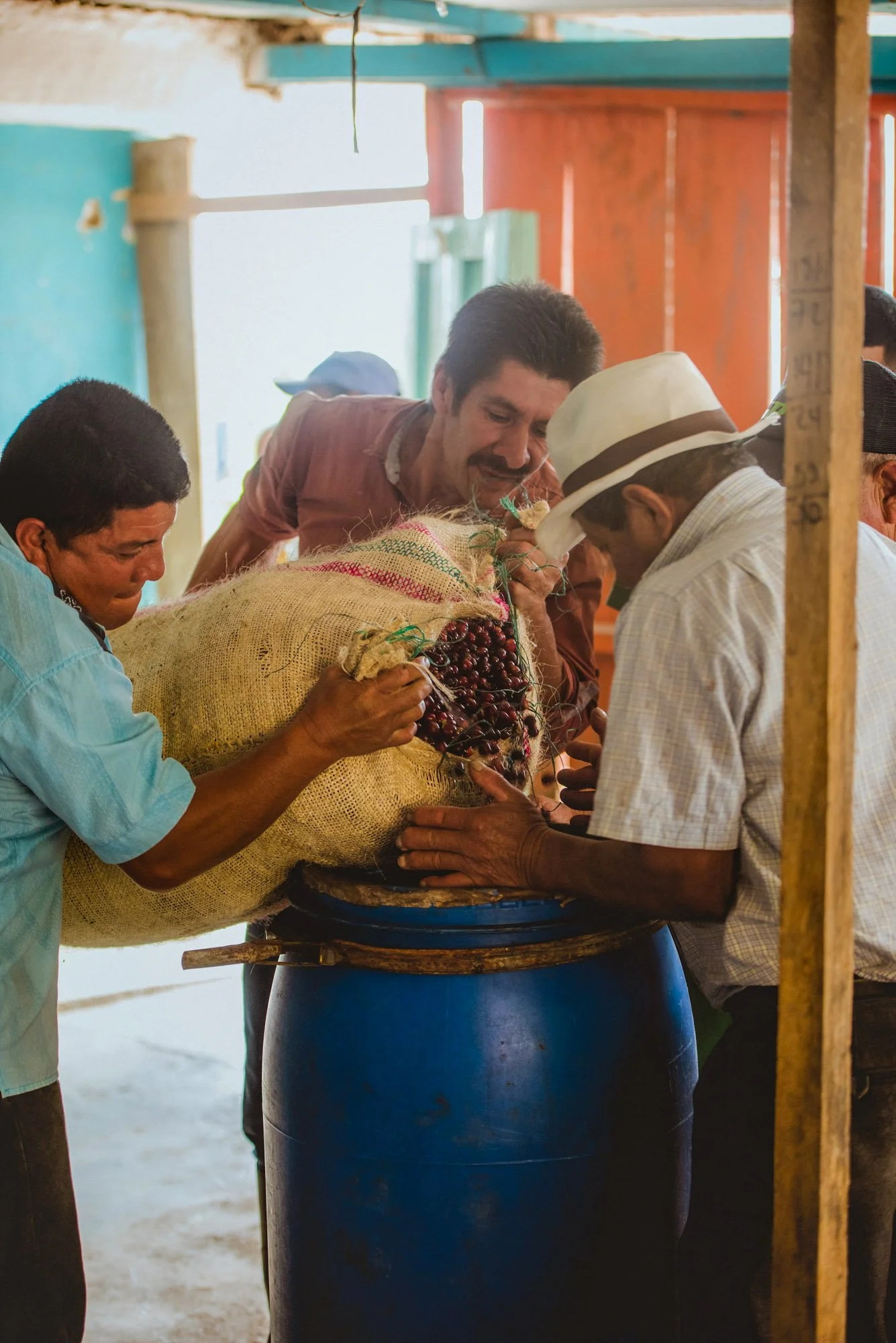BIG CHIEF 2023
Mardi Gras is early this year, and with that news it means we can celebrate it with our seasonal Big Chief offering! This year the Big Chief blend consists of a natural process Ethiopian, a natural process Brazil, and a washed Colombian. Three of our favorite origins! blend. We are really excited to offer this unique, spirited blend to pair with the Mardi Gras season. As in years past, we will be donating $1 of every bag sold to a local non-profit organization. Not only do we get to enjoy this delicious coffee with everyone, but it also goes to a really good cause.
“JUICY BERRY, ALMOND, DRIED HIBISCUS”
This year we are working with local contemporary artist Demond Melancon, who is the Big Chief of the Young Seminole Hunters tribe. His beadwork is amazingly intricate and his work has been exhibited in museums across London, Miami, Brooklyn, and New Orleans. Many of Melancon’s works honor Black subjects historically excluded from the artistic canon, often reflecting untold stories to remind viewers of their interwoven shared ancestries and diasporic histories.
He is a very talented artist and has chosen Feed the Second Line as the non-profit that we will be donating to.
Feed the Second Line is a non-profit organization dedicated to supporting the culture bearers of New Orleans. They seek to build a more equitable city by creating opportunities for the people that make it a vibrant place. They provide general support for those who make our city a culturally rich place. Their definition of culture bearer is broad and inclusive of a wide range of creative practices, both formal and informal all of which make New Orleans a magical place to live and visit.
“We believe it helps fight food-insecurity and poverty. So far we have supported 137 of our city’s culture bearers with “Food Love” - $200,000 worth of groceries!
On our job-creation work - we have helped create over $500,000 worth of gig-work opportunities for 107 musicians, 18 Second Line club members, 19 baby dolls, 31 Mardi Gras Indians... the folks who make our city’s culture.”
Sourcing 2022 : A Look Back
First and foremost we want to say THANK YOU!
2022 was another wild ride but without your support none of this would be possible. We truly appreciate all the support whether you are a long time customer or a new to French Truck.
2022 saw a return to normalcy from a coffee sourcing perspective. We were able to get back to traveling and visit our producing friends in Colombia, Peru, and Brazil.
Colombia: Over the past year we have sourced some of the best coffees we have ever come across in Colombia. For our 10th anniversary, we went all out and featured 5 unique coffee varietals all from Colombia! With an emphasis on the unique flavors varietals and processing methods can have on coffees, we were able to see a drastic difference in flavor all within one origin. We are currently still featuring one of the most electric coffees we have ever featured, which is our Grand Cru Sidra from producer Johan Vergara.
Peru: After not being able to travel for a few years we finally made it back to visit our long time friend and producer Gilmer Cordova Mejia and his family. It was a real treat to walk the farm and have lunch with the whole family. They have been busy with improved infrastructure for processing coffee. As well as some exciting new coffee varieties being planted. They are experimenting with naturals as well. This coffee is currently in transit and should be available in January. We cannot wait to share Gilmer's coffee with everyone!
Brazil: We also checked in with one of oldest producing partners in Brazil, Carmo Coffees. They continue to lead the way for specialty coffee in Brazil. Brazilian coffee is a staple component of our New Orleans Dark Roast. We have some really amazing coffee that is on the way, and should be available in early 2023.
We have more delicious coffees on the way, so be sure to look out for that!
Peru Origin Report 2023
We travled back in Cajamarca, Peru! To check in on one of favorite producers, Gilmer Mejia and taste this years harvest.
This is peak season for harvest right now and the coffee is rolling in. Join us along the road every cup of coffee must take.
This is the first of a series of videos that will explore this unique Journey.
These small mountain communities are the heart and soul of Peruvian coffee. Never mind the two days of air travel it takes to get to the sprawling coffee city of Jaen, Peru. @gilmer_cordova farm is another 3-hour drive up and down a slim mountain road. Just past the town of San Francisco and Agua Colorado lies Finca Ecologica.
Colombia Felipe Arcila
Colombia Papayo Grand Cru
Colombia Geisha '22
Mayde in Memphis
Every year Memphians look froward to Memphis in May. With events like the World Championship BBQ Competition, Beale Street Music Festival, and 901 Fest visitors from all over the globe come to celebrate Memphis.
So we created this blend to give you a taste of this city and yet another reason to celebrate things Mayde in Memphis.
CHEERS!!!
Take Paws Rescue Adoption Event
🐶 💛 We're hosting our first puppy pop up and adoption event at our Mid City location on Saturday from 10a-1p! We are very excited to announce our partnership with @takepawsrescue , this will be the first of many events.
“ Take Paws Rescue is a volunteer, foster-based, non-profit rescue group based out of New Orleans, LA. Our rescued animals live with loving foster families until a forever home is found. We have volunteers all over South East Louisiana. Our new Stray Café in New Orleans also helps a few dogs at a time transition from homelessness to loving forever homes through training, socialization, and love. “
-$1 of every NOLA Iced Coffee sale goes to @takepawsrescue
-"Fill the Burlap" Supply Drive. (Top 3 requested items are Adult and puppy food , Puppy pads , Paper towels )
-Citroen Photo/Pet Photo on a donation basis
-Raffle for Pet Illustration $150 value, 100% of raffle ticket proceeds go to
@takepawsrescue
If your are interested in becoming a Foster Home start application process here.
Illustrations by @oarossi.art
10 Year Anniversary
Festin’ is back!!
We are so excited to finally be approaching a proper festival season. Festin’ at home was fun, but nothing beats the real thing.
With all the live music festival schedules set to get under way, we can’t wait to share this blend with everyone. The original idea for this blend is that it is bright and juicy to match the vibe of the festival season. As we move out of carnival season, we wanted to celebrate the change in the weather and the sun coming out!
As in years past the blend consists of fresh crop Colombia and Peru. The Colombia portion is a collection of lots from various small farmers in the Huila region. This coffee is great, with a really nice sugary acidity, notes of apple, caramel, and a creamy mouthfeel. The Peru aspect of the blend is also a collection of small lots from various small farmers in the Chirinos region in Cajamarca. Sharing notes of caramel with Colombia, Peru also has flavors of orange and cocoa.
This year’s Festin’ Playlist has been curated by local artists, John Michael Rouchell and Kate Grace Bauer founders of TheBlueRoom.
About TheBlueRoom: Kate and JM are a creative duo who walk the tight rope of infrastructure and artistry. Kate has taken businesses from boutique agencies to 8-figure-revenue brands and coordinated collaborations with juggernauts like Cle de Peau, Maybelline and Diane von Furstenberg. Featured in Elle, Good Grit and NOLA.com for having a keen eye for color and style, Kate champions the people around her to live up to their full potential. John Michael is a platinum-selling songwriter and producer who has worked with Grammy-nominated artists and Rock-and-Roll Hall of Famers. Alongside a recently completed MBA from Tulane, JM has shepherded deals with major film studios and built creative teams of up to fifty people who work together complimentarily. Kate and JM are very excited to introduce the next chapter of their lives together: The Blue Room. Empowering creativity.
Whether it's Jazzfest, French Quarter Fest, or Bayou Boogaloo there is a ton of live music to see this spring. In the words of our famous radio station WWOZ “Get out there, and support some live, local, music!” (While drinking Festin’ of course) Things like Mardi Gras, and Festival season are what make the culture of New Orleans, so regardless of where you are, this is the perfect blend to sit on your porch and be outside!
Rwanda Origins 2022
RWANDA KININI VILLAGE
This is our second year in a row offering this washed coffee from Rwanda and the Kinini Village. The story behind this coffee and the Kinini village is truly amazing. It is one of the most inspiring stories we have come across in the world of coffee. From a societal standpoint this offering has the most impactful reach of any coffee we have ever purchased. That impact is also geared towards sustainability in a way that is very innovative. It is a reminder that good coffee comes from good people. The coffee is tasting great again this year, as the Kinini Village has shown remarkable consistency from year to year. We are honored to be a part of it for the second year in a row. Below is the original newsletter for some more context on how this project came together.
Rwanda is an origin that we haven't had much experience with, so we wanted to go deep on this origin report. Let's start from the beginning. Like most East African countries (with the exception of Ethiopia), coffee trees were planted by the colonial government in the early 1900’s. Coffee in Europe was booming at this time and in order to supply the growing demand, high yield, low cost varieties were planted all over the country. The intention was for coffee to be a cheap commodity available in abundance. The colonial government held strict mandates on taxes and exports over the farmers, practically enslaving them to the industry.
While coffee became the staple agricultural export by the 1990s, its production, along with the national econom in general, was devastated by the genocide in 1994. Nearly 1 million people were killed in the national tragedy, which stalled development and slowed progress for nearly a decade. In response to this terrible tragedy, targeted programs initiated by the government in the early 2000s encouraged Rwandans to use specialty coffee as one of the means to recover and to create a new agricultural market. A pathway out of poverty. The construction of the first washing station with international support was in 2004, and the country was the first to host a Cup of Excellence auction, bringing international recognition to the “Land of a Thousand Hills'' as a potential producer of exceptional quality.
Today, this tiny country (roughly the size of Maryland), has a reputation for special quality and unique characteristics. We need to also note the incredible story of its development as a specialty-coffee origin since the genocide, which has made Rwanda a stand out among African origins.
It is under this context that we get to zoom in and learn about the amazing story of the Kinini Coffee Cooperative.
Dreamers. That's what everyone called Jacquie Turner and Malcom Clear when they wanted to start a school for children in Eastern Rwanda 10 years ago. Driven by the desire to help the children of the genocide, they made that dream a reality. As they got to know that community they realized that these children needed much more than just education, and consequently they lobbied the local government and international donors to support the construction of a local pharmacy, micro-finance credit institution, and other services to support the community that supports these children. What these two have accomplished for that community would be more than enough for any of us to hang our hat on and rest on our laurels, but they were not satisfied. Jacquie wanted to do more to help her fellow Rwandans.
So she and Malcom started dreaming again, and started to dream this time of coffee. They wanted to find a way to have generational impact on communities without having to continually fundraise money for aid projects. At this time they didn’t know anything about coffee, but they knew that the Rwandan government was supporting a transition towards specialty coffee and wanted to see how far they could leverage that goodwill towards helping a community.
They spent years soliciting advice from experts across the coffee industry and traveled all over Rwanda to look for a community that was interested in such a venture and was conducive for growing good coffee. After countless hours walking around farms with agronomists and soil scientists, they settled on an area just an hour north of Kigali. That is not only stunning for its views but its high elevation dwarfs even the well-known Lake Kivu region. There was only one issue: there wasn't much coffee being grown here.
So they dreamed up a solution. What if...they gave farmers coffee to grow? What if...they gave farmers technical support on how to grow good coffee? What if...they gave farmers a washing station to process it? What if...they gave farmers a dry mill to further process it? What if...they set up an export company in Rwanda to sell it, and an import company in the UK to own it even further? What if...10% of the profits went directly to development project investments (in education, health, etc). What if...they helped organize these farmers so they could manage themselves and eventually the business without them? What if.... It was a lot of dreaming that was met with a lot of doors being slammed in their face. Setbacks that would deter the most resilient of us did nothing to dissuade these two from their goal. After years of lobbying the local government, the Development Bank of Rwanda, farmers themselves, and countless other parties, their project was finally green-lit in 2014.
The structure of this project was unprecedented. Kinini Coffee signed a “lease” on parcels of land owned by various farmers throughout the area. This lease stipulated that Kinini would provide all these farmers with coffee trees, training, and organization. All the farmers had to do was agree to deliver these cherries to the Kinini Washing
station when they fruited in the future, for which they would be paid. The parcels chosen were for the most part on unused land that wasn't being farmed yet. The due-diligence done on this lease (printed in triplicate for every farmer) by the lawyers at the local and federal government to make sure farmers were not being taken advantage of, took over a year. They had never seen anything like it. Malcolm and Jacquie started distributing coffee seedlings to farmers, setting up trainings, building their washing station, and organizing farmers. Their learning curve was meteoric. They had no idea how their coffee was going to taste, but they poured their heart and soul into it anyway.
The result? An incredibly delicious coffee that is very complex and structured with wonderful tasting notes of brown sugar. All the care taken at the farm, at the washing station, during cherry collection and on the drying tables paid off.
We are so excited to be a part of this project. It is literally years in the making, and we are honored to showcase the coffee and this incredible story.
Tasting Notes:
Brown Sugar, Cola, Melon, Citrus
Gilmer Mejia 2022
Las Lajas Micromill
Oscar and Francisica Chacon are third-generation coffee producers, but the coffee is more than just in their family heritage: It's in their hearts and souls as well. The couple is committed to quality and innovation, and are among the very first farmers in Costa Rica to produce Honey and Natural process specialty coffee.
In addition to being innovative on the processing level they are also leading the way in varietals grown on the farm. What makes this coffee especially unique is the varietal SL 28, which is native to Kenya, but has ended up here in Costa Rica. The SL-28 is famous around the world for representing quality. Up until very recently, SL-28 was exclusive to Africa.
As mentioned previously Oscar and Francisica are always looking to innovate and one way to stand out is to get your hands on this varietal. One of the qualities that has made SL-28 stand out is its Rusticity: meaning it can be left unattended for years and even decades at time and then return to a successful production. There are SL-28 trees in Kenya that are 60-80 years old and still productive. History comes alive! For comparison sake, most coffee trees have a life span of 10-12 years before the quality of the fruit they produce falls off dramatically. The notes accompanied with SL-28 are almost always sugary sweet with a winey acidity that is very distinct. When we combine this variety with the commitment to quality from the Chacons in Costa Rica we get a special cup of coffee. In short, to be drinking a SL-28 from Costa Rica is very special.
As we have touched on in the past. The importance of varieties in coffee has grown significantly in the last 10 years. Most people are familiar with the different types of wine varieties like, Chardonnay, Pinot Noir, Zinfandel, Merlot and on and on. This same trend has taken off in coffee, and while many of our single origin offerings are a mix of different varieties, some, like this are not. The most sought after coffees in the world tend to be single lot varieties. The most famous being Gesha, and now we can add SL-28 to the mix. Varieties like Gesha, SL-28, Popaya and Pink Bourbon have such unique profiles, they are best consumed as is, and not blended with other varieties. This is a wonderful example of a unique combination of varietal and origin coming together.
Tasting Notes: Sugary sweet and winey, dark chocolate, dried cranberry, and raisin flavors.
Ethiopia Gure Dako
Ethiopia is a coffee powerhouse. It's the birthplace of the plant, the seventh largest producing country in the world and one of the leading consumers of coffee as well.
Despite all this, one could argue that there has never been a more difficult time to have quality coffee exported out of the country. Unusual weather patterns in the west caused by climate change have caused quality to go up and down, and political instability coupled with the global supply shortage of shipping containers has made it challenging to ensure coffee is moving out of the country in a timely manner.
Out of the over 100 million people living in Ethiopia, almost 15 million rely on coffee for income. Coffee accounts for 60% of foreign income and is 40% of total country exports.
All of that is to say, “the show must go on”, if you will. While this time of year does not follow the usual calendar for fresh crop Ethiopia, this coffee from Gure Dako just arrived at our warehouse and is tasting great.
This is a washed coffee from a relatively new cooperative in the western region of Ethiopia. The Gure Dako cooperative is located a few miles west of Jimma, which is where our Kossa Geshe coffee comes from. Gure Dako consists of about 100 farmers and they only started collecting cherries in 2019. The cooperative is a member of Kata Muduga Union, which is a group of leading cooperatives in the West of Ethiopia near the areas of Agaro and Jimma.
Keeping track of the ever changing landscape of cooperatives and unions can be a challenge, as unions tend to disband and reform almost annually. However, these unions are a vital part of the Ethiopian coffee economy. One incentive for cooperatives like Gure Dako to join the Kata Muduga Union is to limit the difficulty and cost of transporting fresh cherries and to play a stronger role in the cooperative governing structure. Gure Dako farmers can now more easily access training services from Kata Muduga and through the union's model they receive both a cash payment upon cherry delivery plus a second payment after coffee export.
Washed Ethiopian coffees are some of my all time favorites. This coffee has a tea like body and a sugary sweet taste. The citrus and lime acidity is balanced with notes of lavender and earl grey tea. This flavor profile from the Gure Dako Cooperative is reminiscent of previous offerings we have had like Mr Girma Eshetu.
This is our first time buying coffee from this cooperative and we are very excited to share it with everyone.
Notes: Juicy Blood Orange, Earl Grey, Lime, Lavender
KING CAKE SEASON
Mini King cakes from Maple Street. Choose between 3 diffrent flavors, traditional cinnamon, cream cheese or raspberry filled.
BIG CHIEF 2022
It looks like Mardi Gras as we know and love it is indeed happening this year, and with that news it means we can celebrate it with our seasonal Big Chief offering! This year the Big Chief blend consists of a natural process Ethiopian, and a natural process Colombian. Two of our favorite origins! It will replace La Fete De Noel as our seasonal blend. We are really excited to offer this unique, funky, double natural blend to pair with the Mardi Gras season. As in years past, we will be donating $1 of every bag sold to a local non-profit organization. Not only do we get to enjoy this delicious coffee with everyone, but it also goes to a really good cause.
This year we are donating to Whole Village Art Therapy. Whole Village Art Therapy is a non-profit organization that provides high quality, community based art therapy services to improve access and reduce systematic barriers to mental health services in New Orleans. Their team of art therapists provide free and sliding scale individual and group art therapy, to young children and families across the New Orleans area. The past few years of lockdown and remote learning has proven to be especially hard and detrimental to young children and their educational development. Through art therapy children can begin the healing process that this pandemic has taken on them. https://www.wholevillageart.org/
When we donate $1 a bag like this it really brings everything full circle. Not only are we paying premium prices to farmers at origin (helping provide financial security) but we are then turning around and making an impact locally. To be able to make a difference, albeit a small one both locally and internationally is incredibly rewarding. All of this would not be possible without each and every one of you at French Truck. Thank you for all your help and hard work.
MID CITY NEW ORLEANS TURNS 1
Our newest location at 420 N Scott Street in New Orleans, turned 1 on December 18th!!
To celebrate, we hosted our first company gathering since January 2020.
We were really excited to gather as a group and watch the staff showcase their latte art skills.
Top 3 competitors won cash prizes!
Happy Birthday Mid City!!
Colombian Pink Bourbon
The importance of varieties in coffee has grown significantly in the last 10 years. Most people are familiar with the different types of wine varieties like, Chardonnay, Pinot Noir, Zinfandel, Merlot and on and on. This same trend has taken off in coffee, and while many of our single origin offerings are a mix of different varieties, some, like this are not. The most sought after coffees in the world tend to be single lot varieties. The most famous being Gesha, and now we can add Pink Bourbon to the mix. Varieties like Gesha and Pink Bourbon have such unique profiles, they are best consumed as is, and not blended with other varieties.
While this offering does come from 8 different farmers, the type of coffee varietal is the same from each producer. Pink Bourbon has quickly become one of the most well known coffee varieties in the world and for good reason… it is delicious! Pink Bourbon is a natural mutation of Yellow and Red bourbon. This varietal stands out in every way, from the striking pink color of the cherry on the tree to the elegant, sweet taste in the cup. It can be very challenging to cultivate.
In addition to the meticulous plant maintenance, farmers must isolate their crops to encourage successful cross pollination and the ongoing production of pink fruit. The recessive genes leading to the expression of this pink color are easily thwarted by the presence of yellow and red genes in a given pollen grain, so isolation is a must. Harvesting also requires extra diligence: coffee pickers look for subtle color nuances that separate unripe cherries from mature cherries. A picker must re-train themselves and get acquainted with this unique varietal, because many would assume a pink cherry just needs to ripen a little longer and is on its way to becoming red. Obviously not the case with Pink Bourbon. As with any coffee harvest, a lot of variables have to align to make this a successful cup.
Like our previous offering from Colombia, this coffee was processed at the Manos Juntas Micromill in Cauca, by our friends at Banexport. Again, Banexport is the company that has exported all our Colombian coffees over the years. The concept of this mill is to make life easier for the producers and Banexport. All 8 producers brought their ripe cherries to the mill, where it was then naturally processed and dried, and then prepped for the export journey to us. It is always a treat to share these special coffees with everyone.
Tasting Notes: Sweet and Soft with Crisp Apple, Pink Lemonade, and Lemon-Lime
COLD BREW PODS
Enjoy our New Orleans Iced Coffee at home wherever you are! These new cold brew pods are easy to use and can be shipped all across the country.
Simply combine 12oz of water and one pod in your container and place in your fridge to brew over night. Total brew time can be anywhere from 8-12 hours. Simply remove the pod, pour over ice and add your favorite milk or alternative milk. If you want to scale up and make a big batch of cold brew for the week, just add more pods and water to match the ratio on the back of the box.
